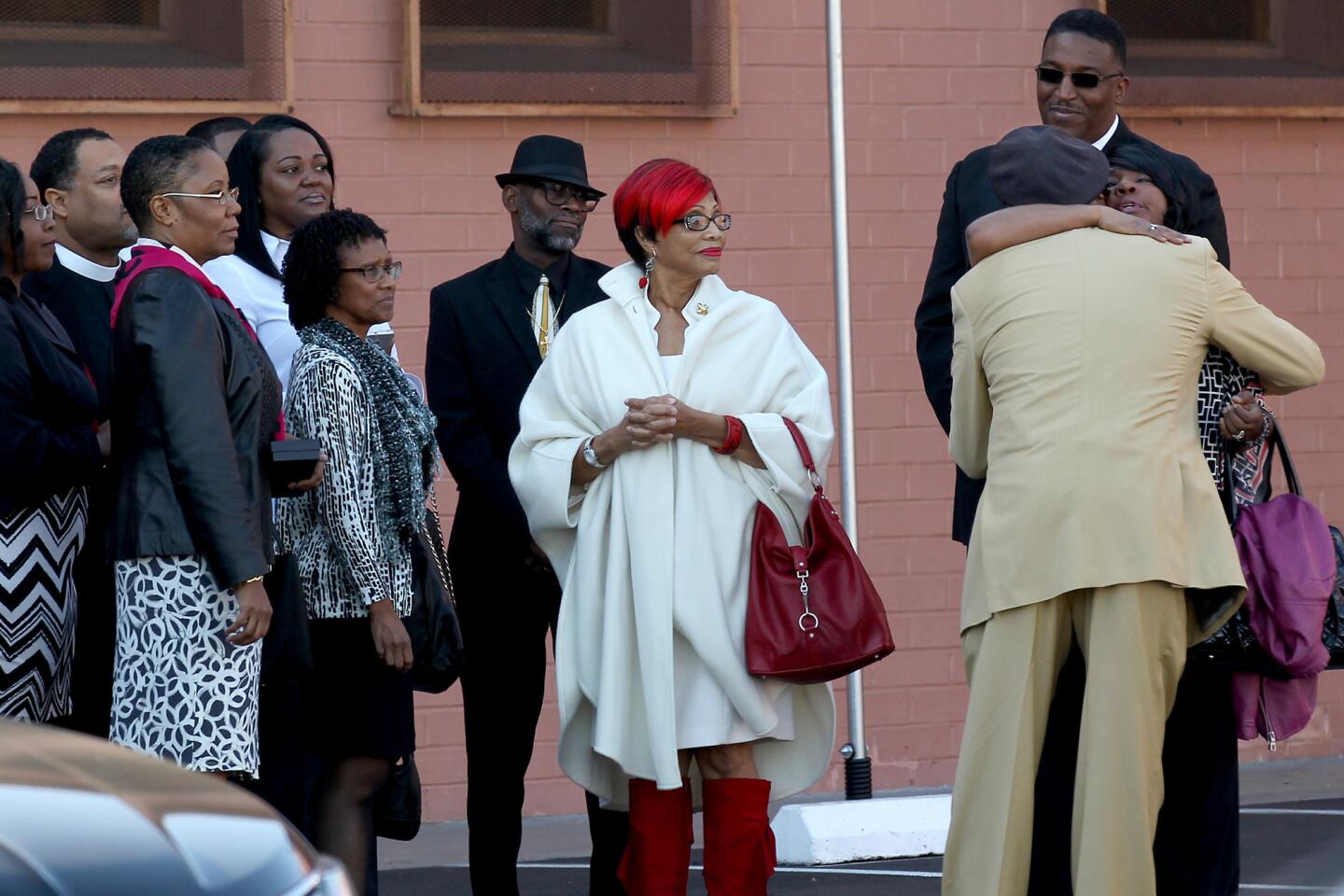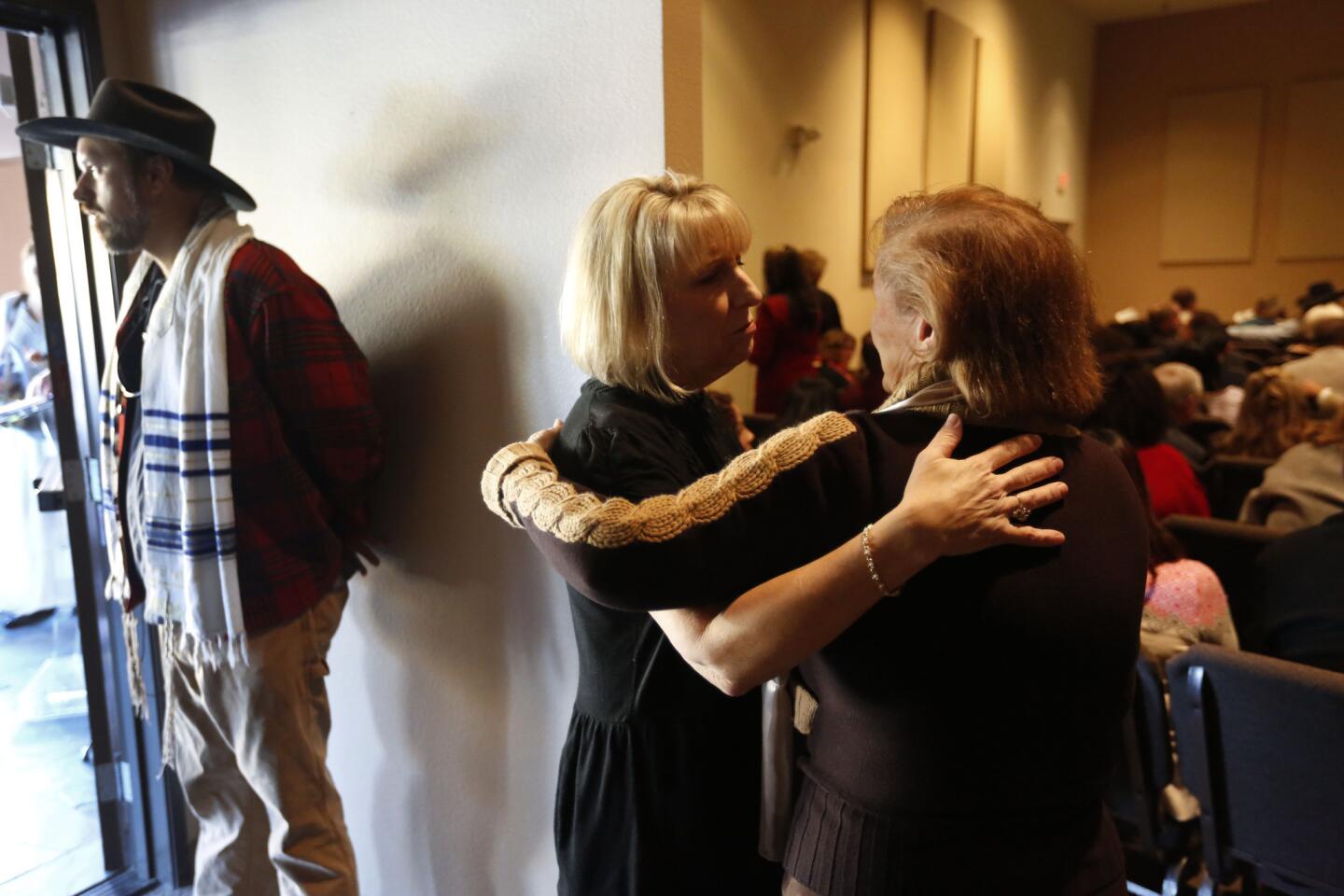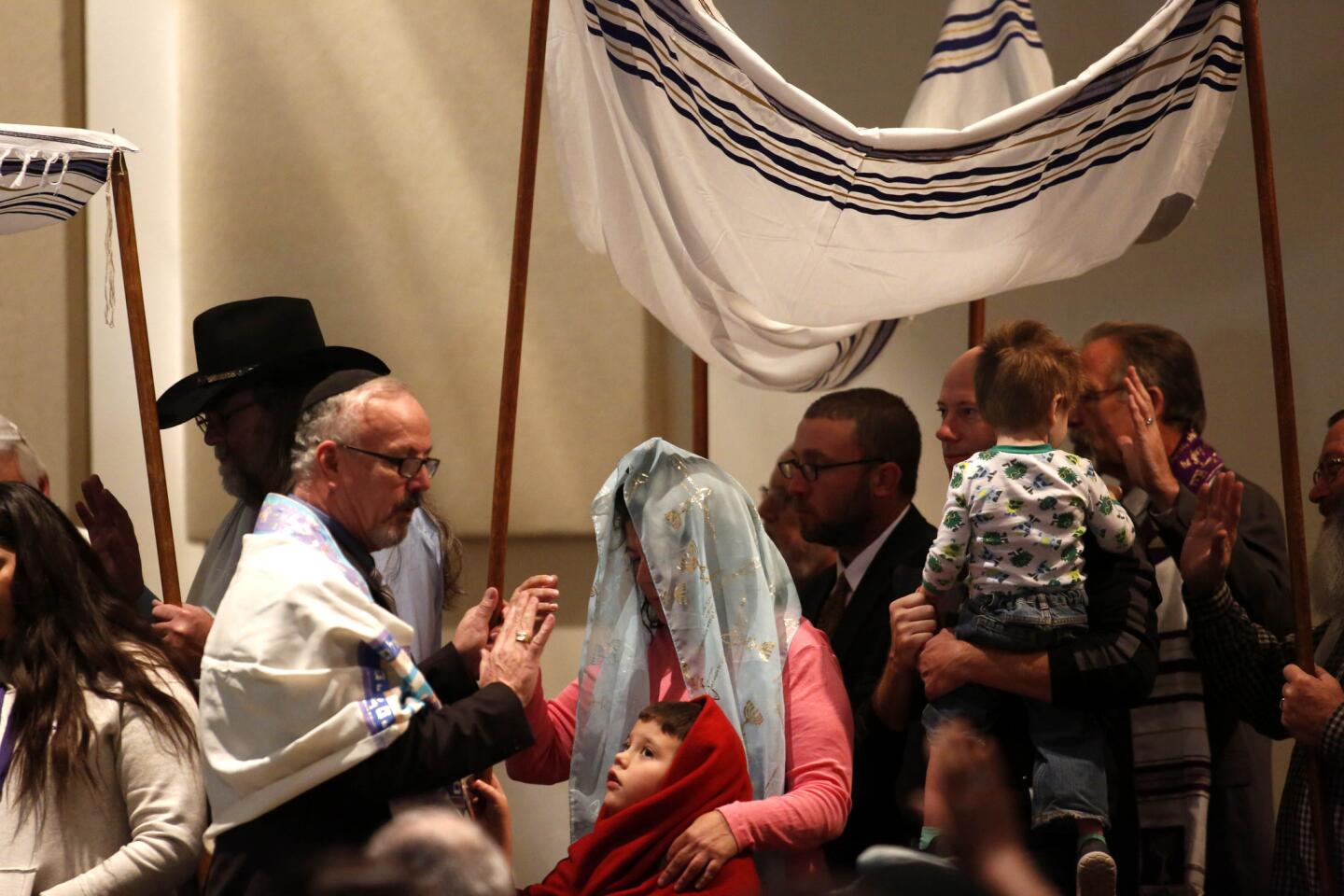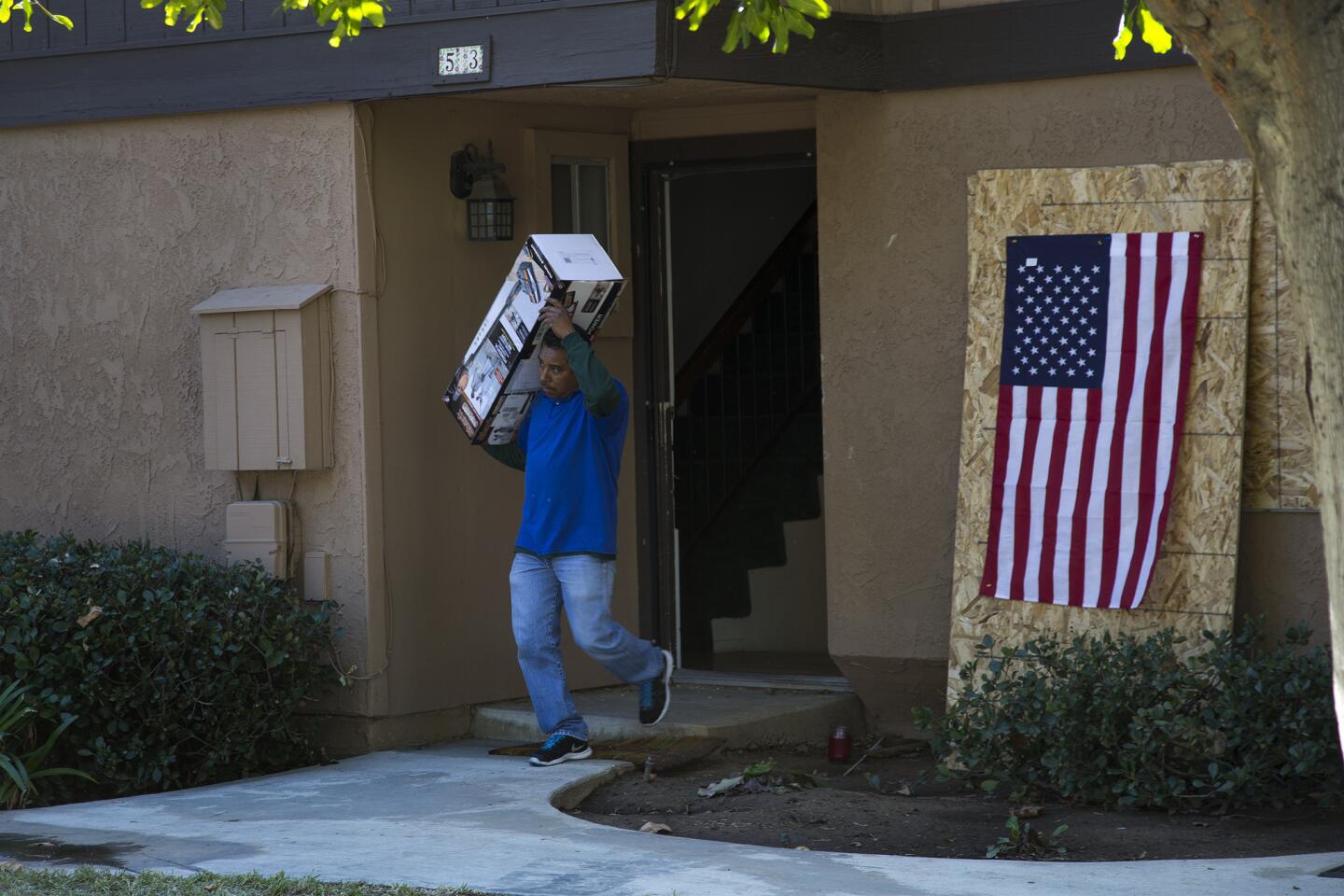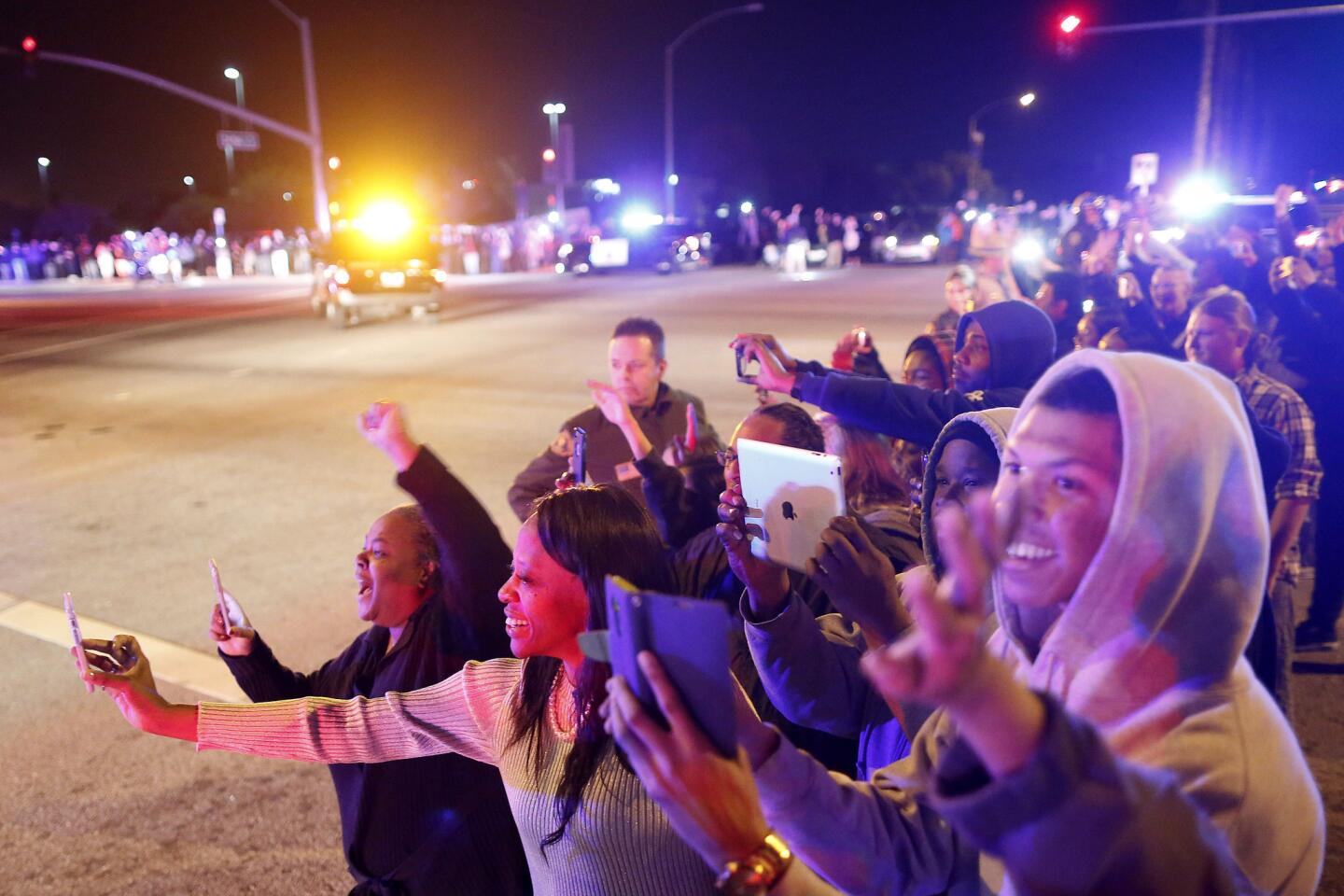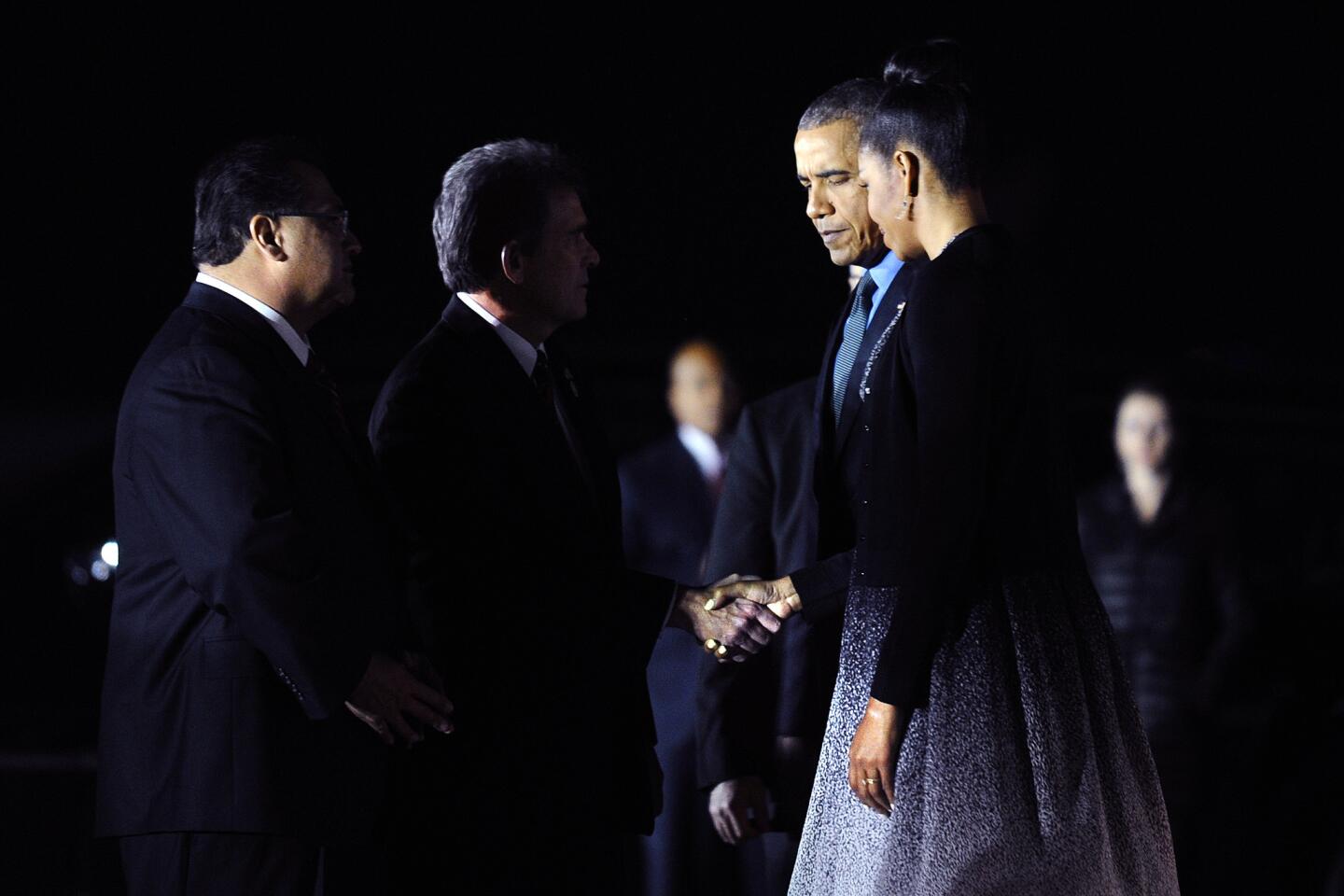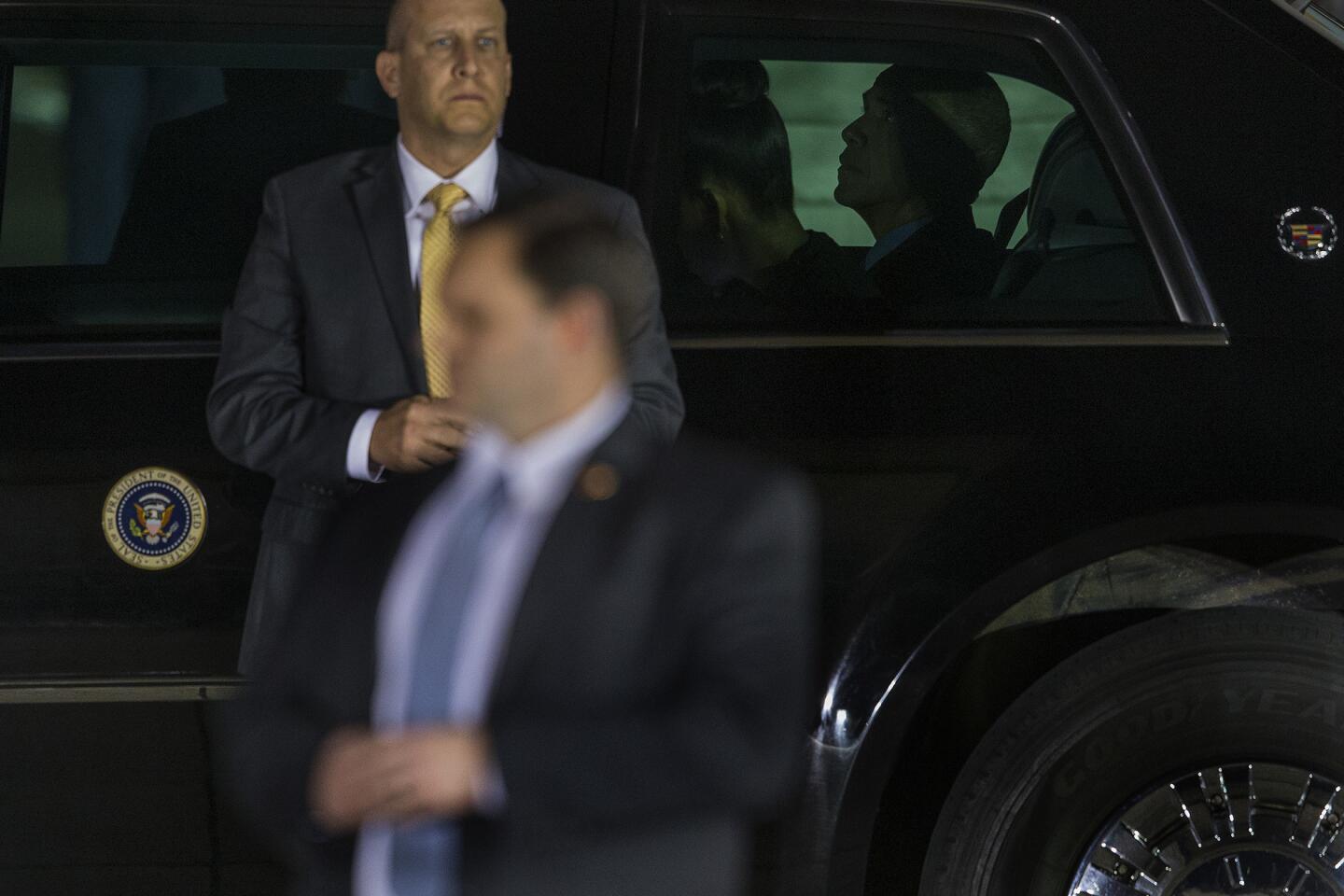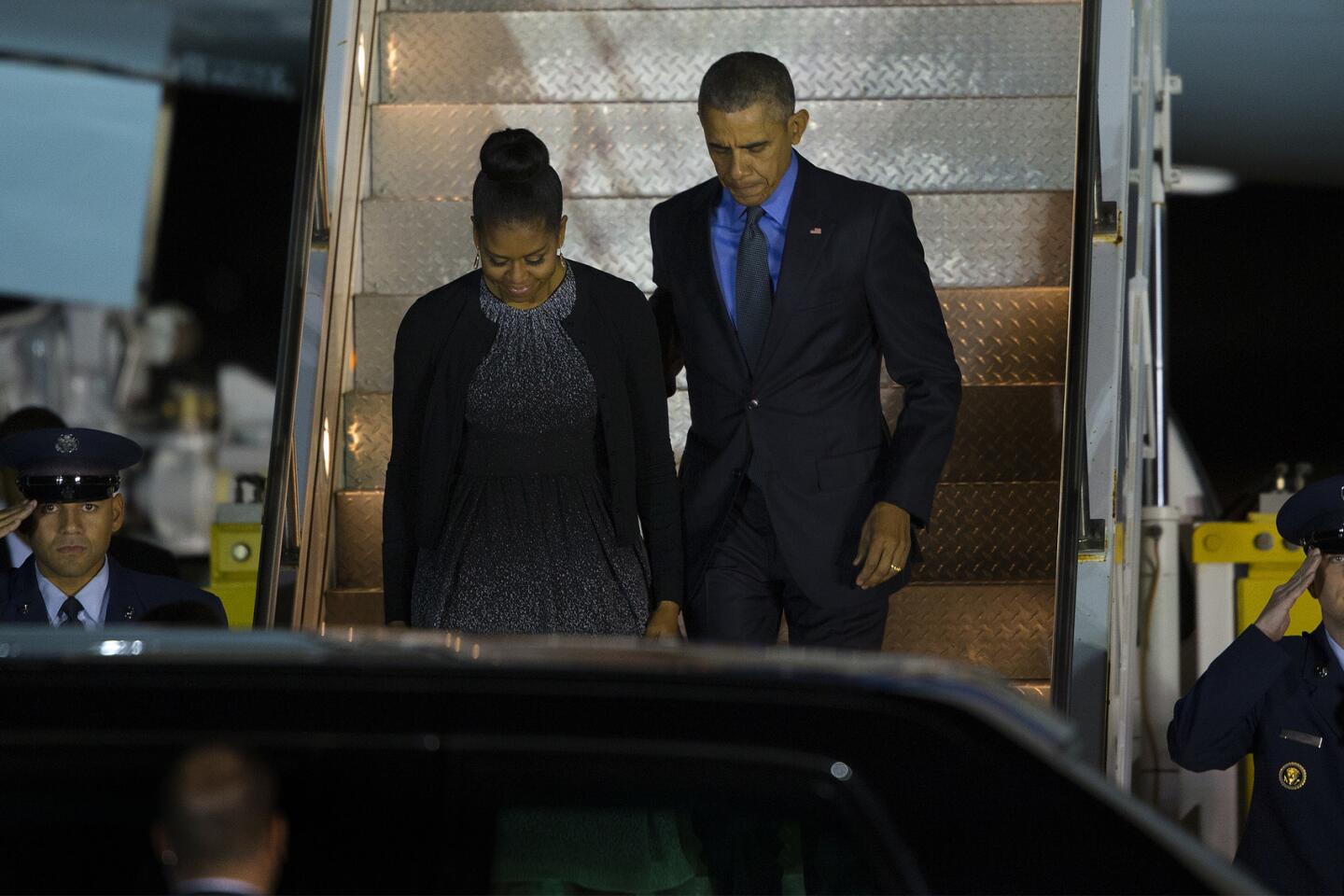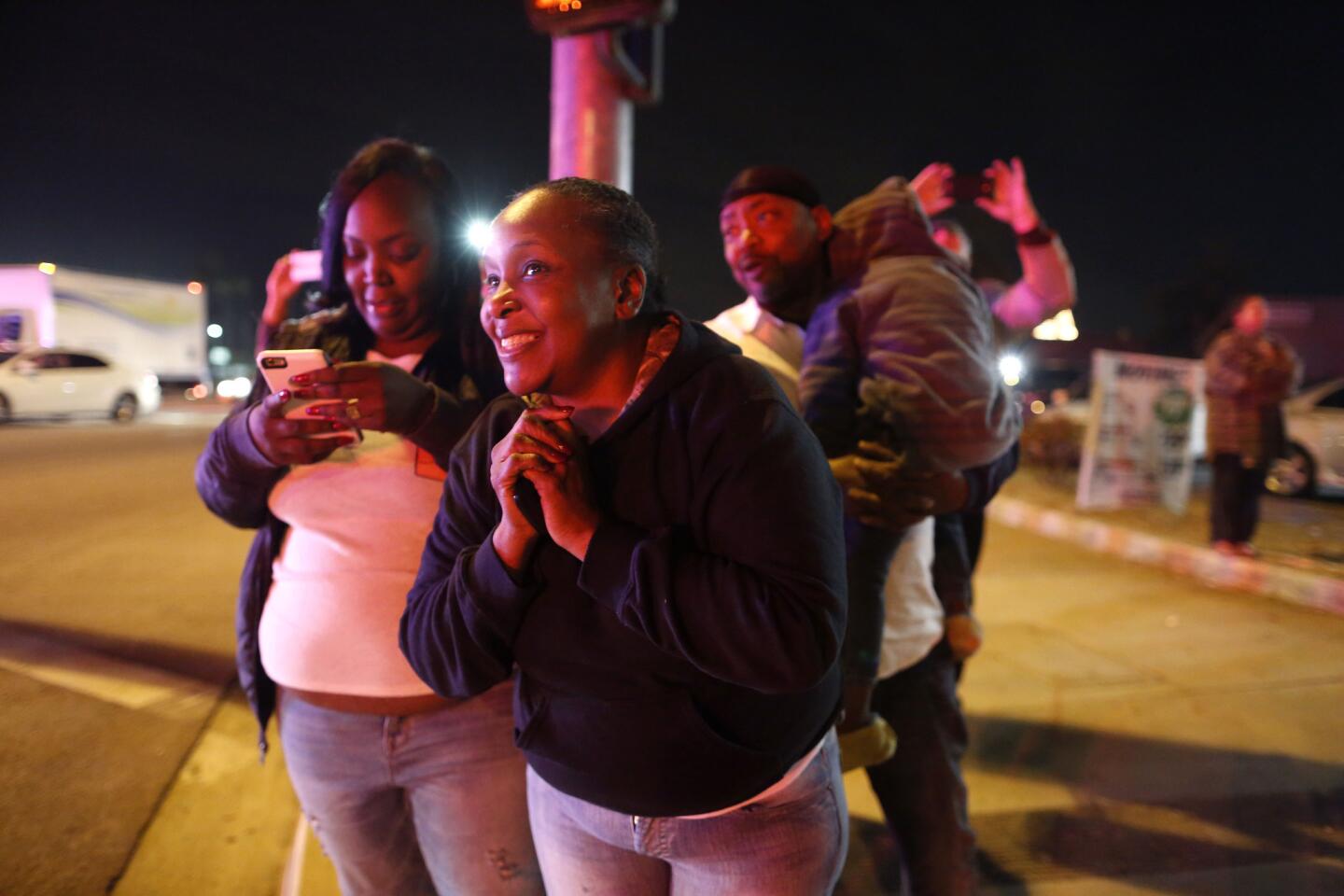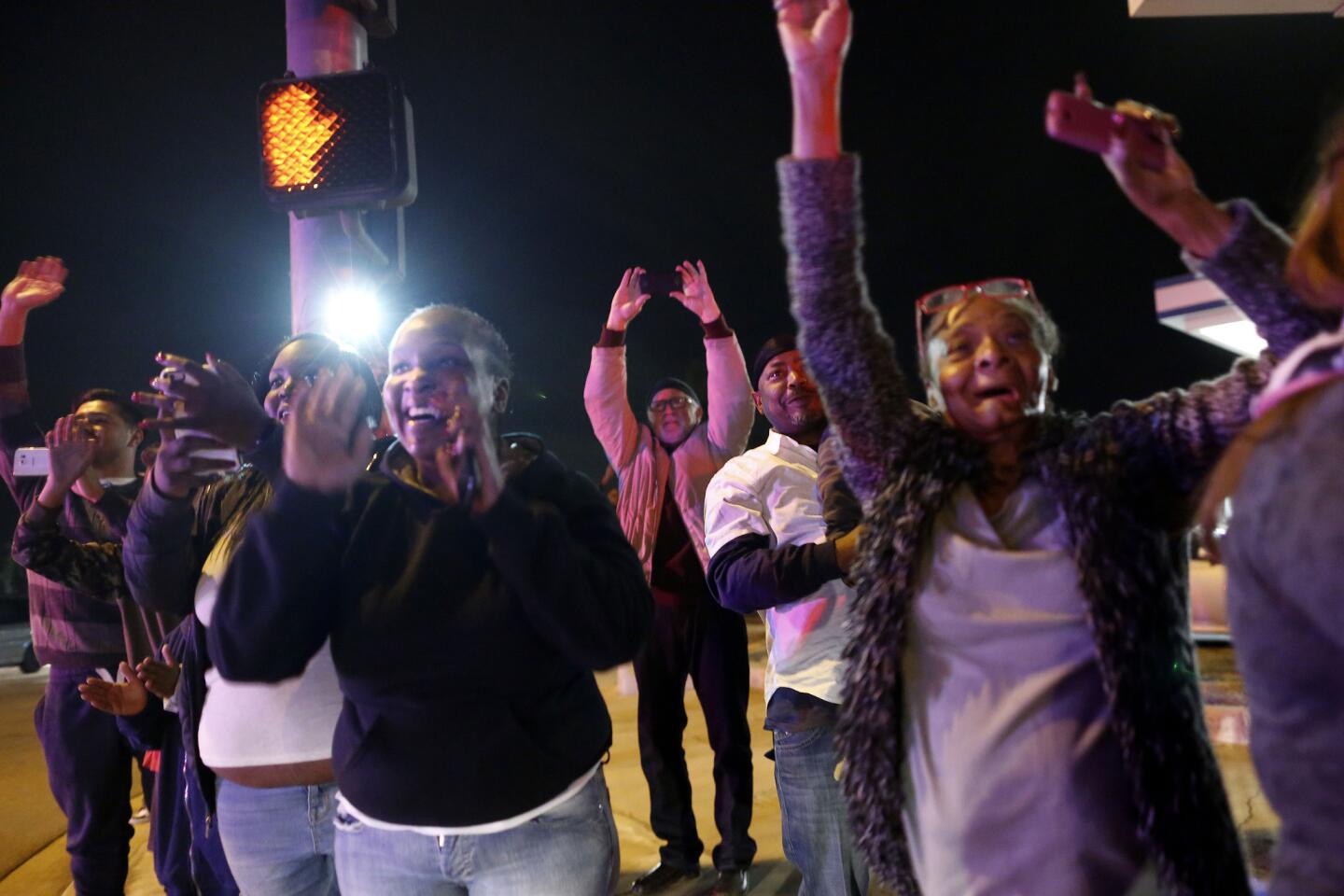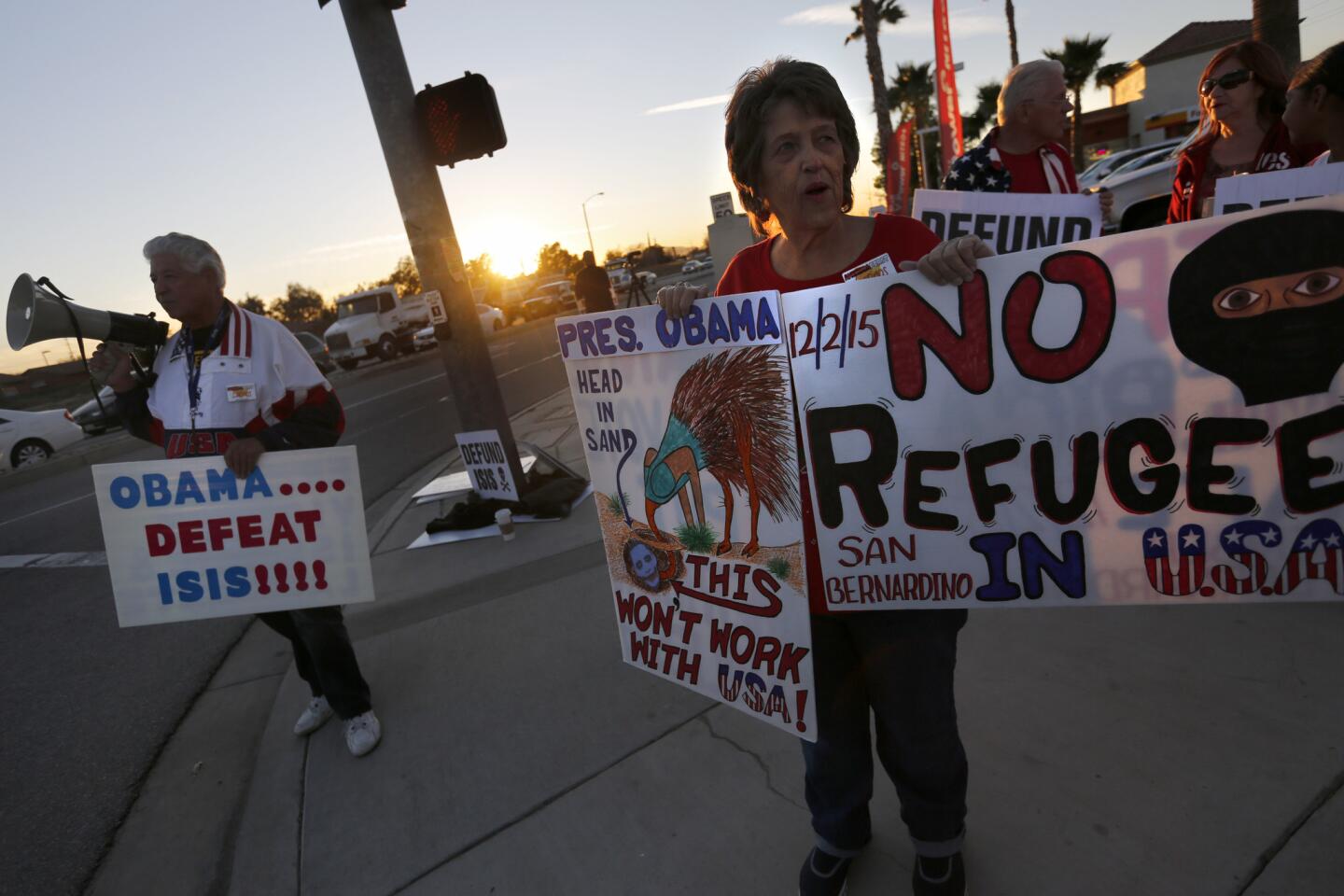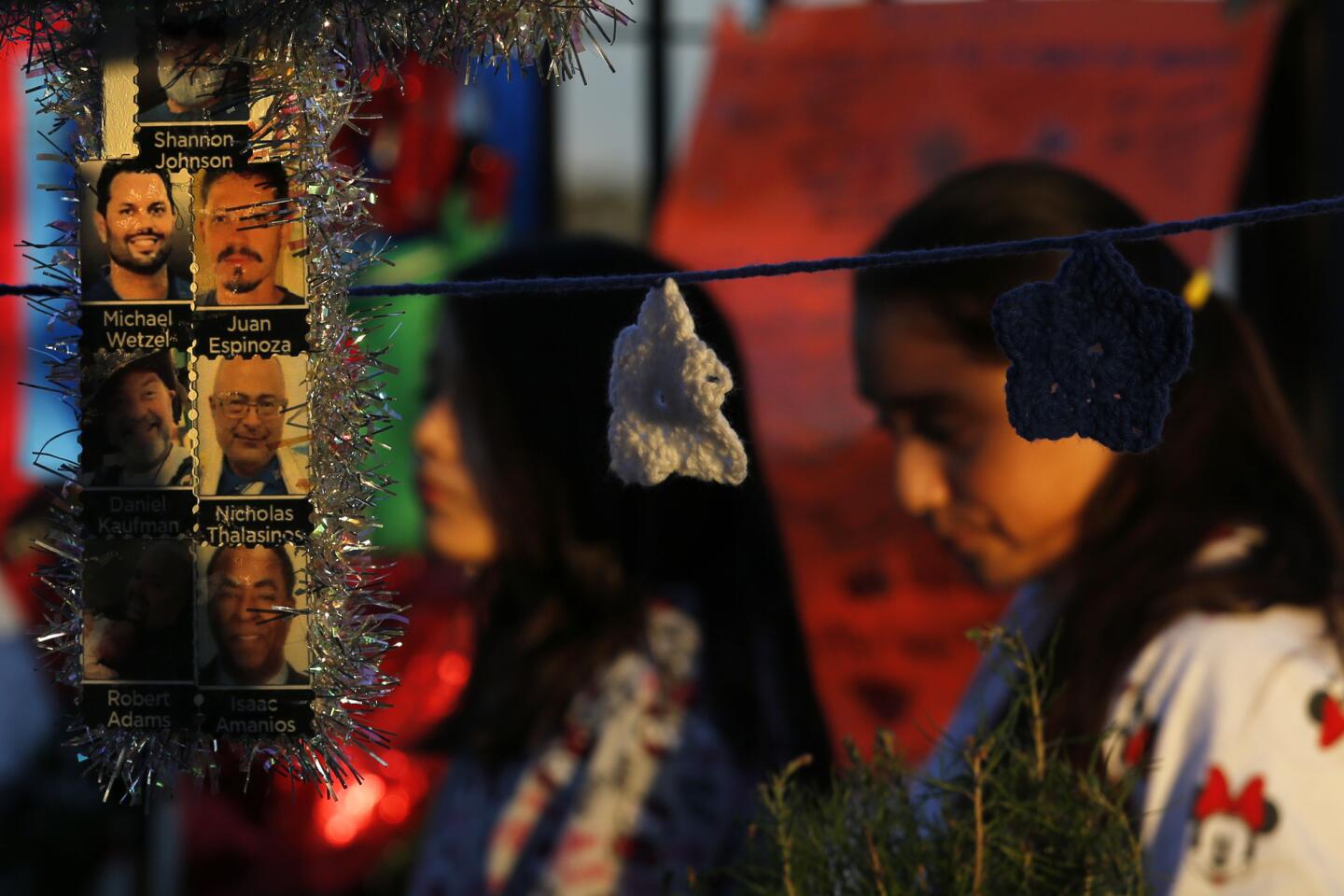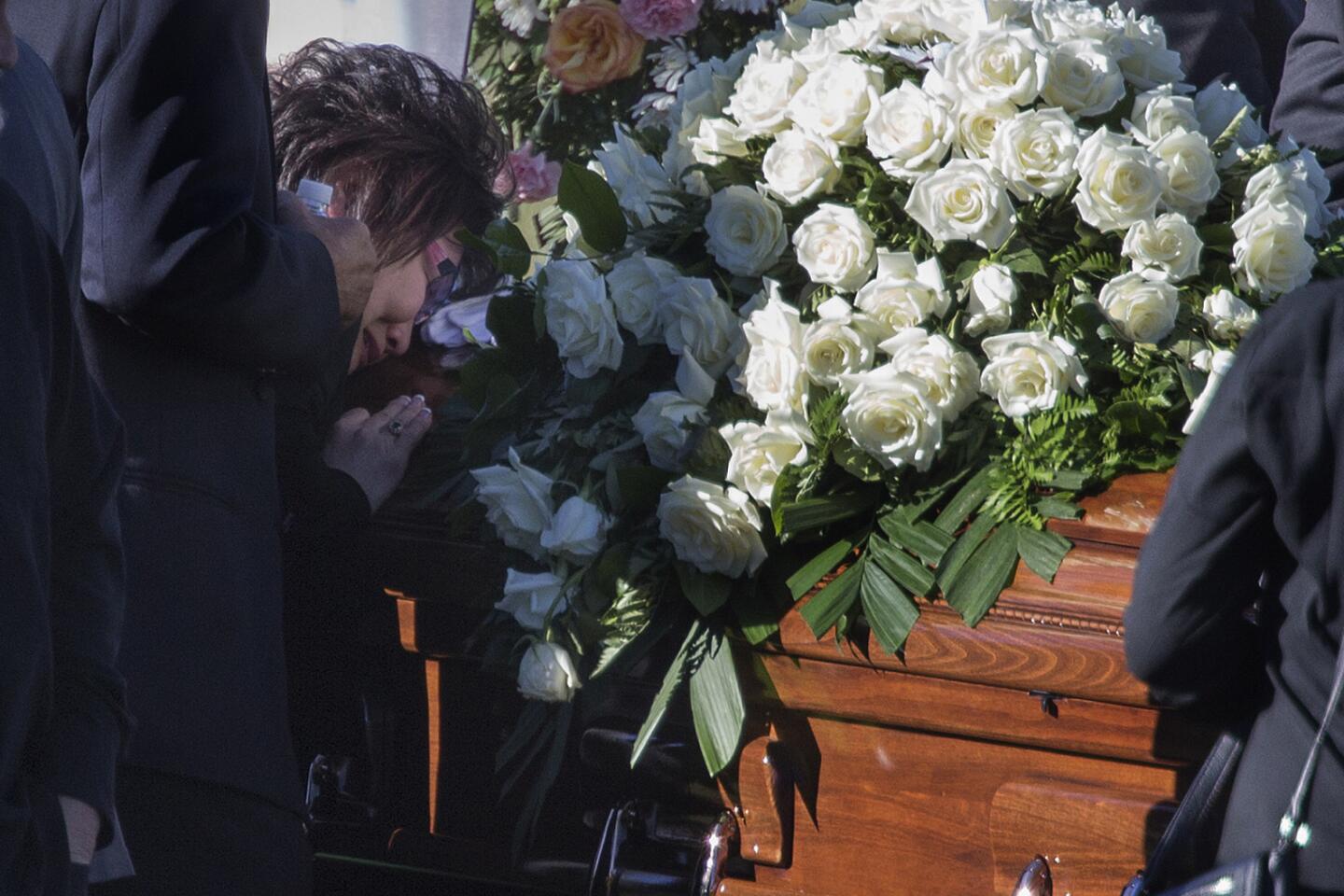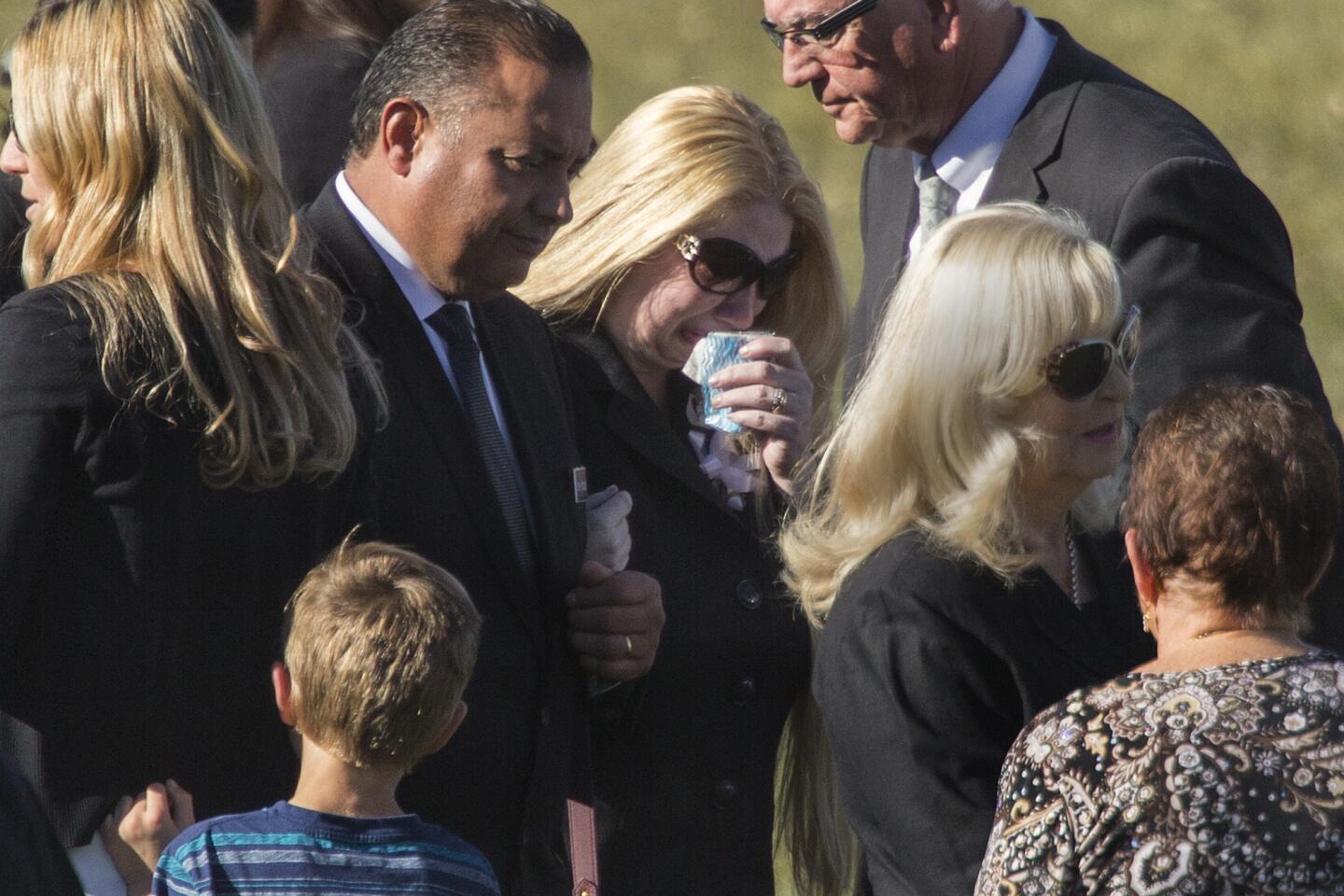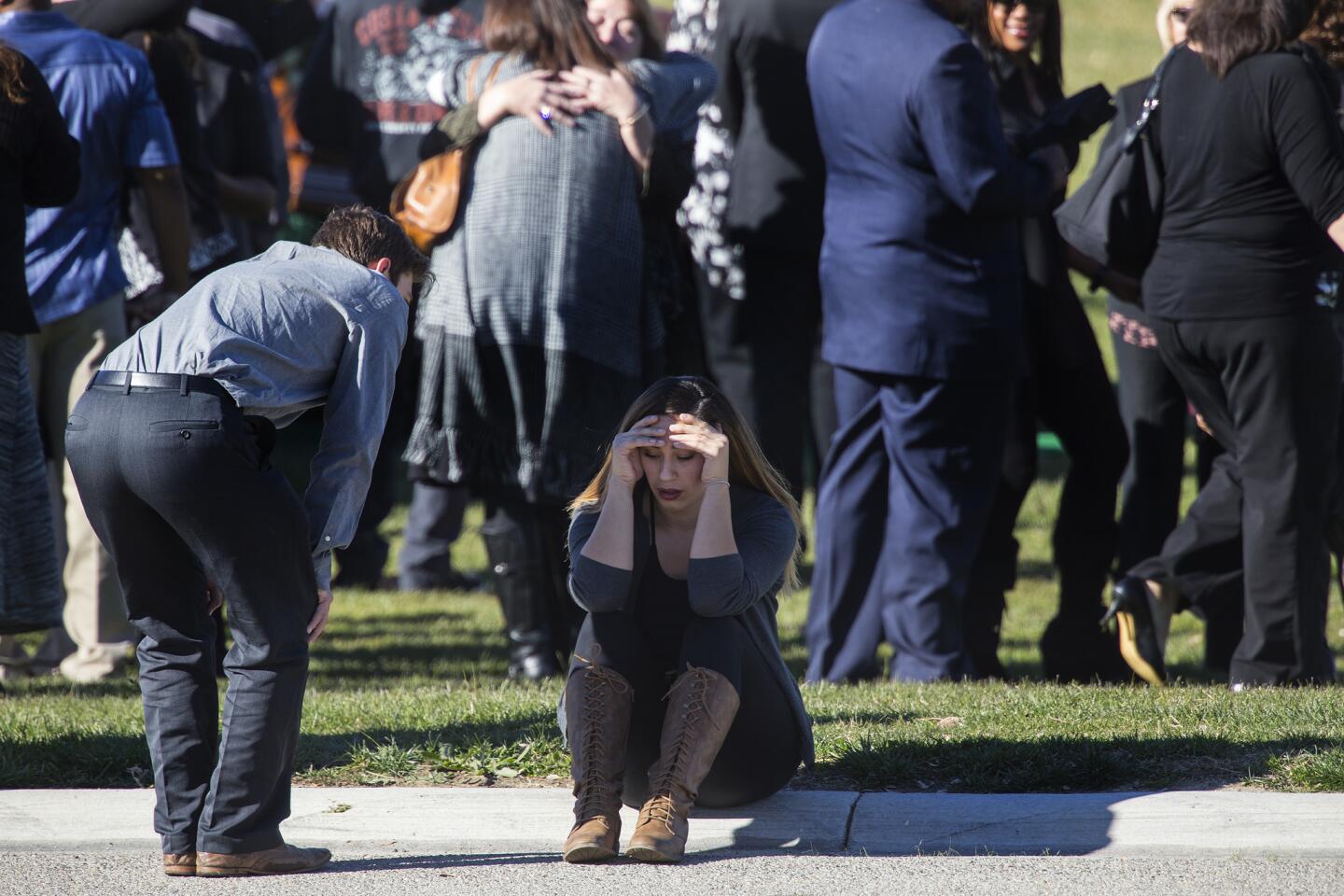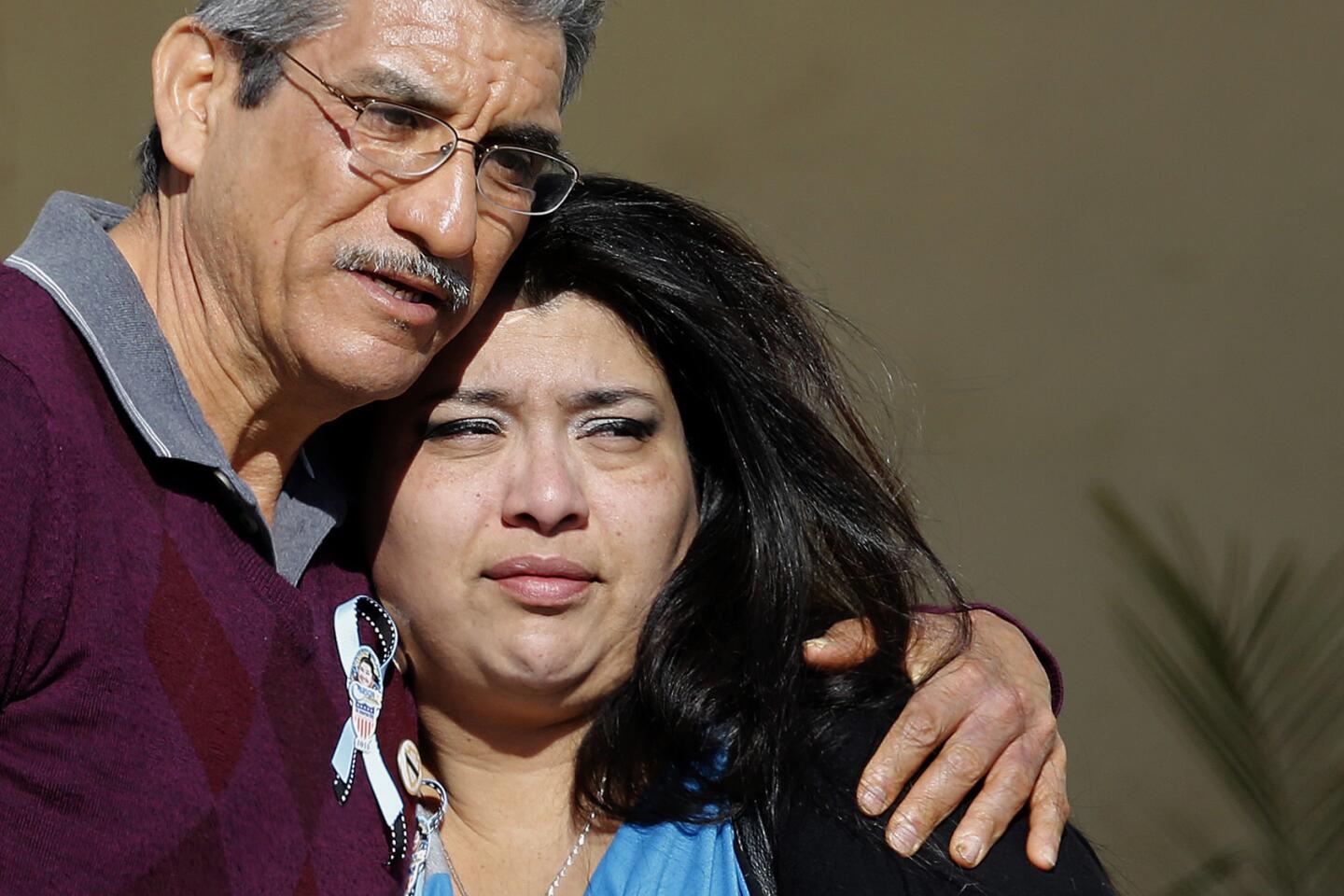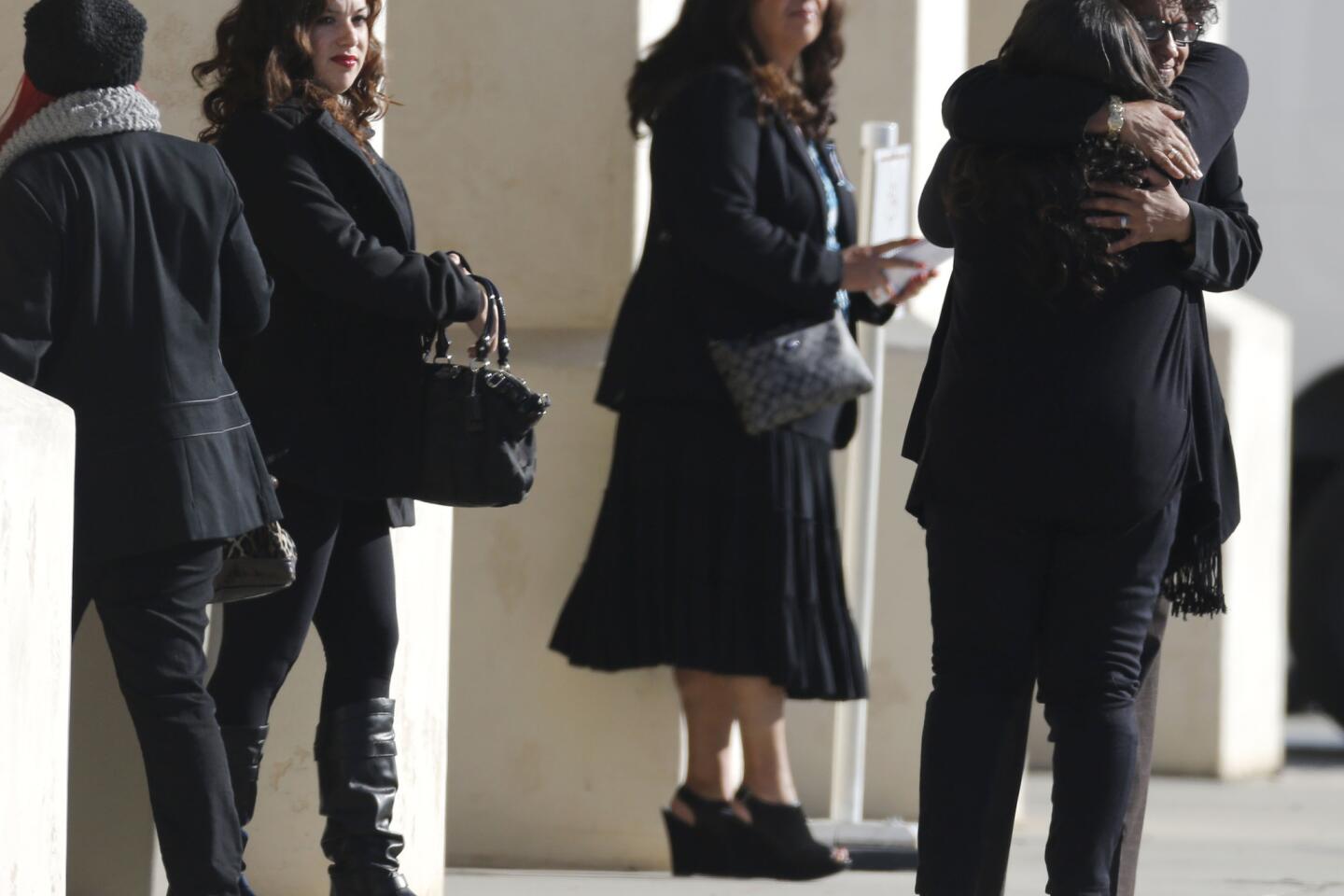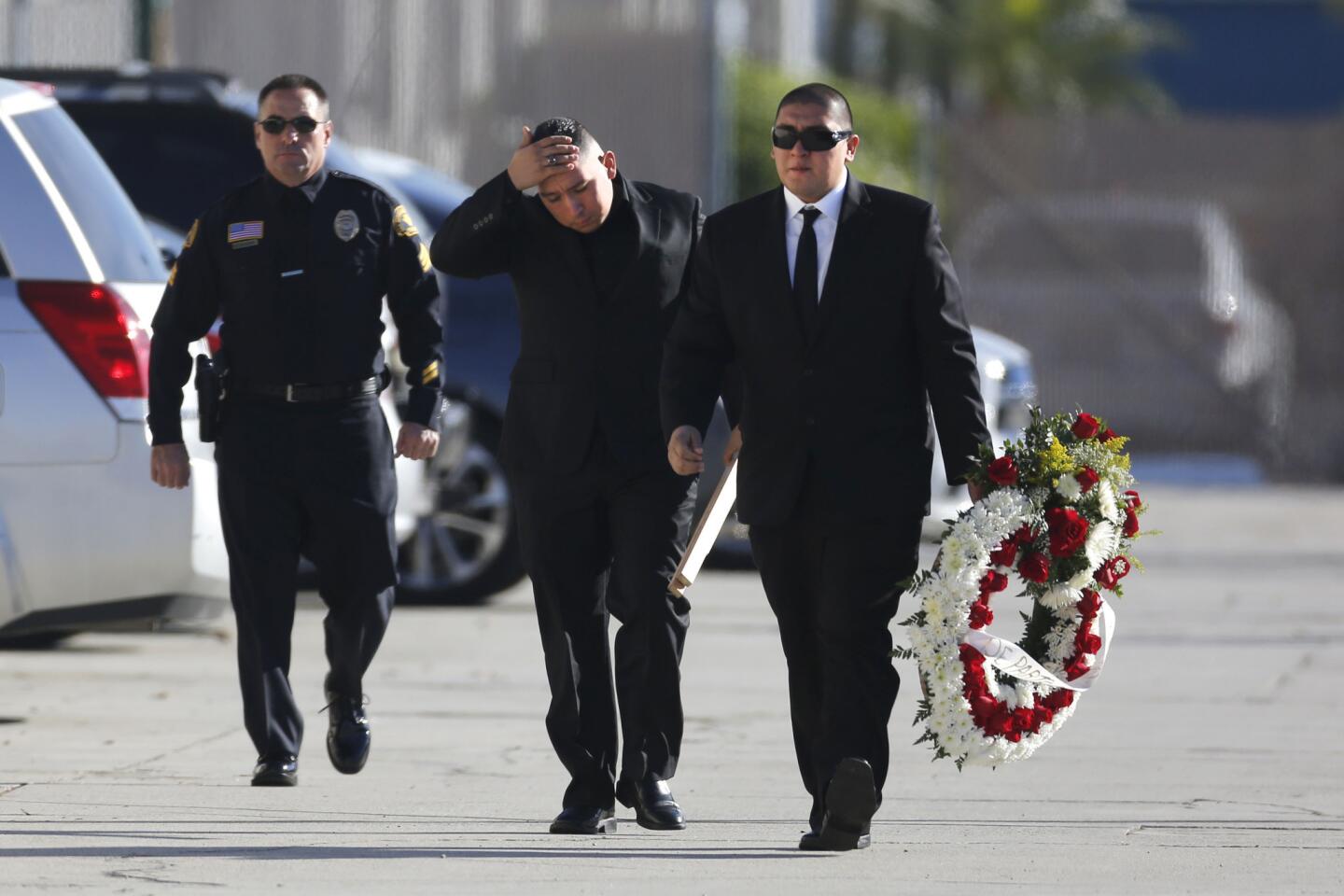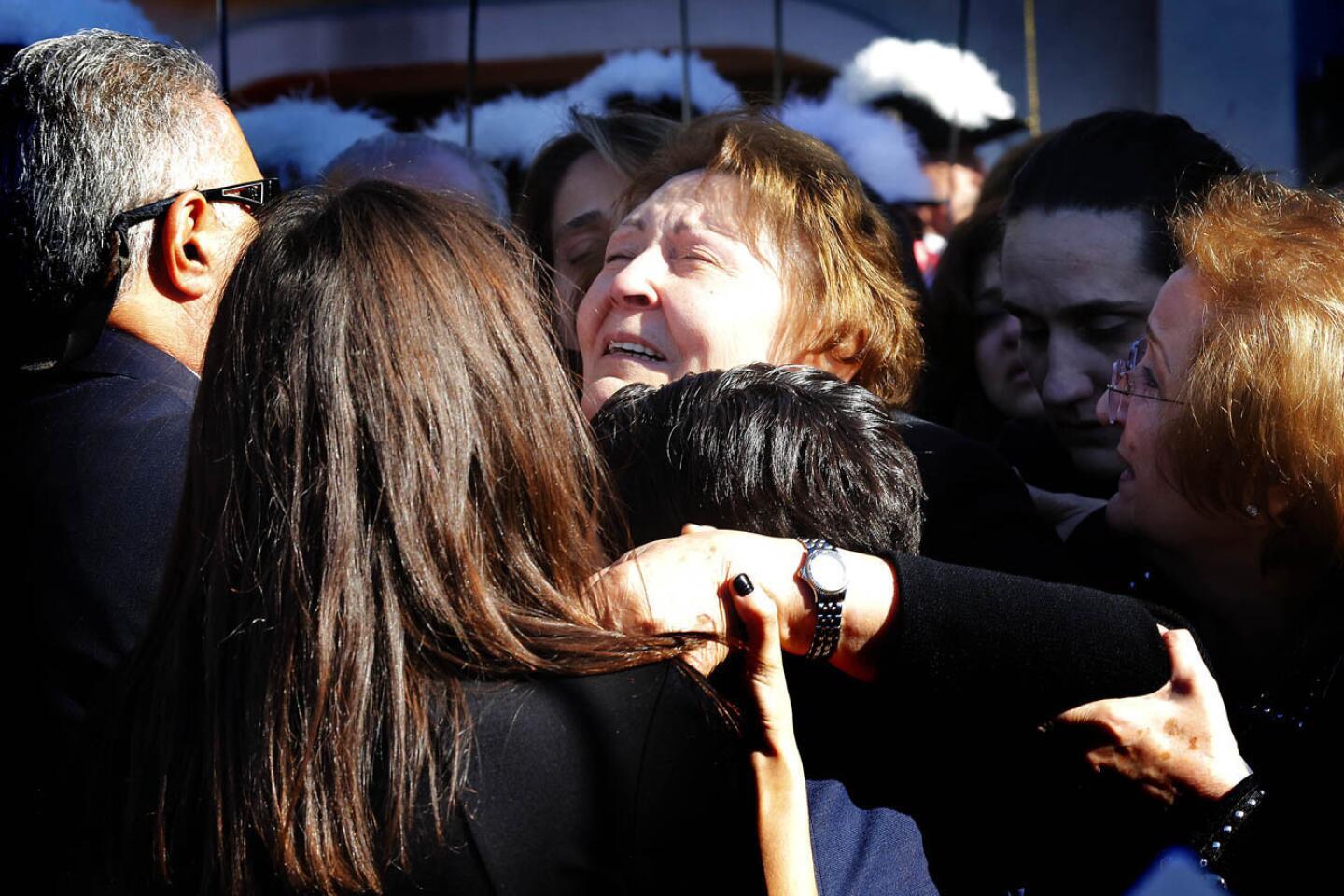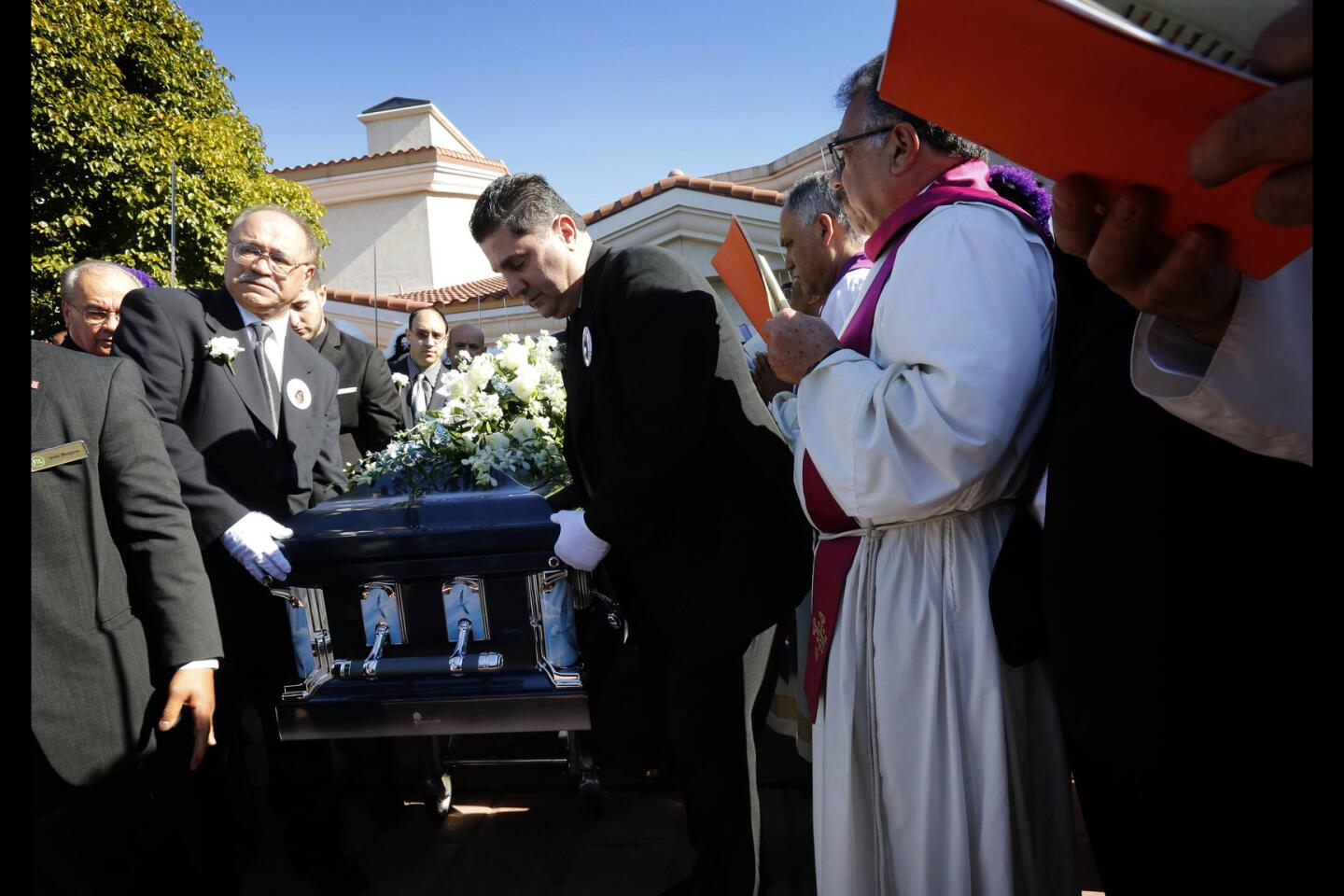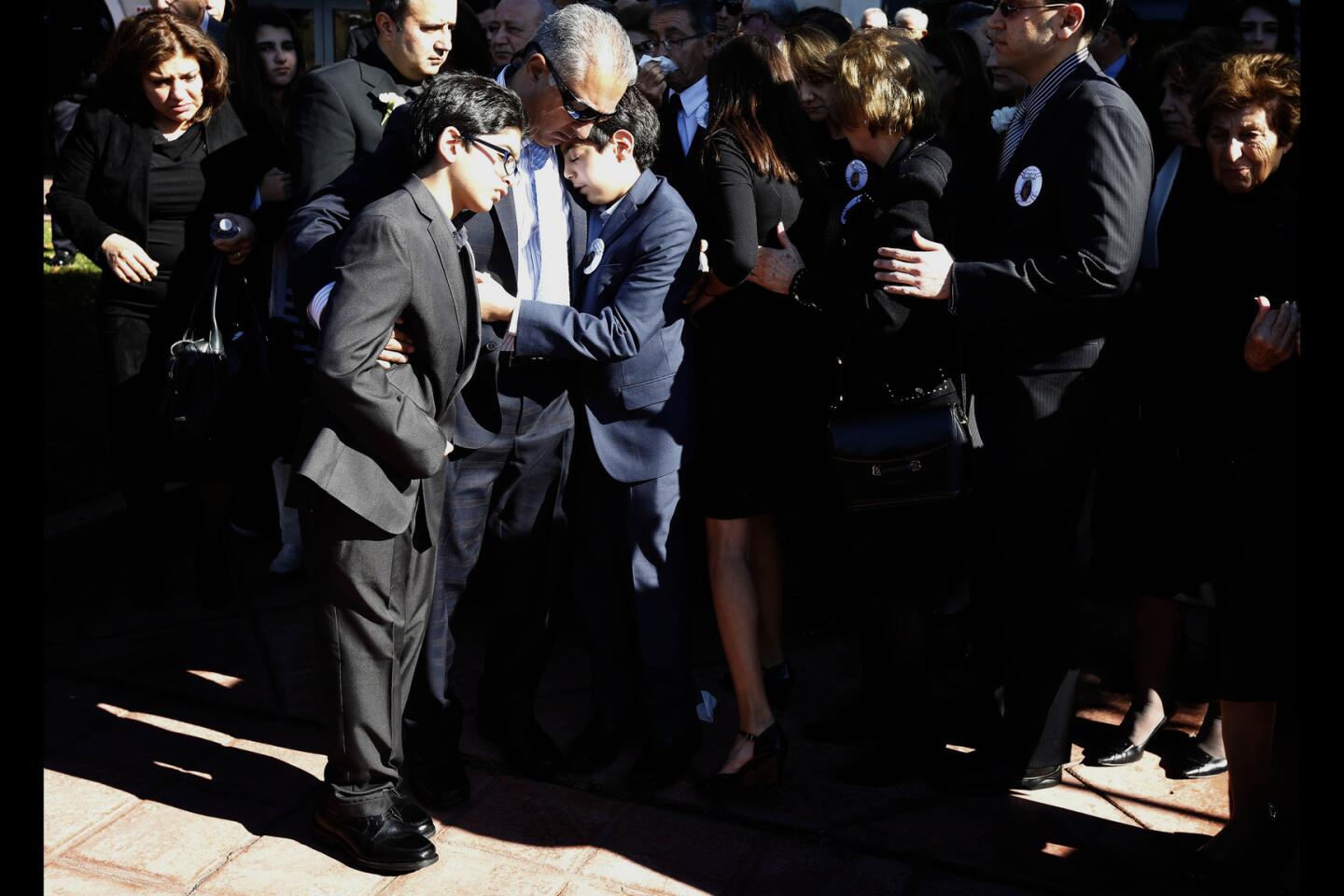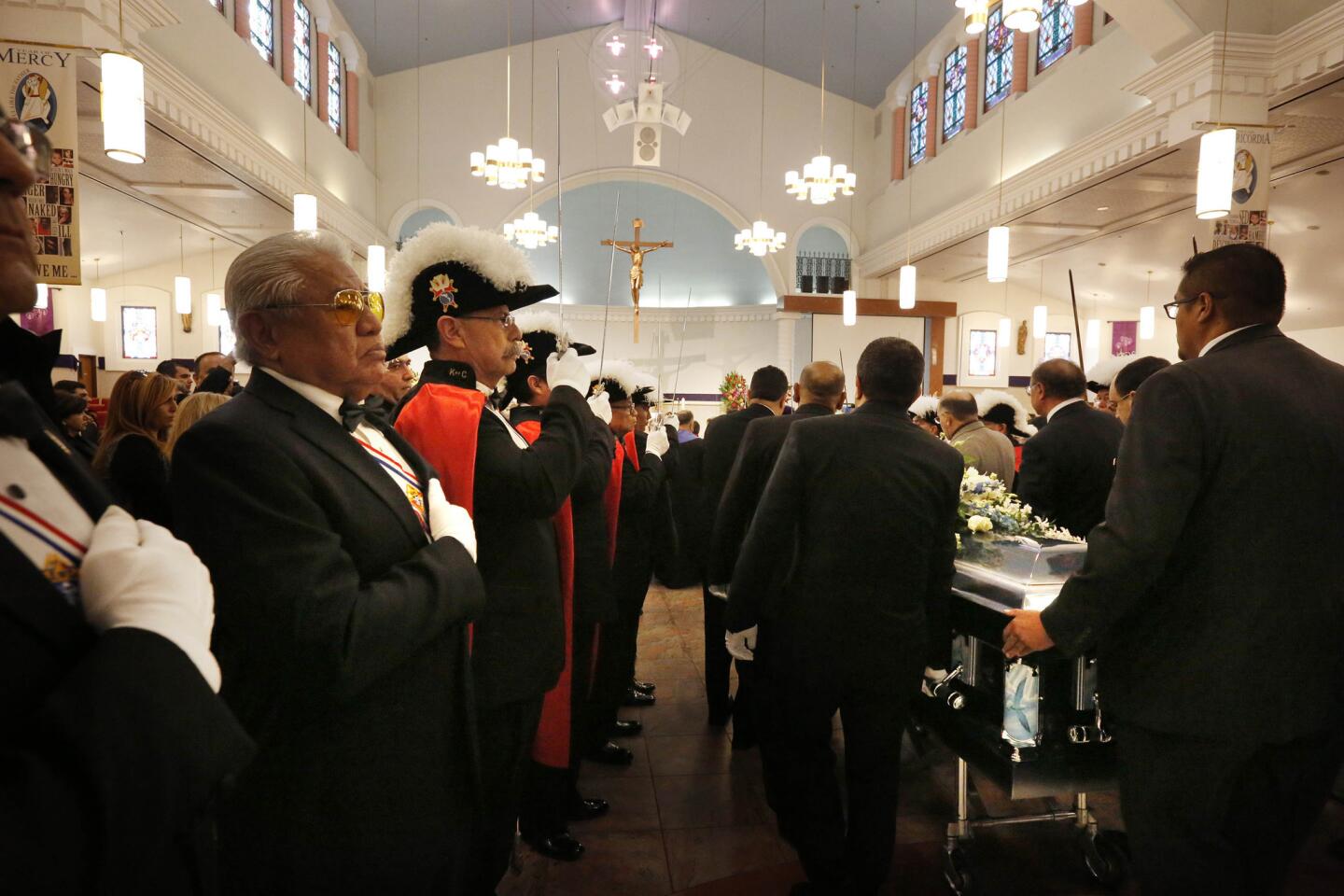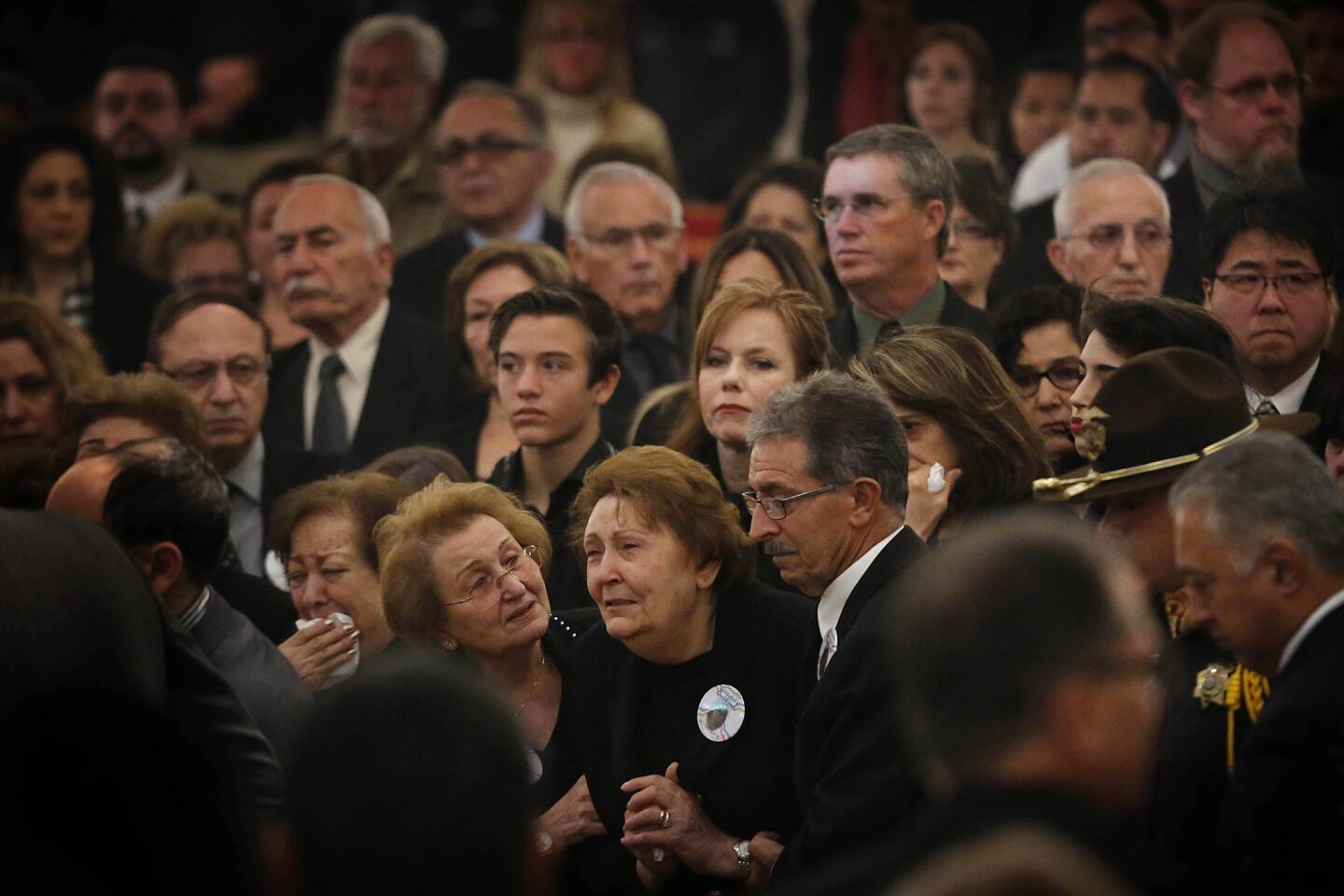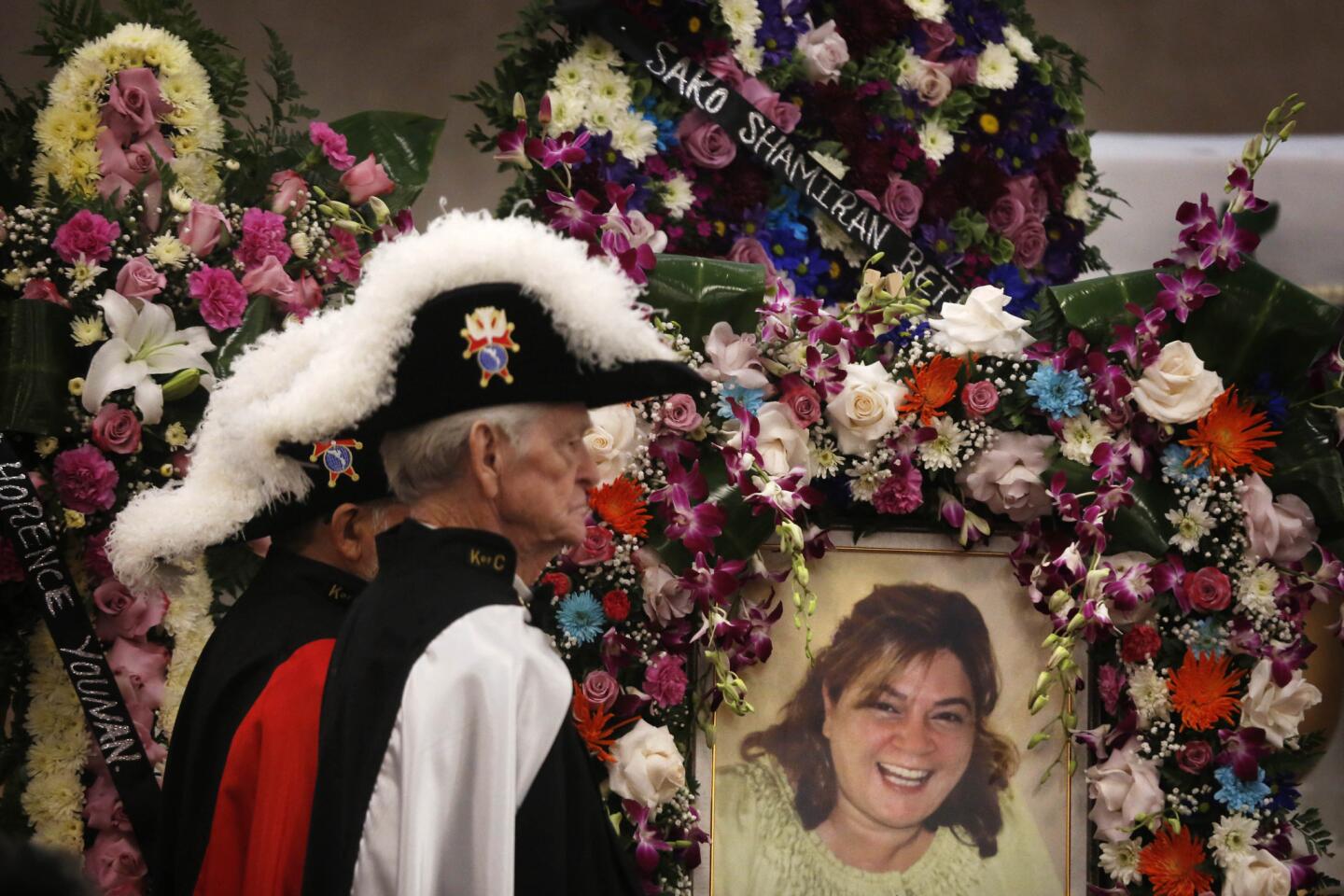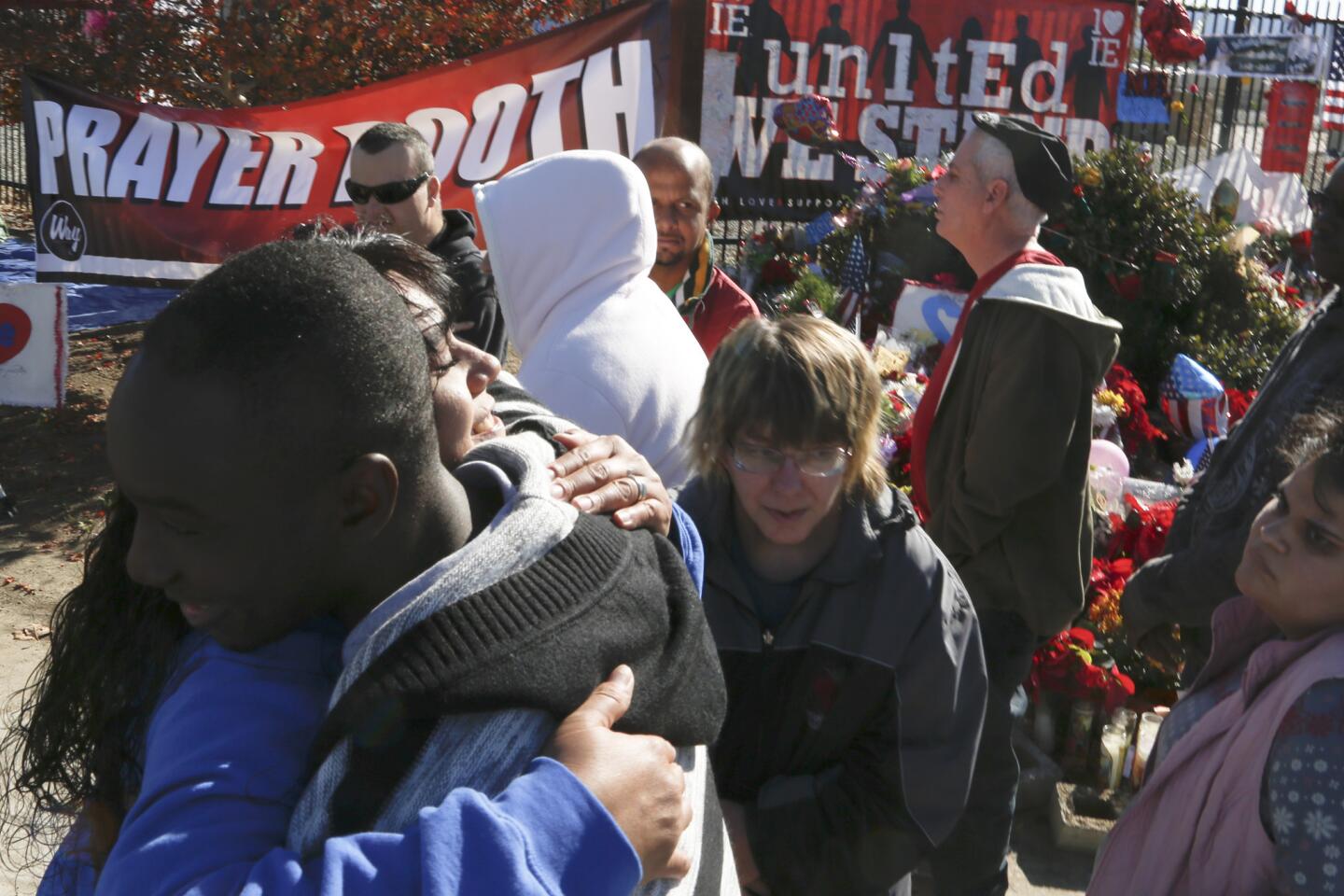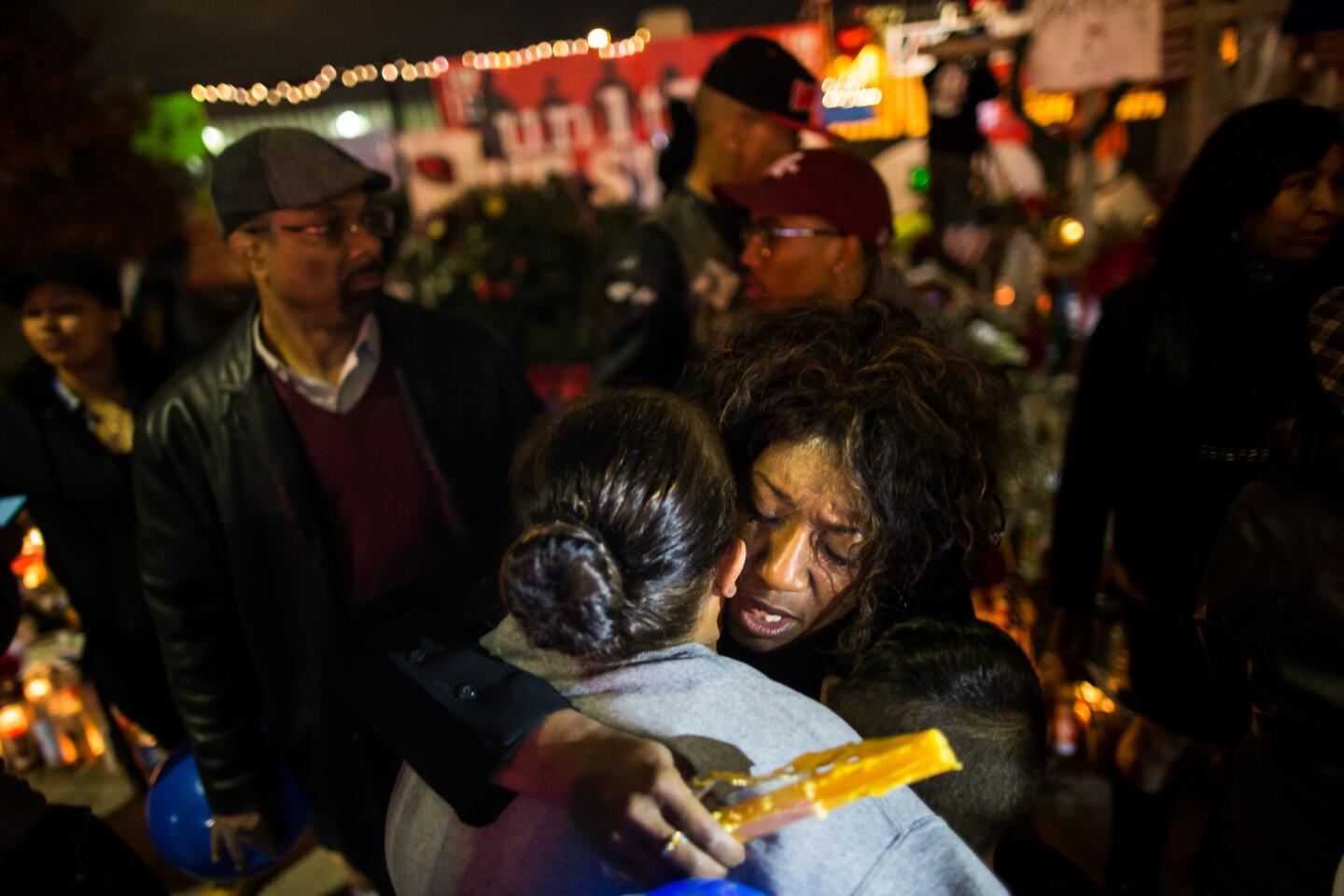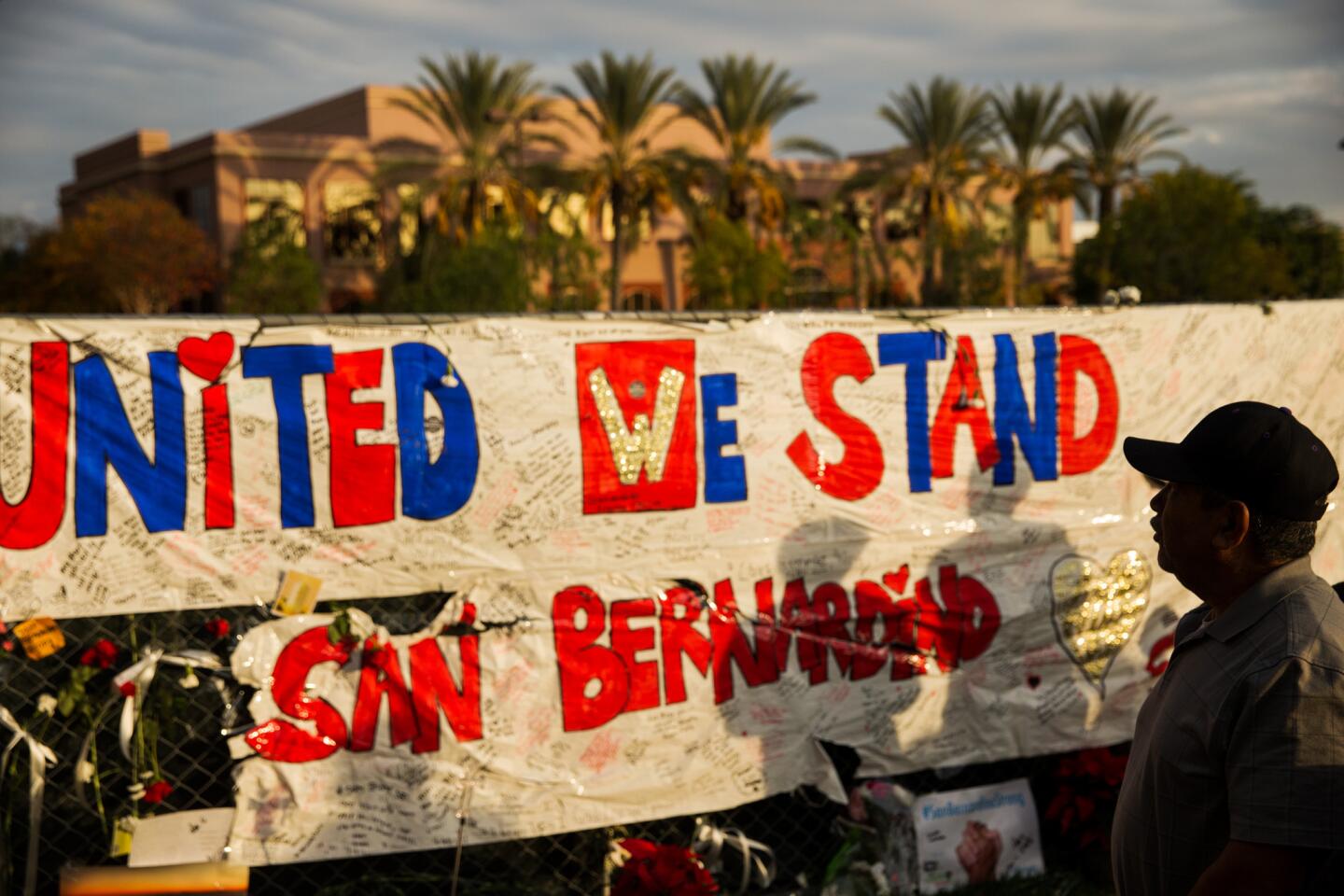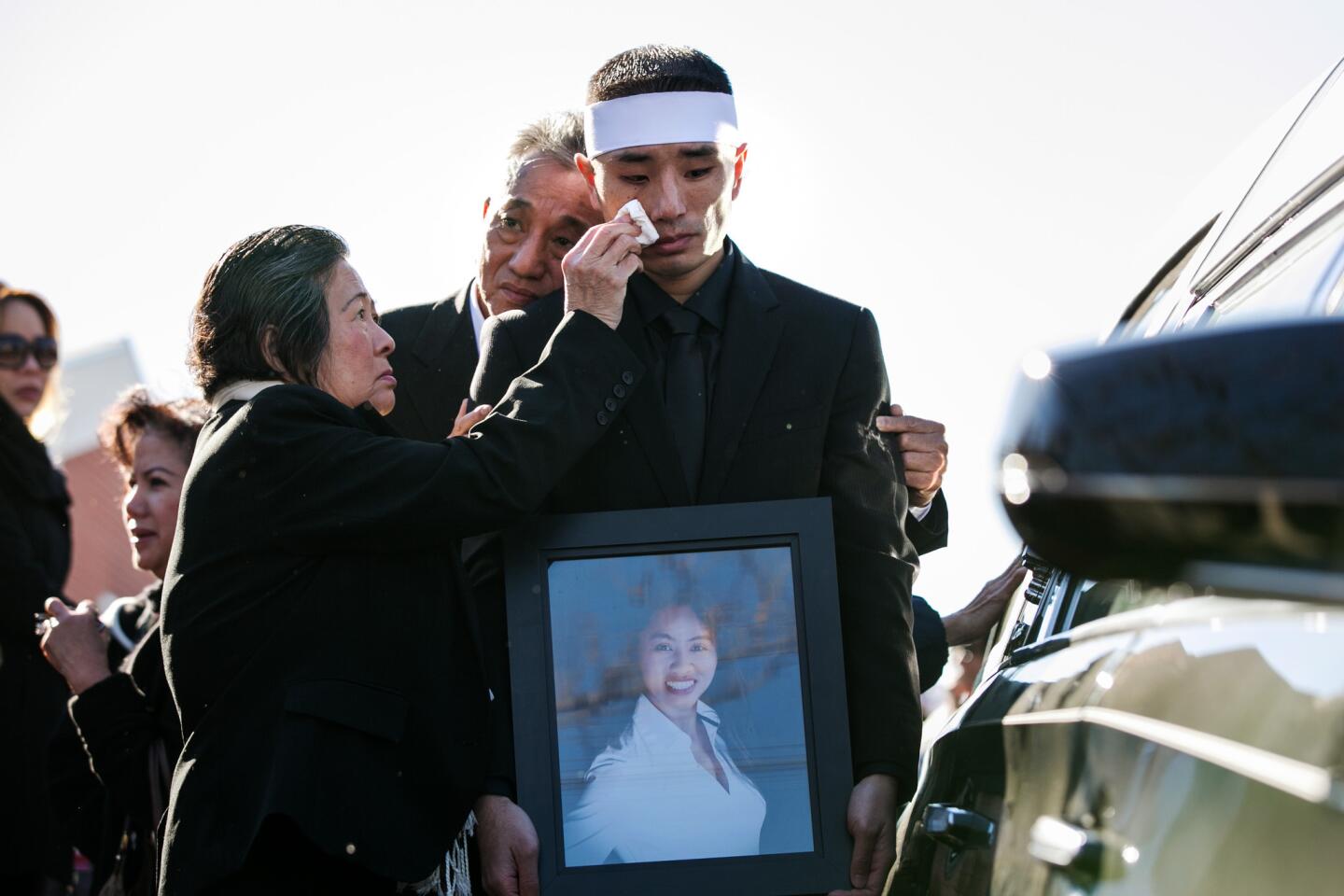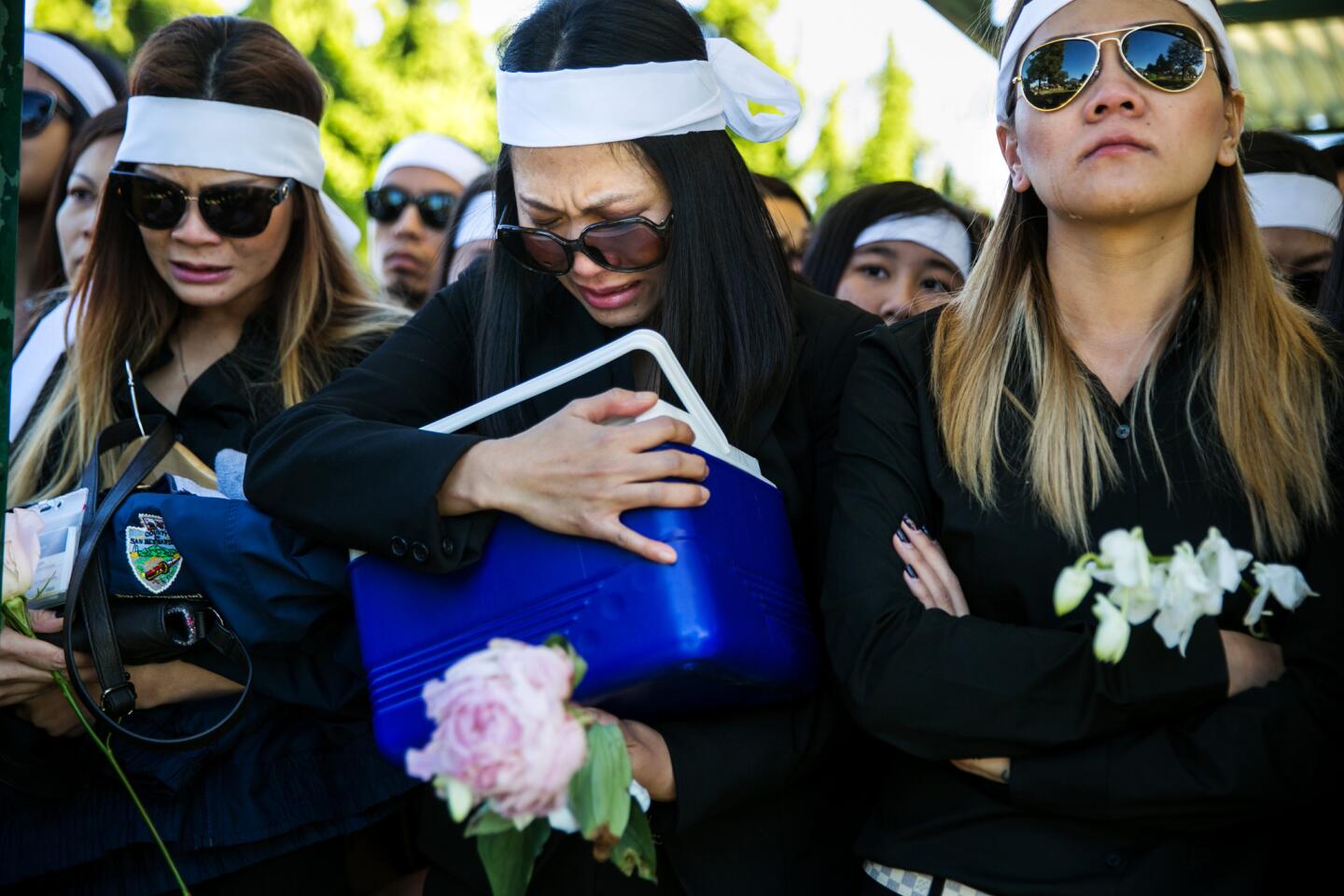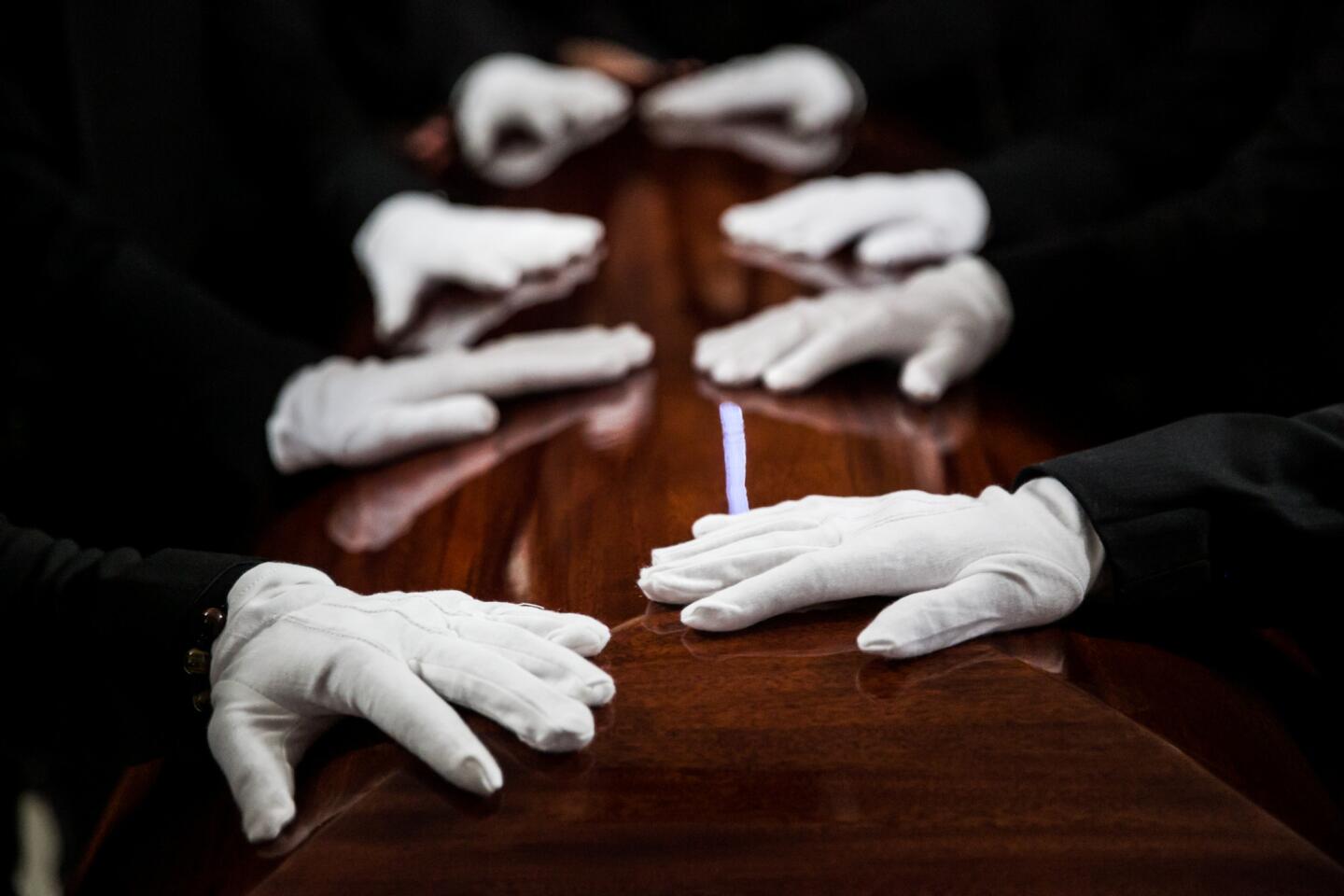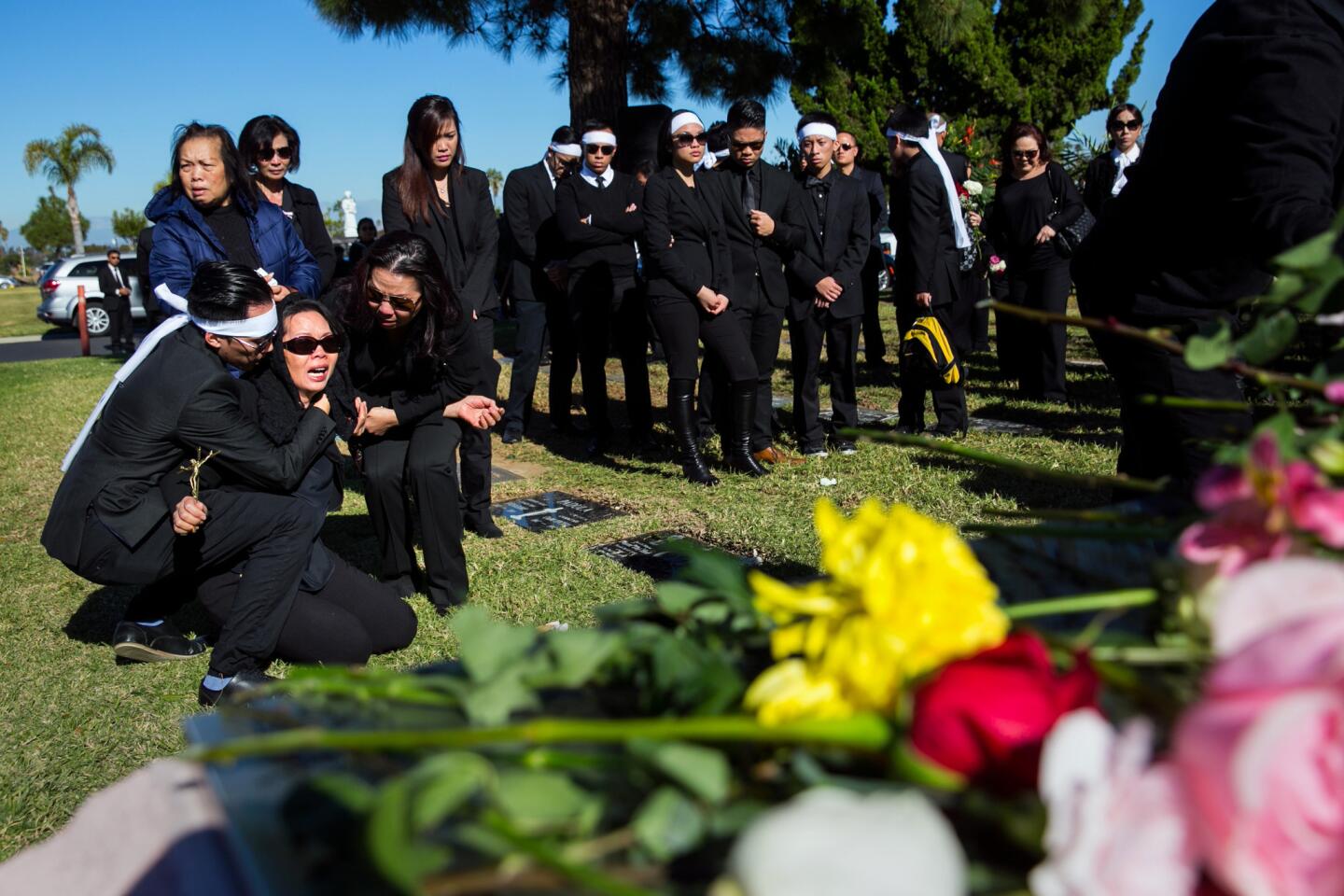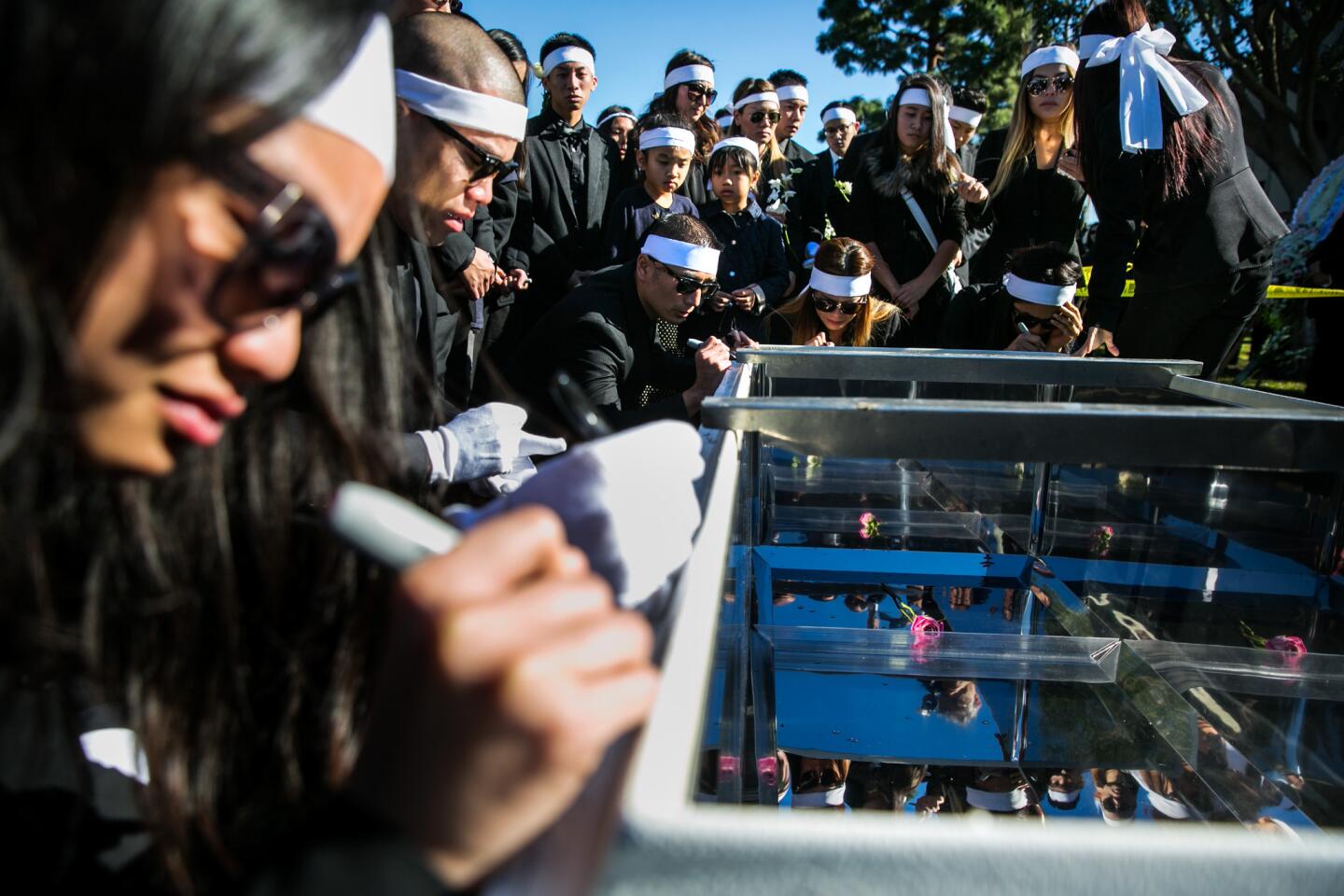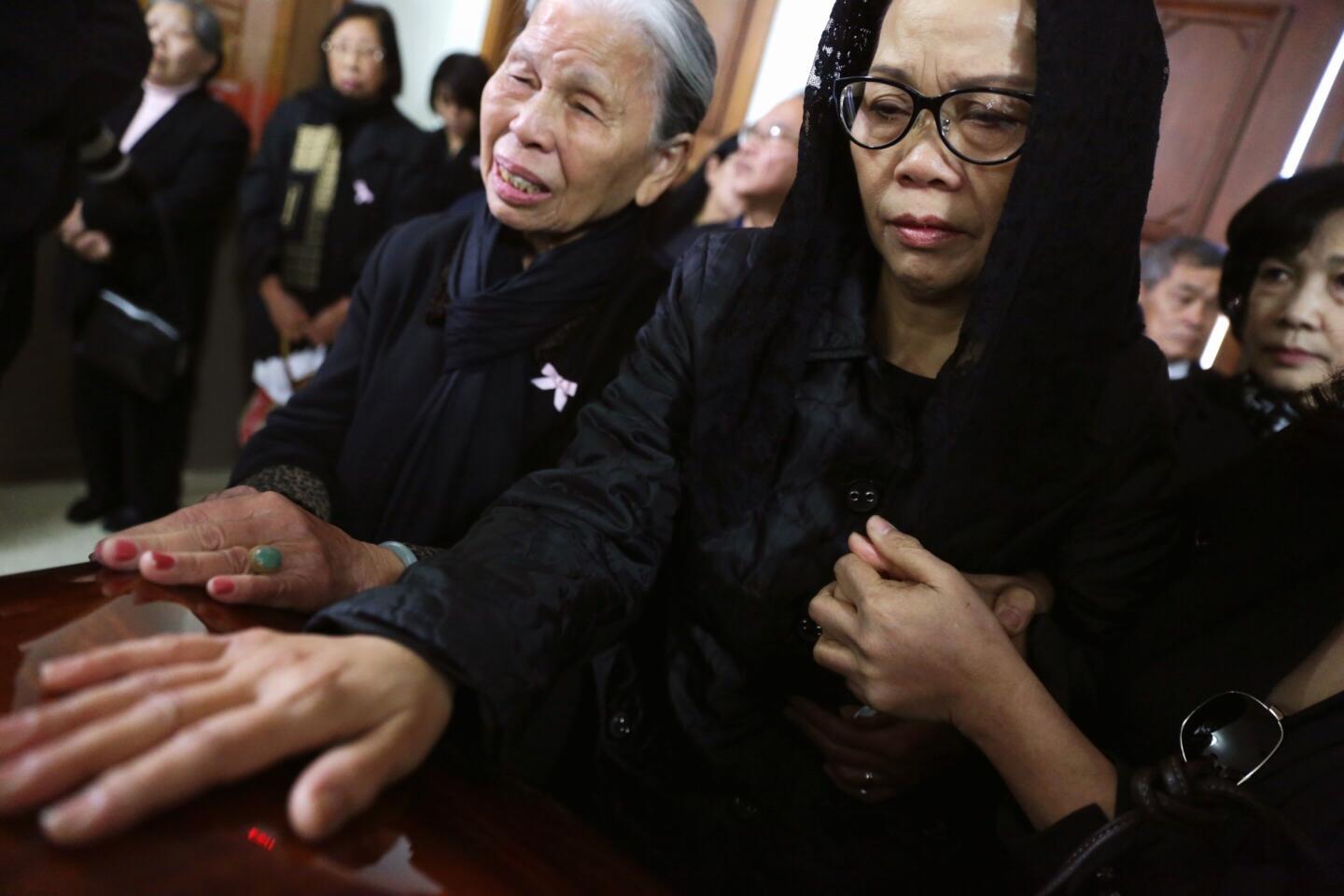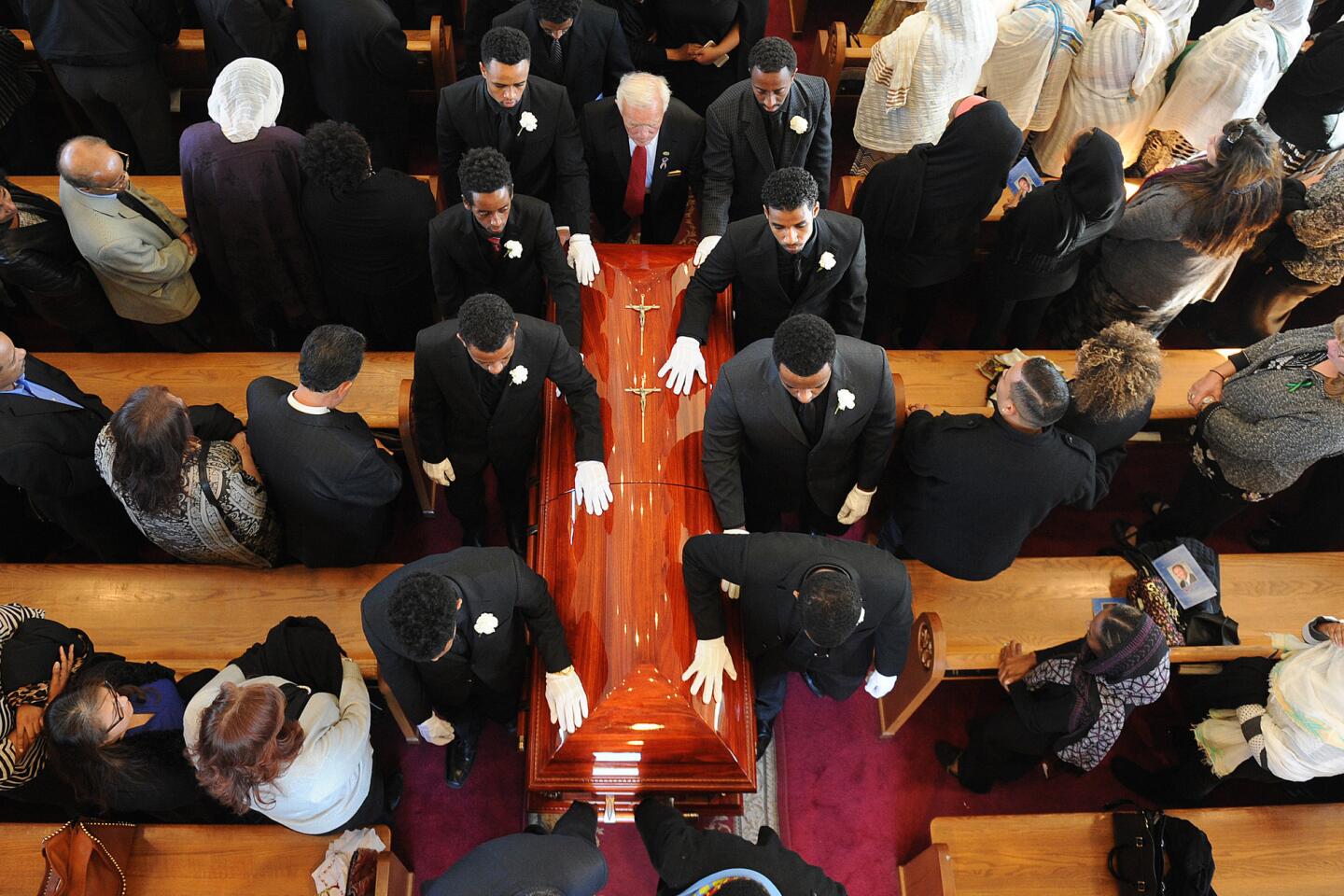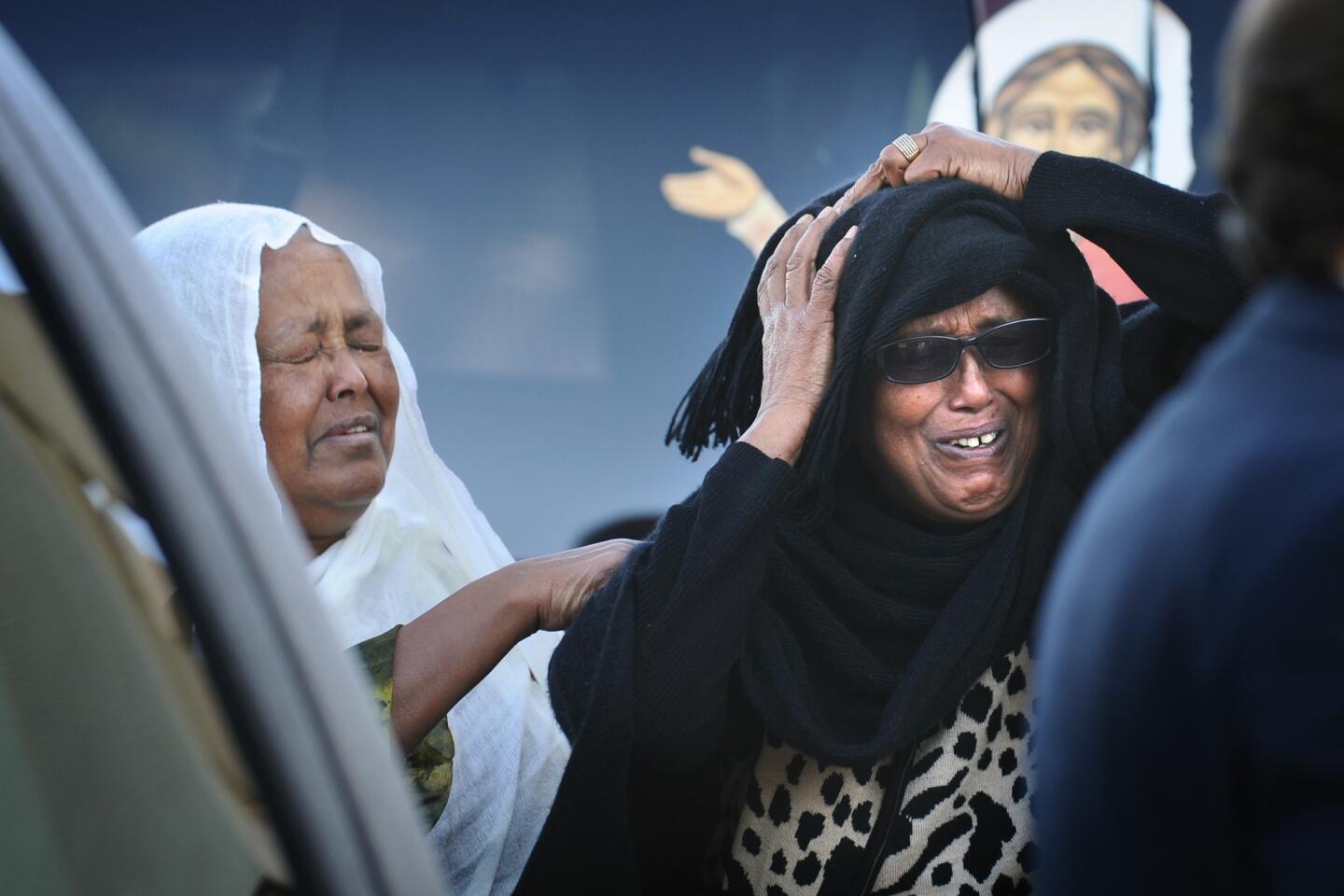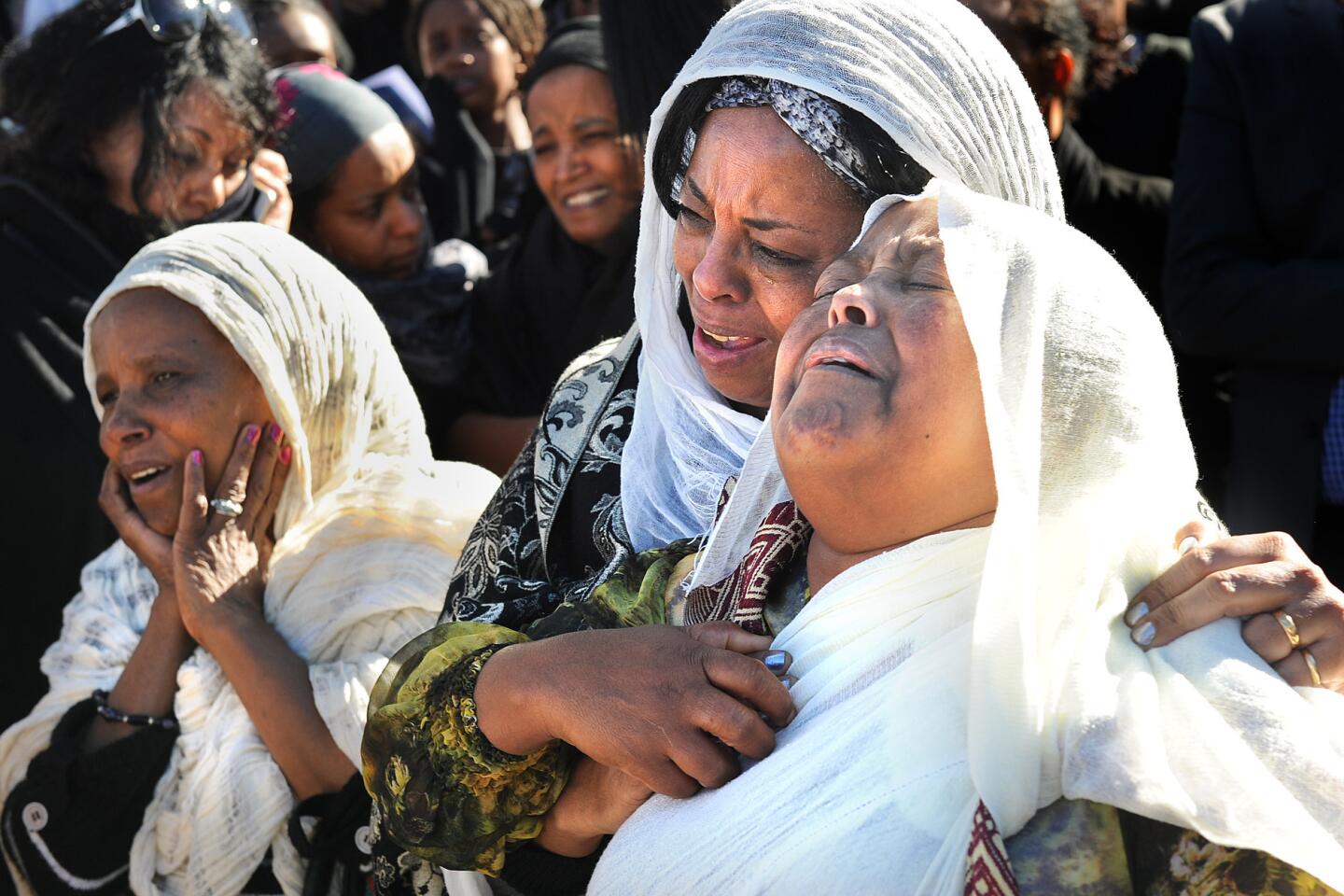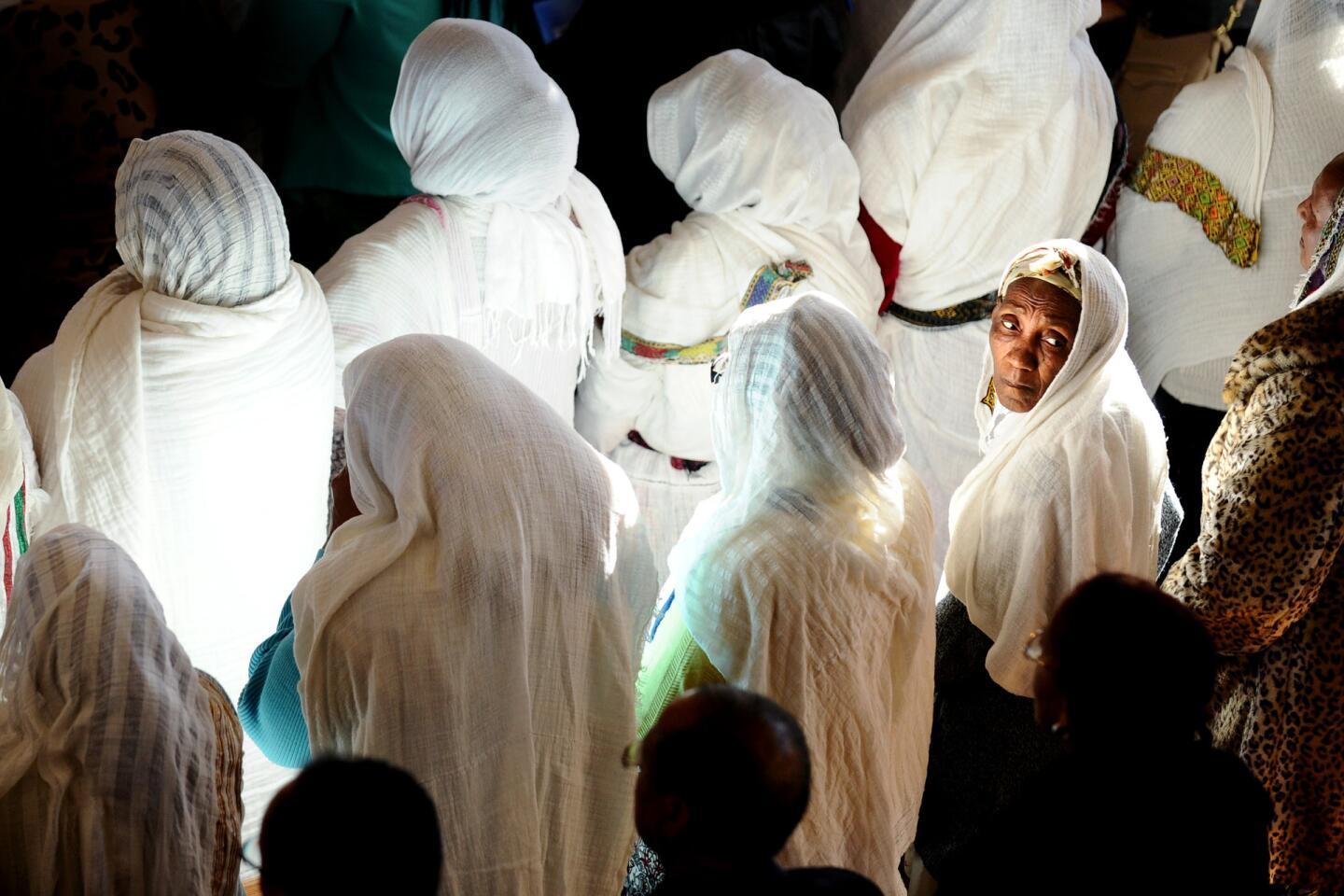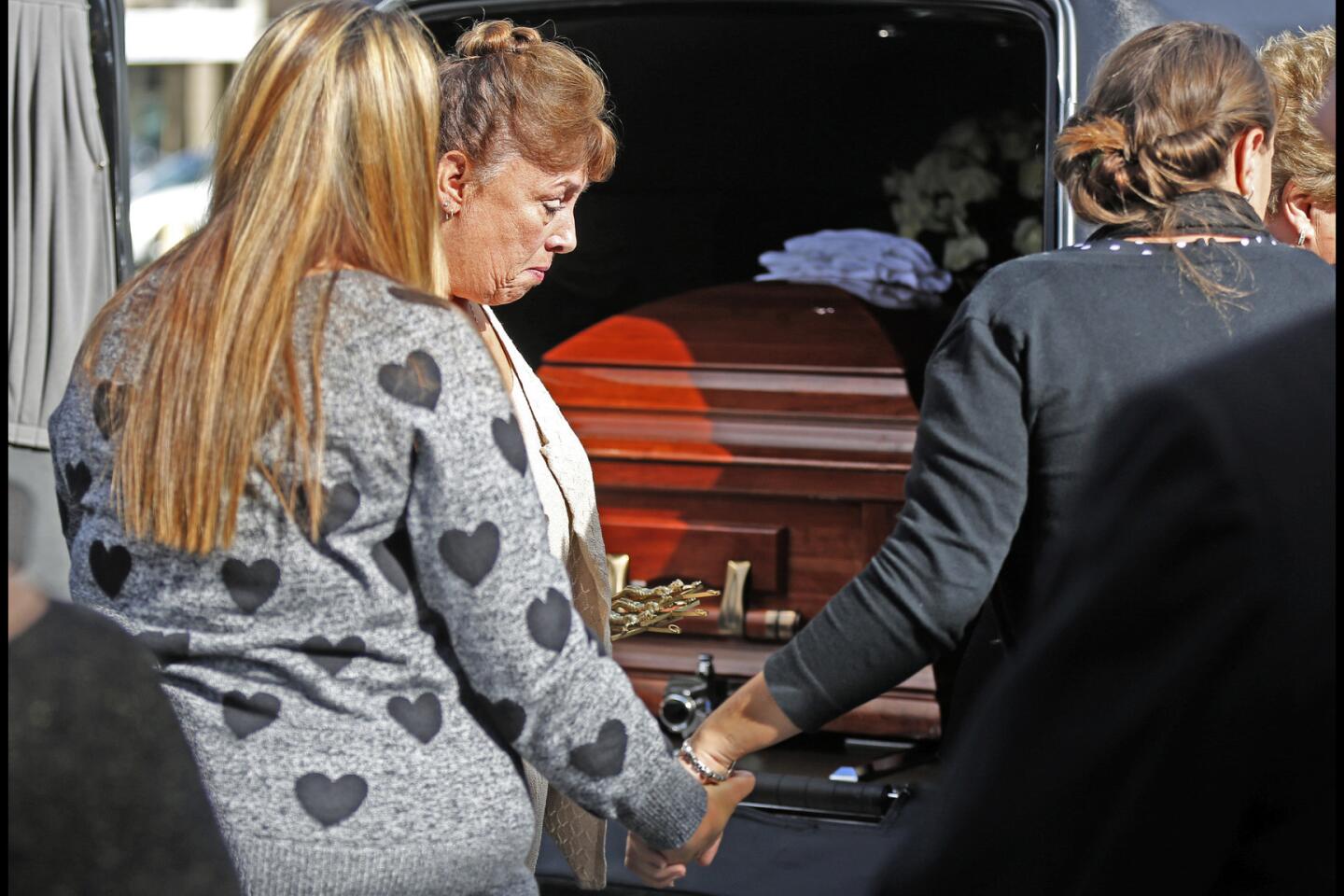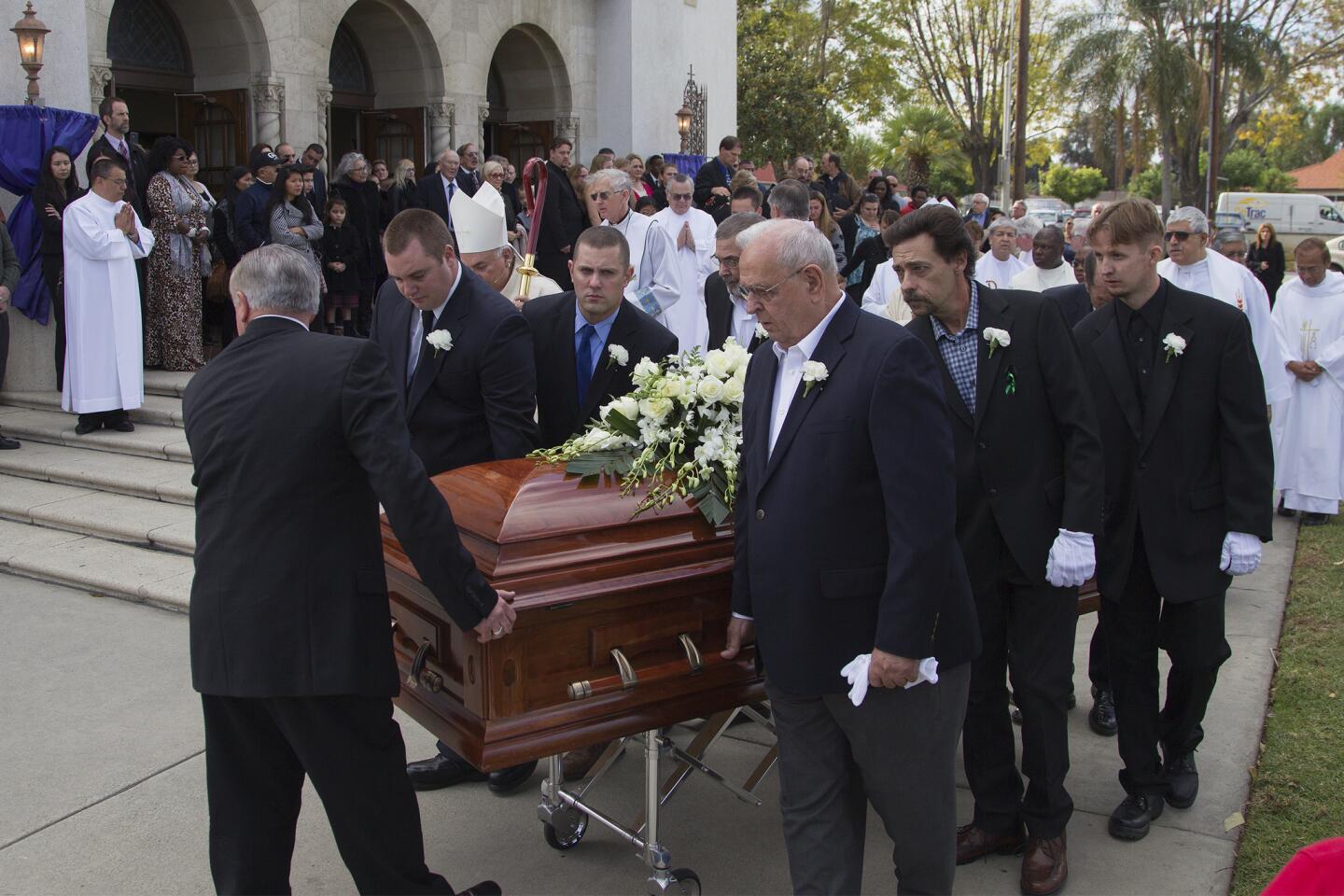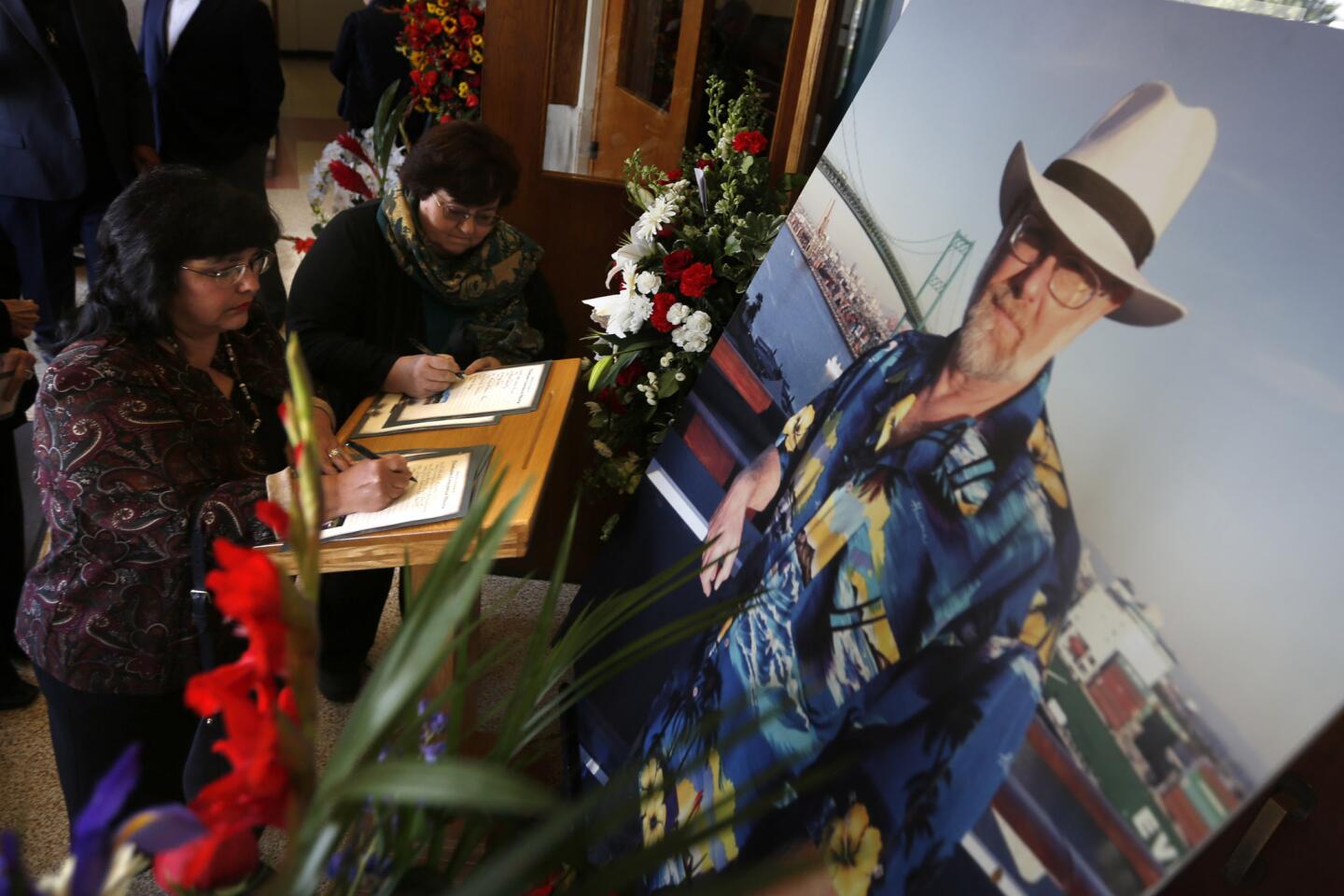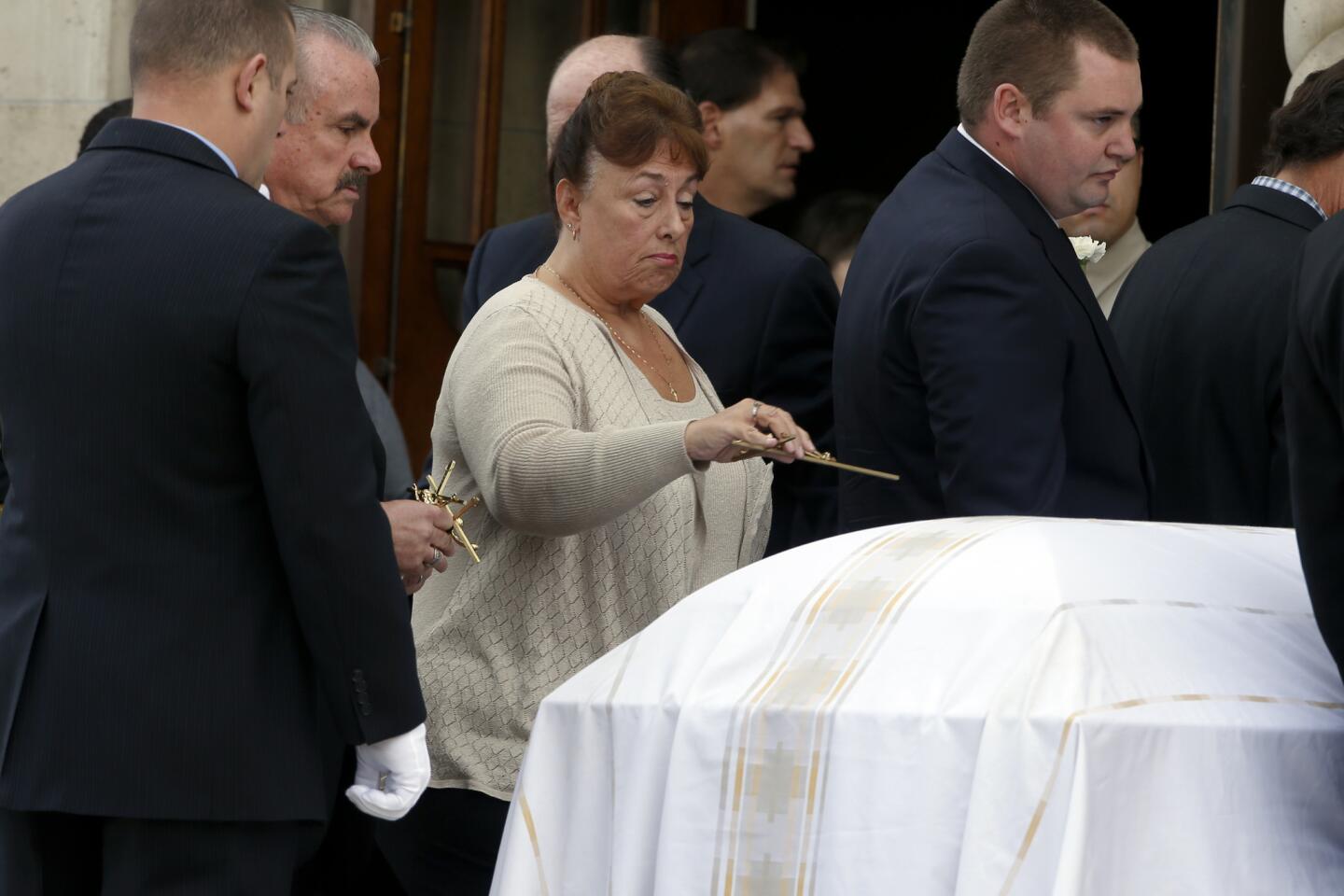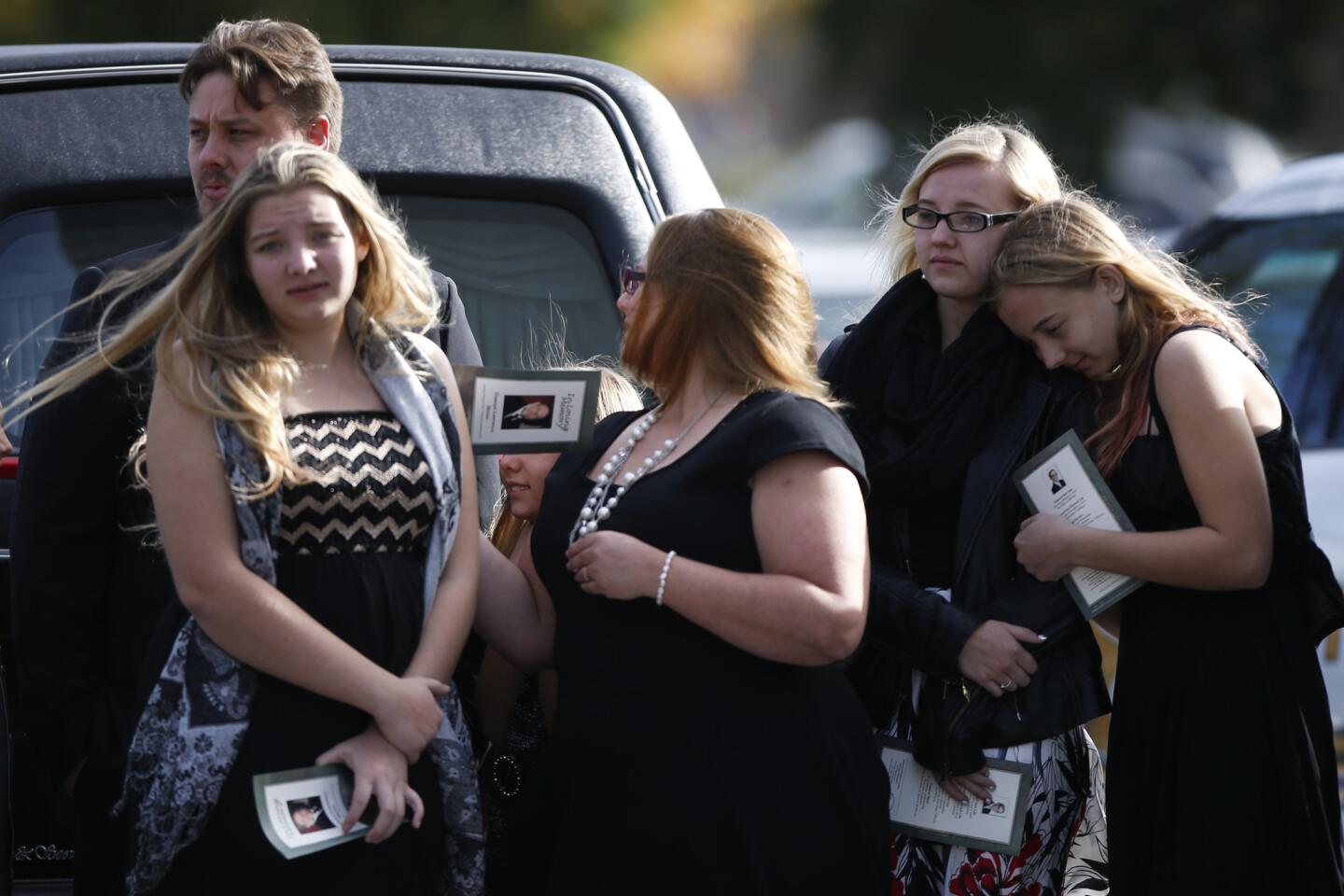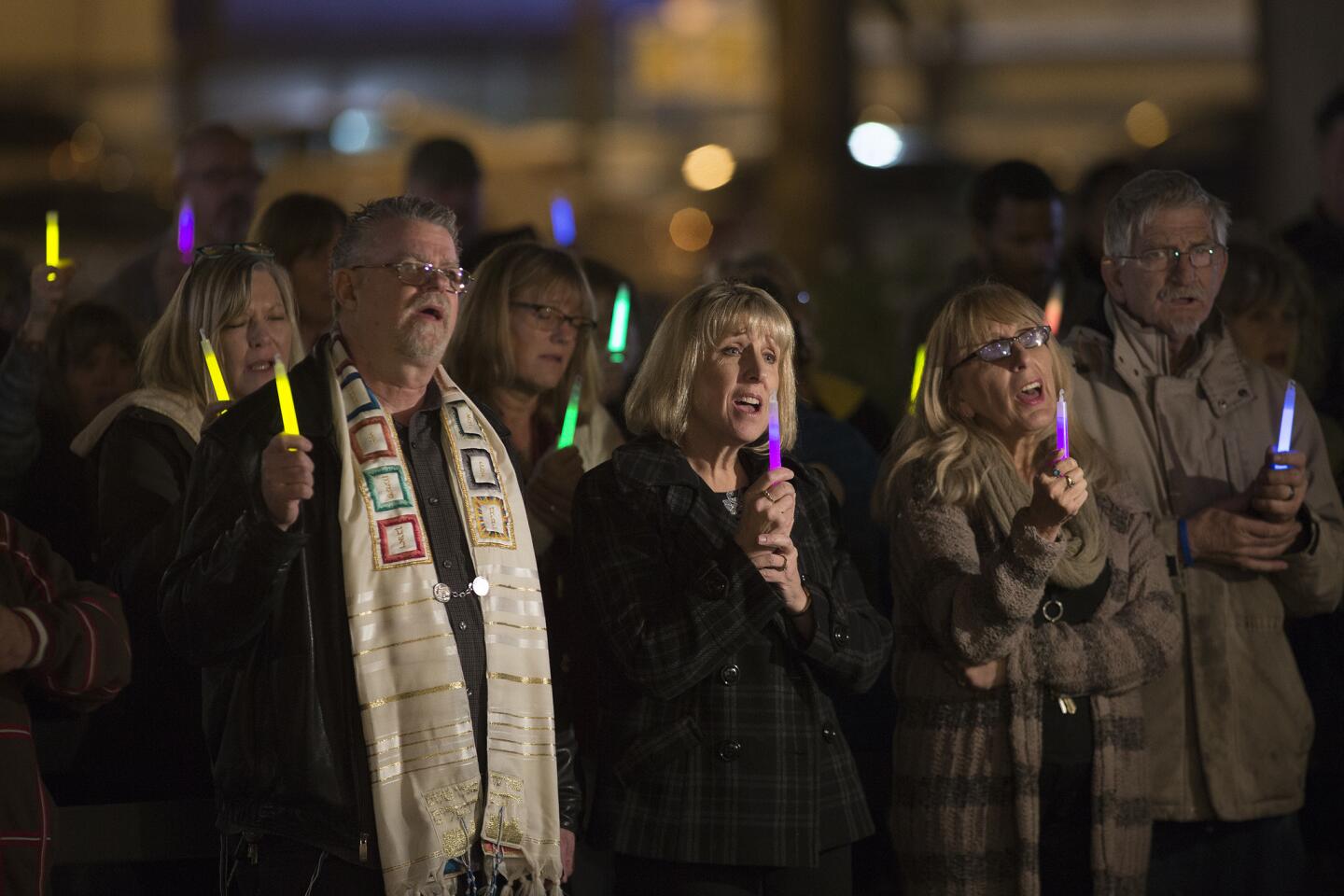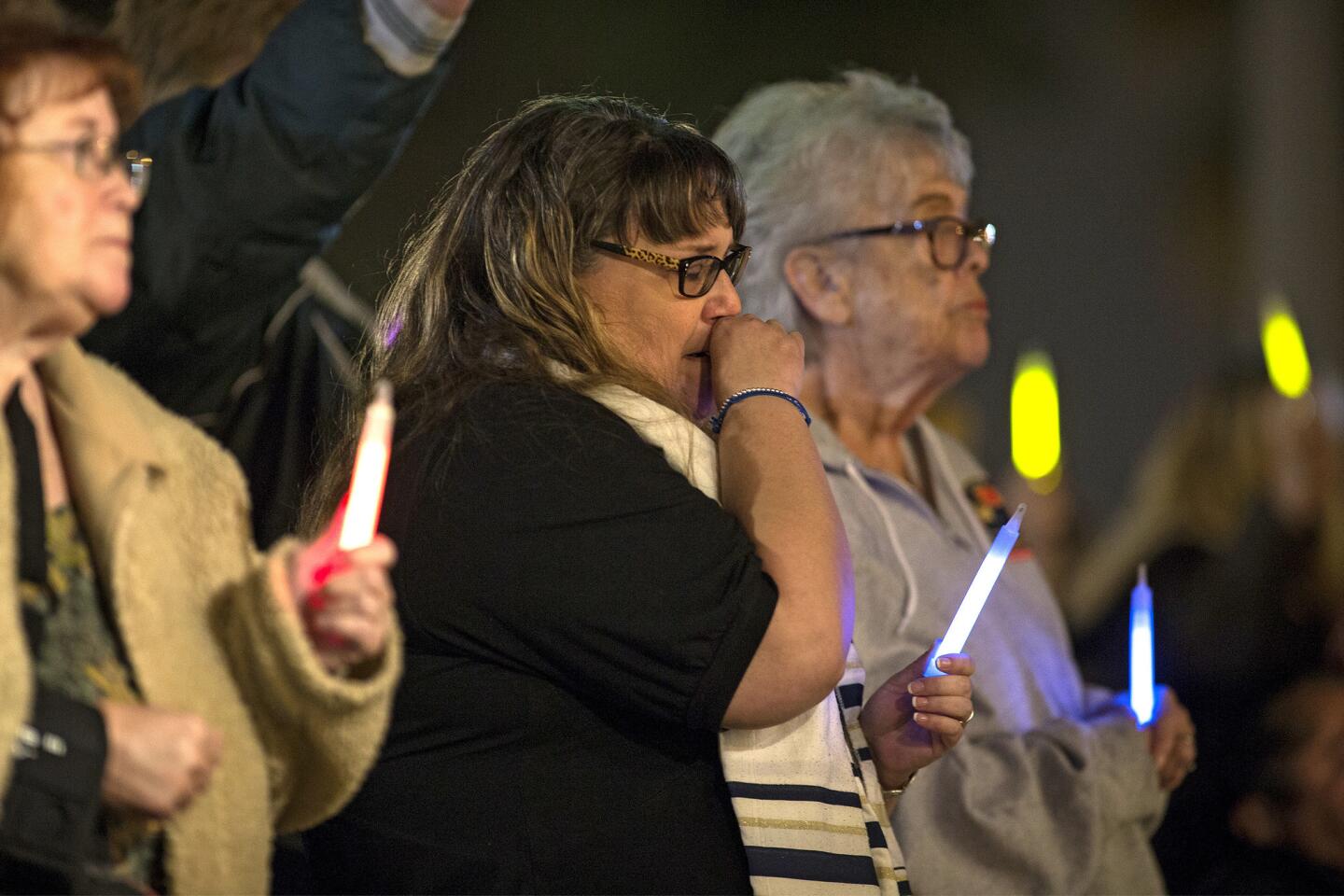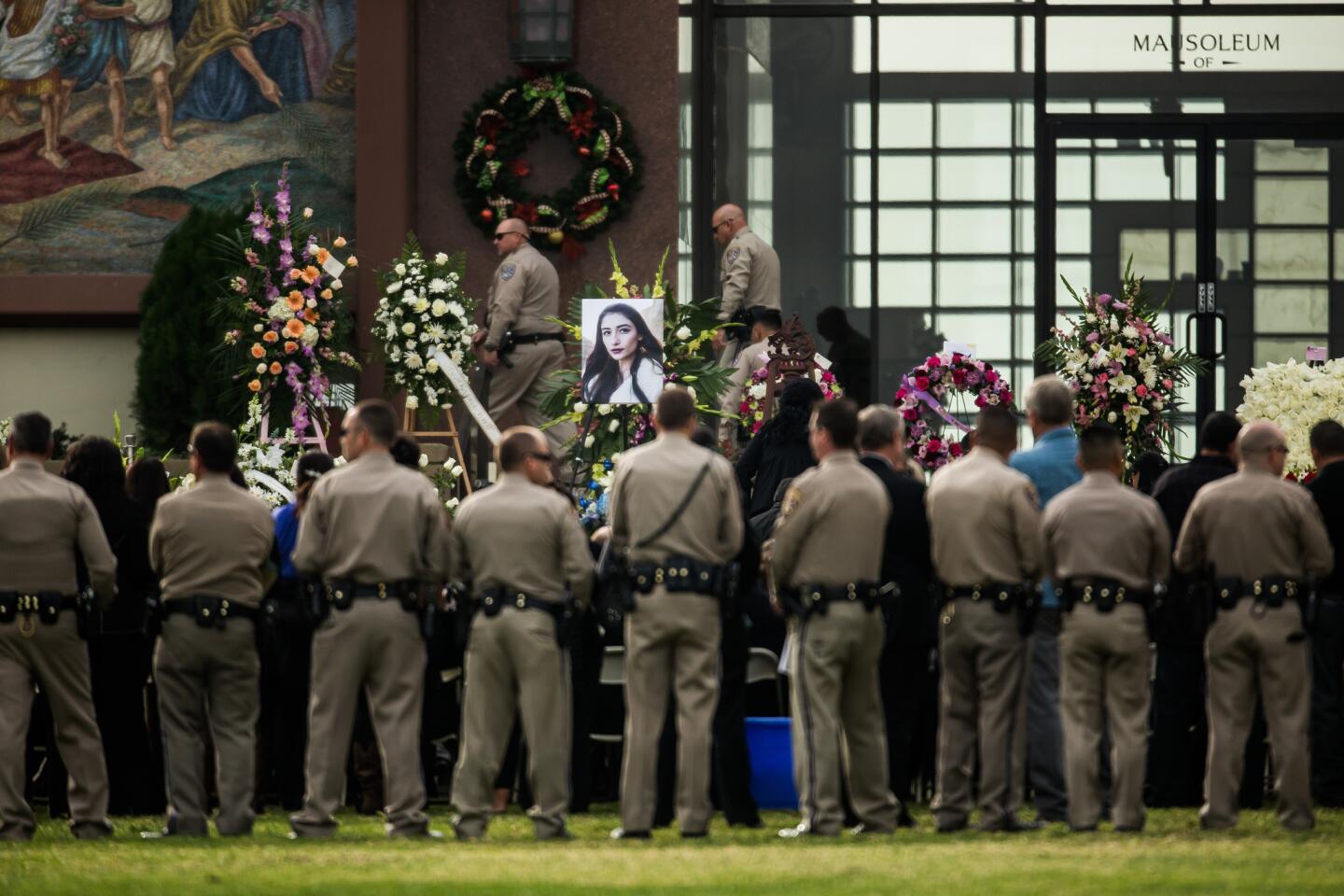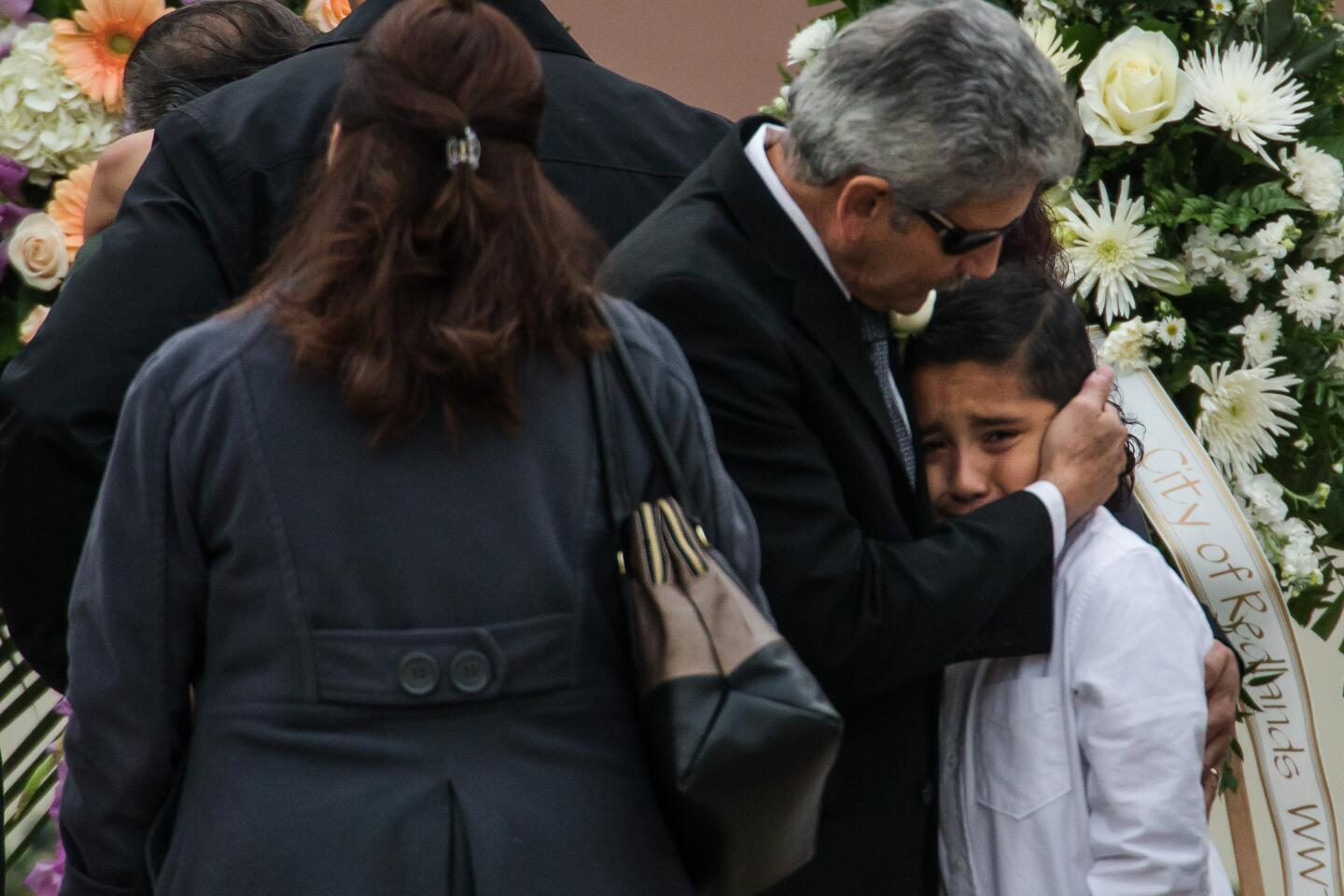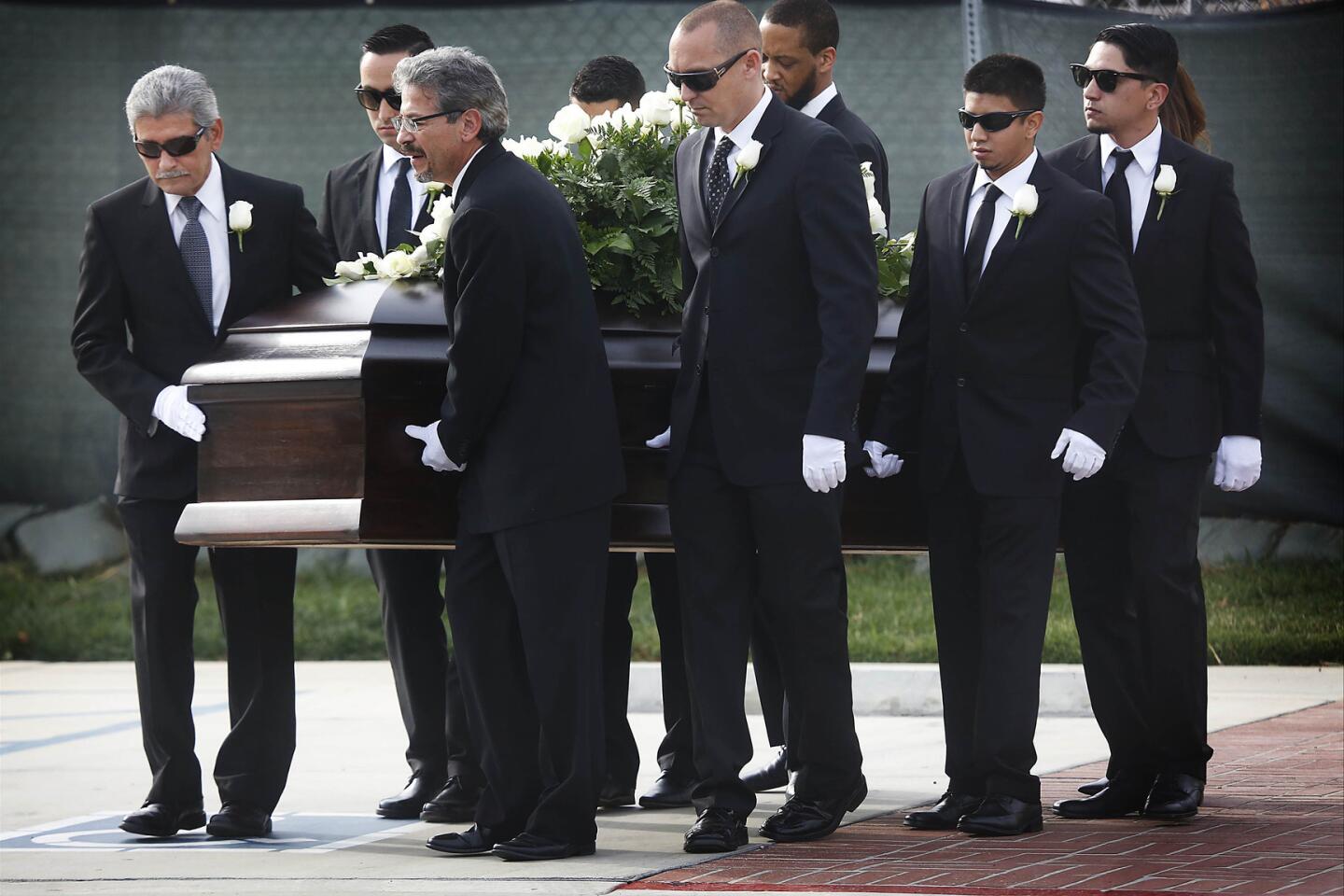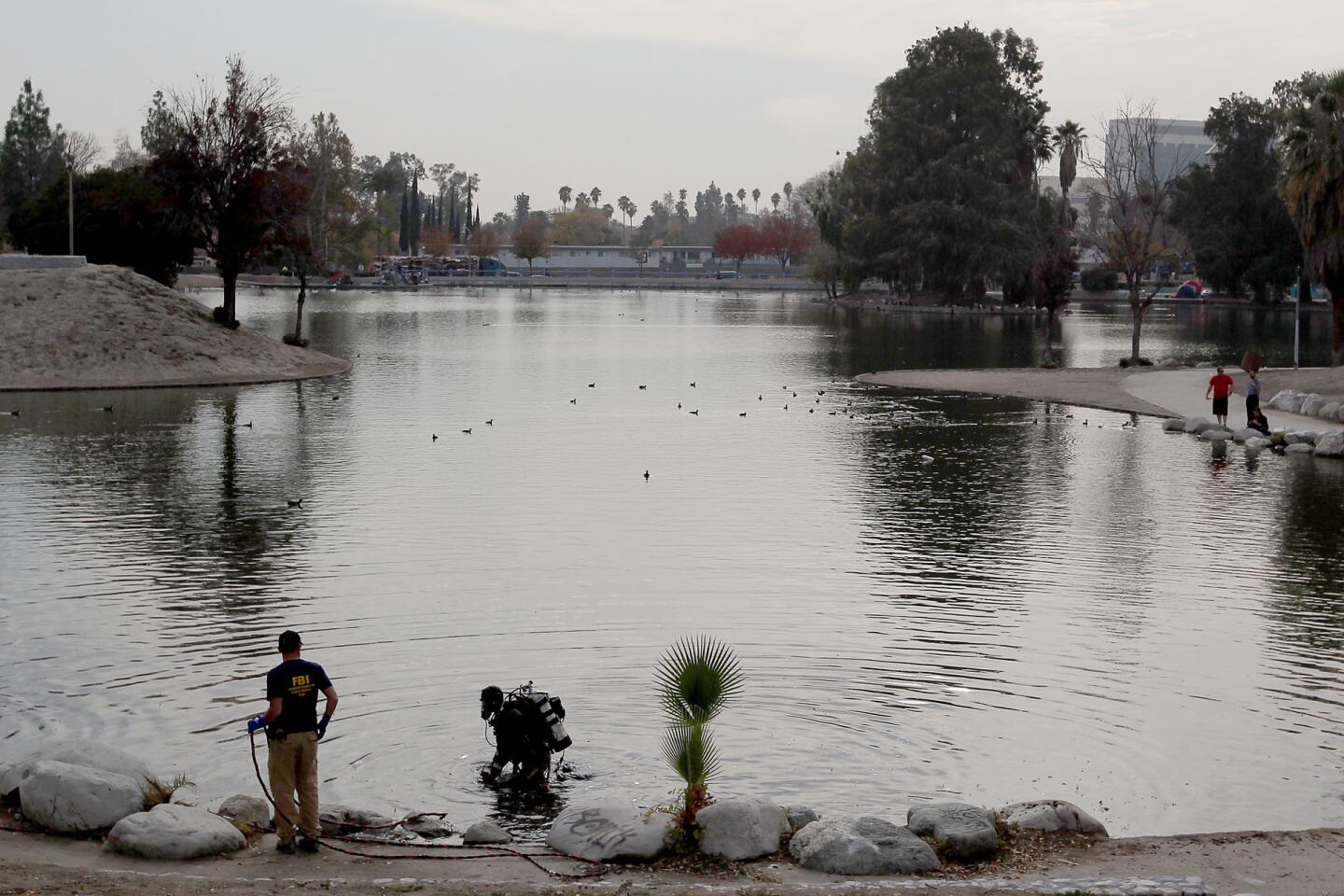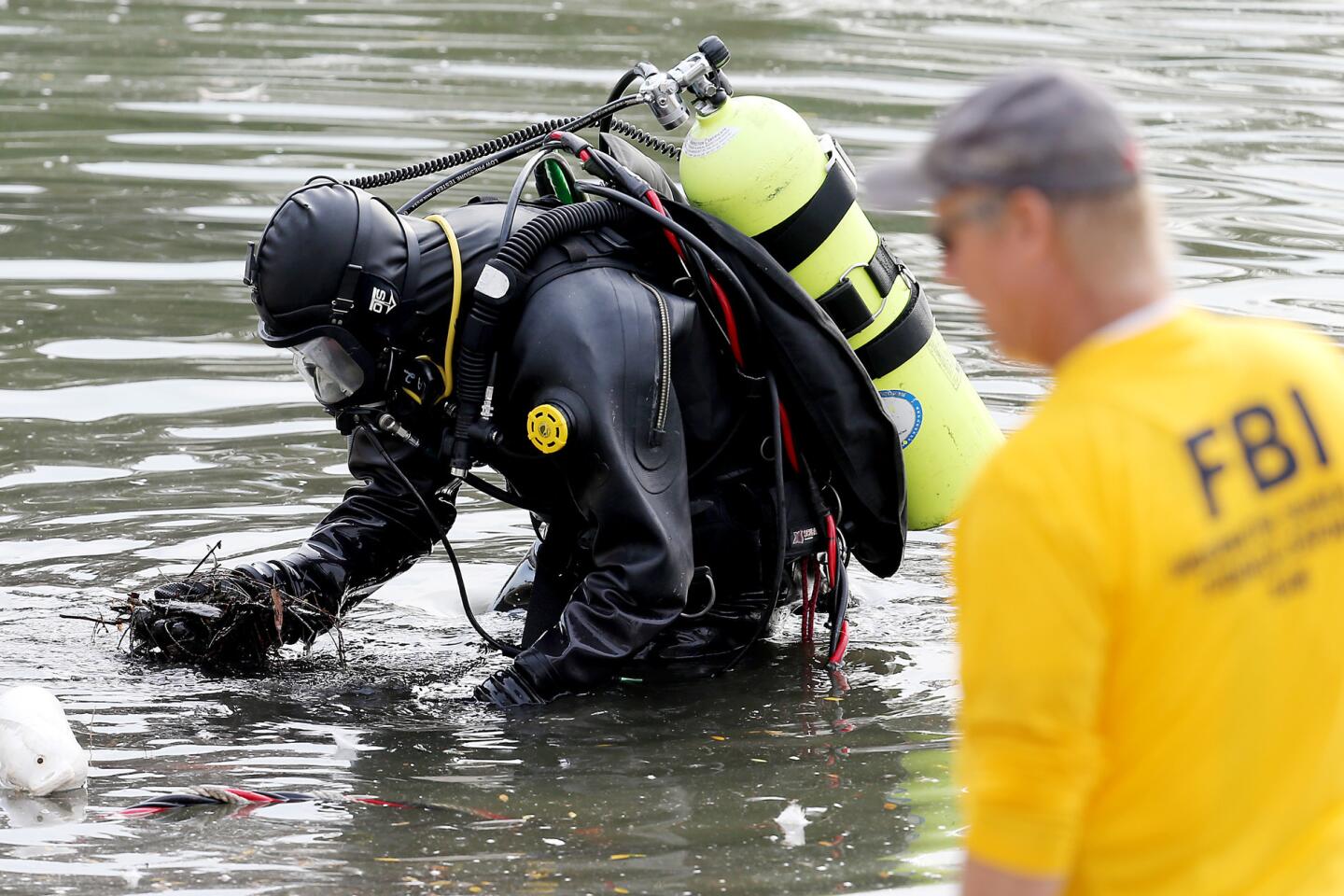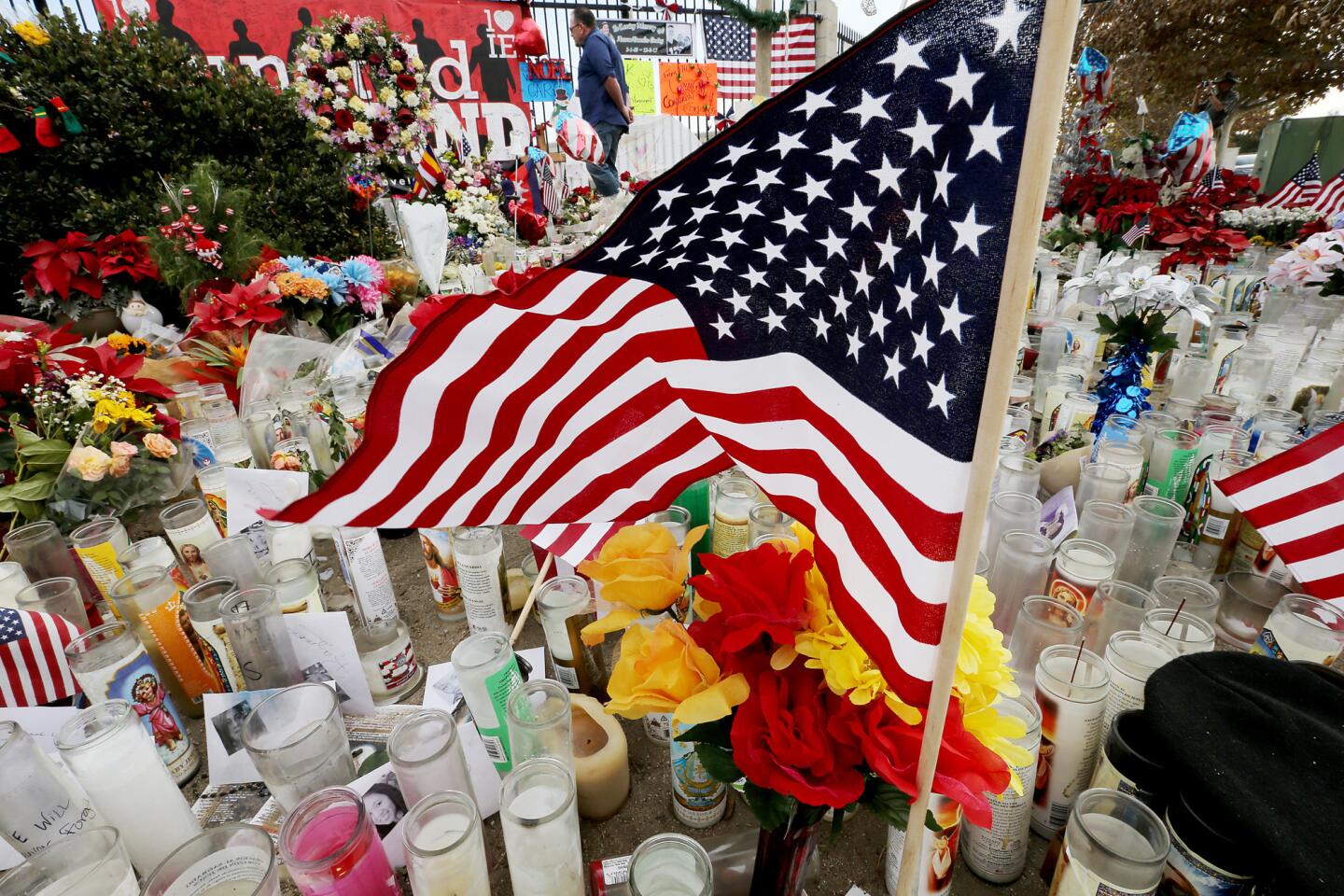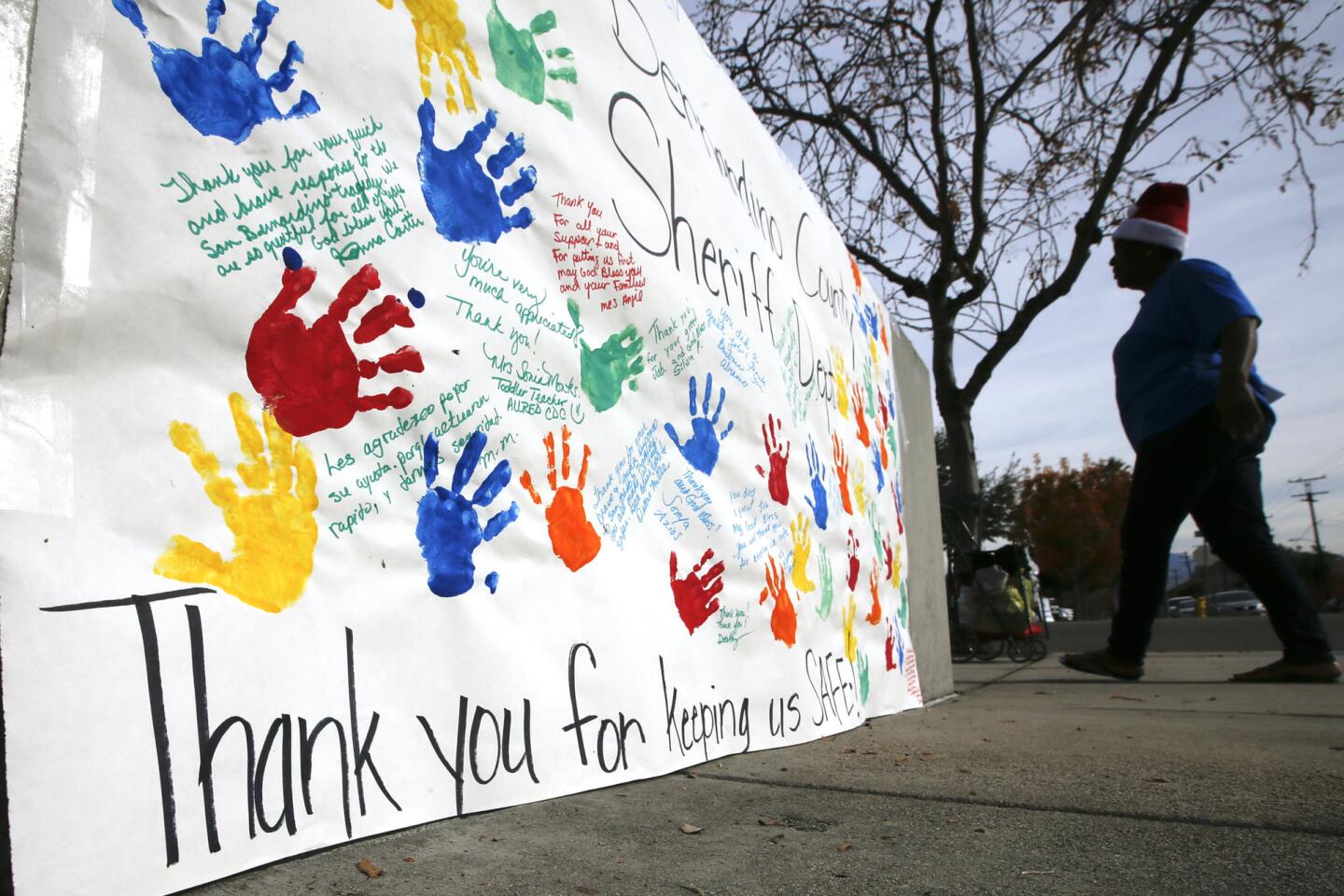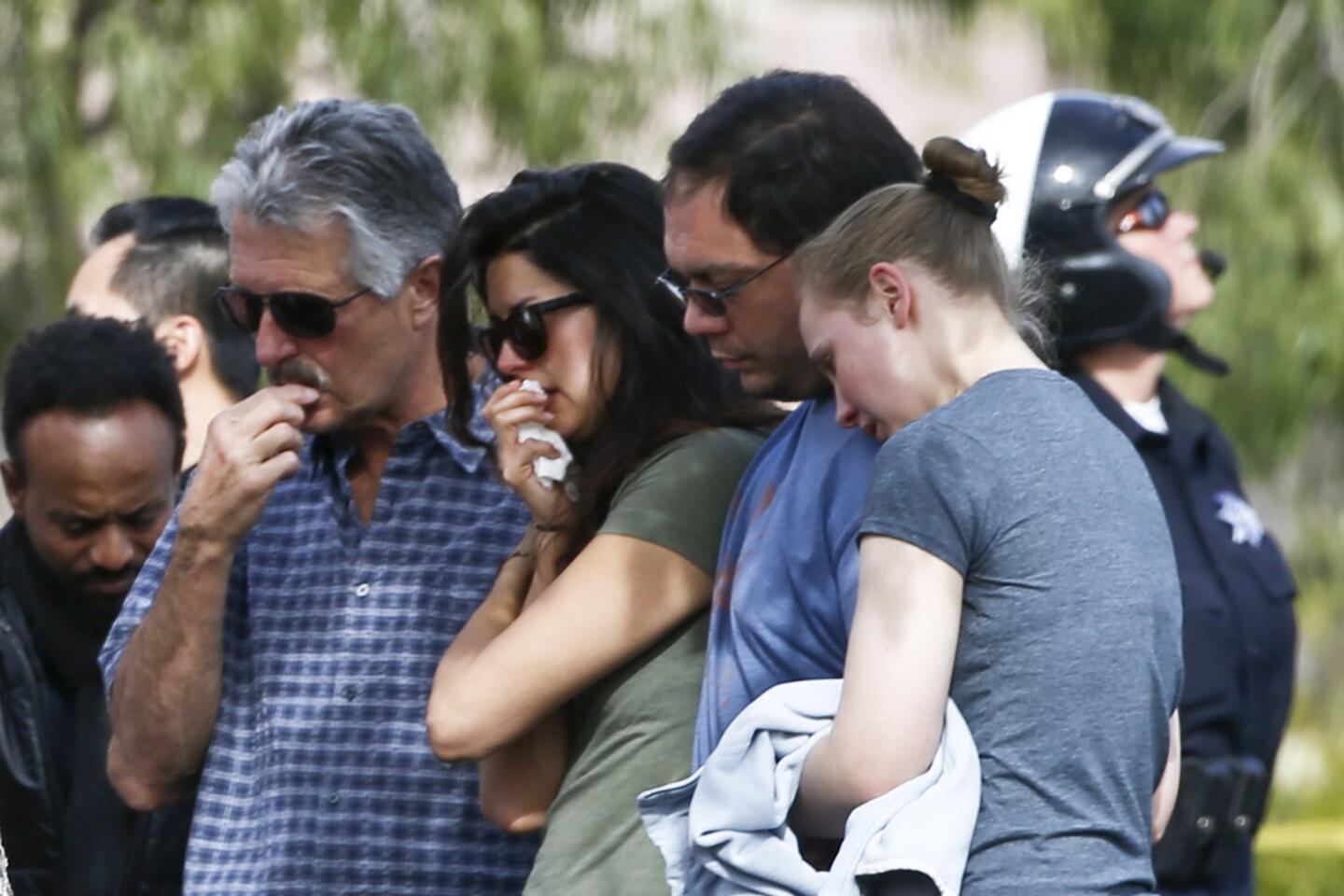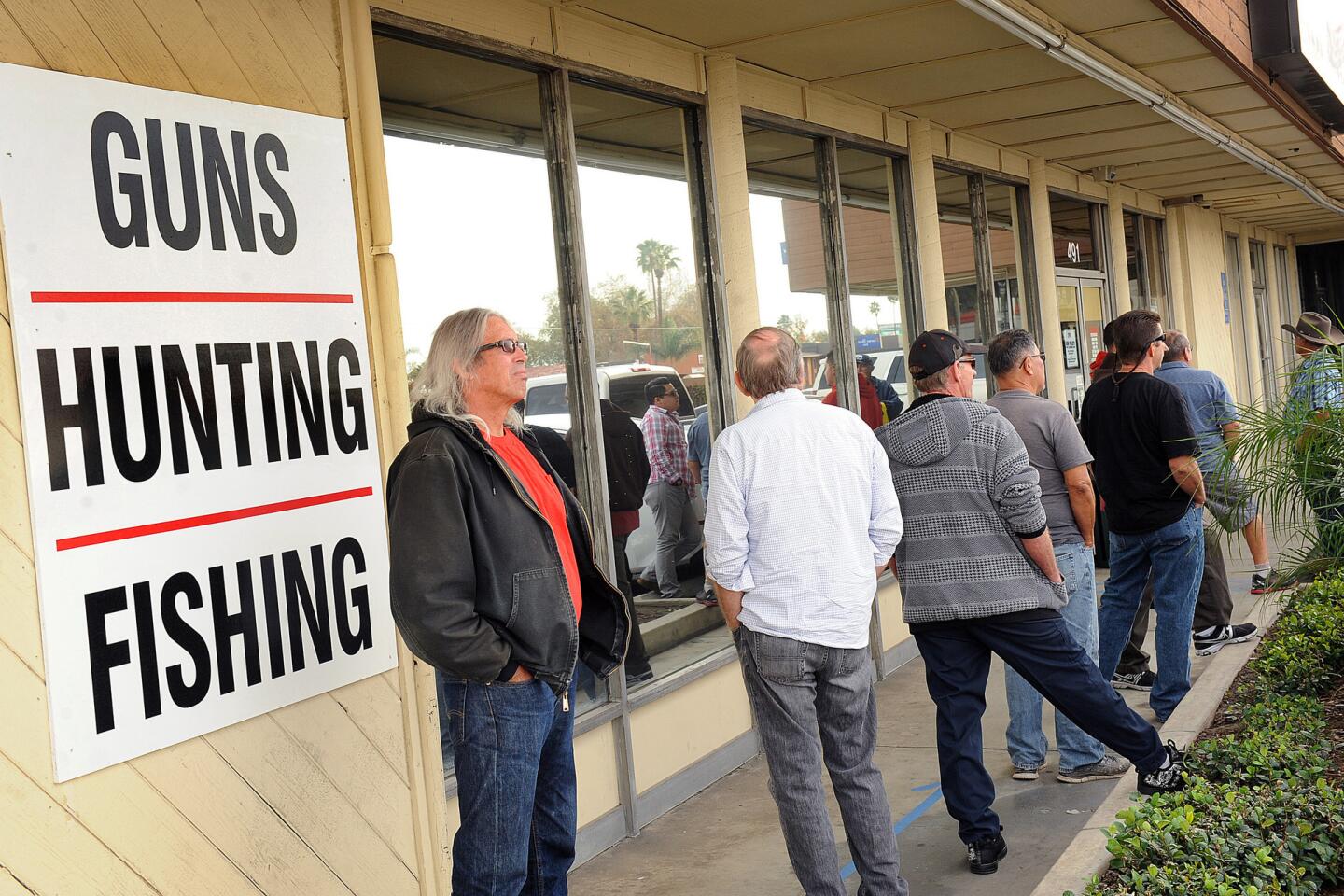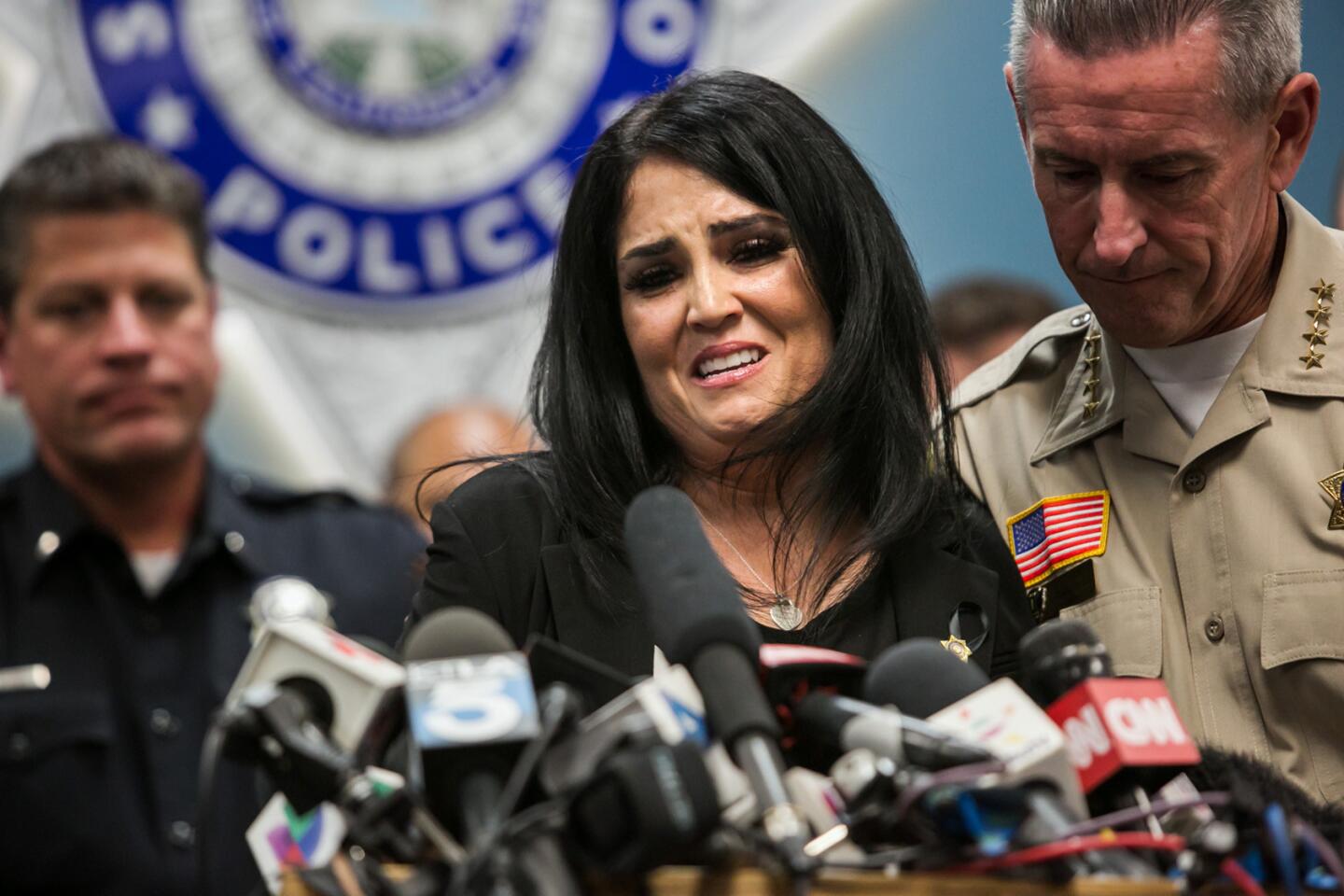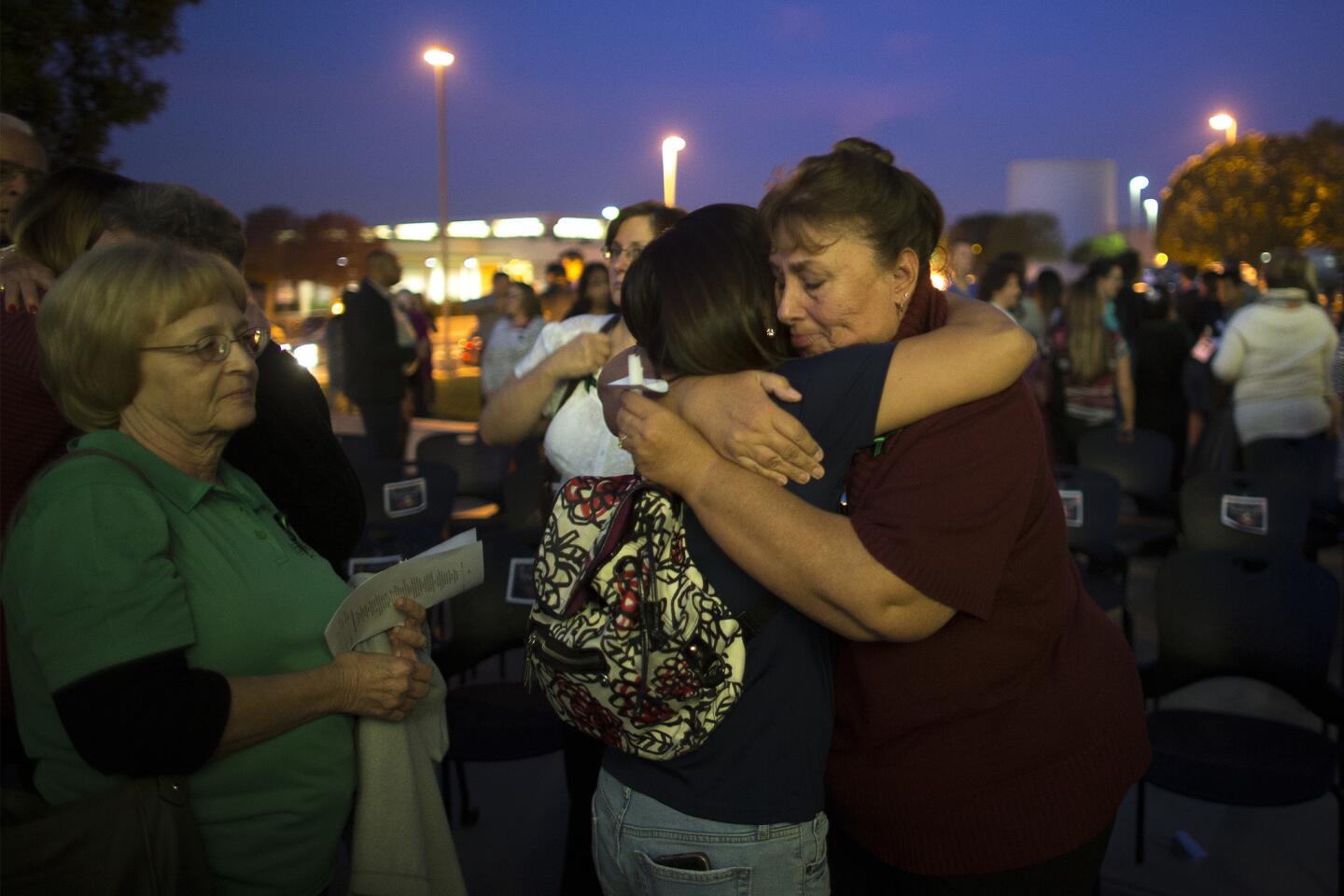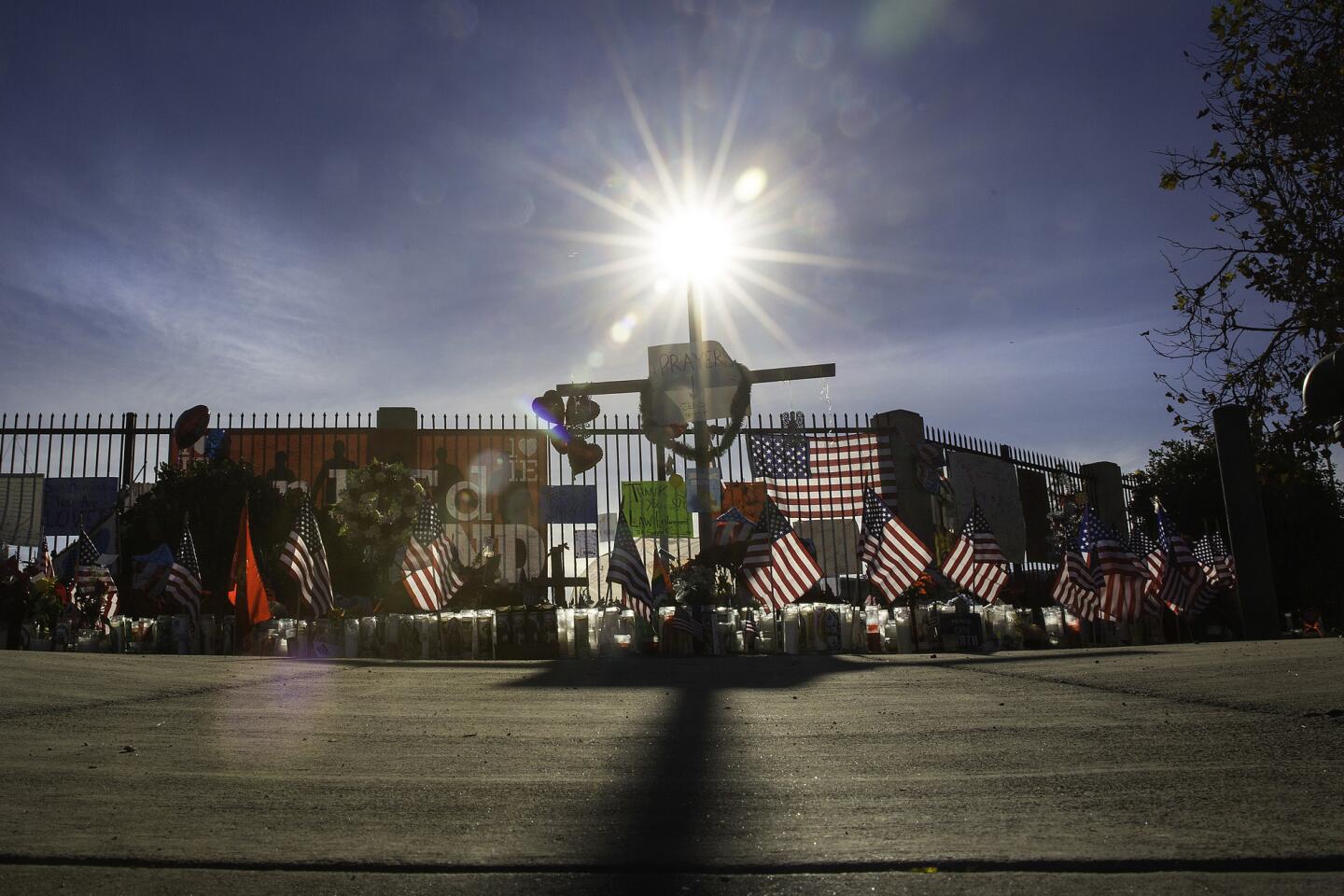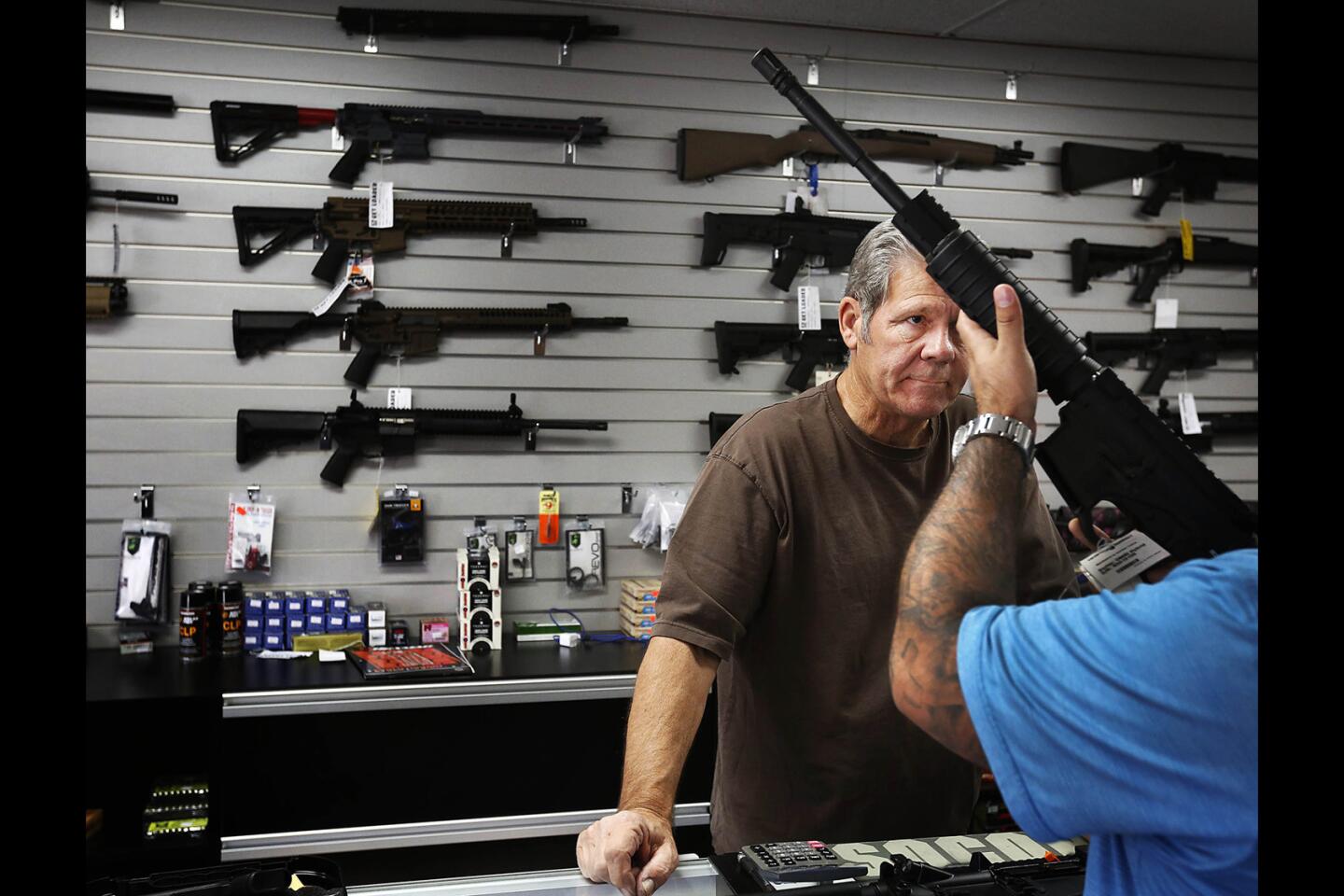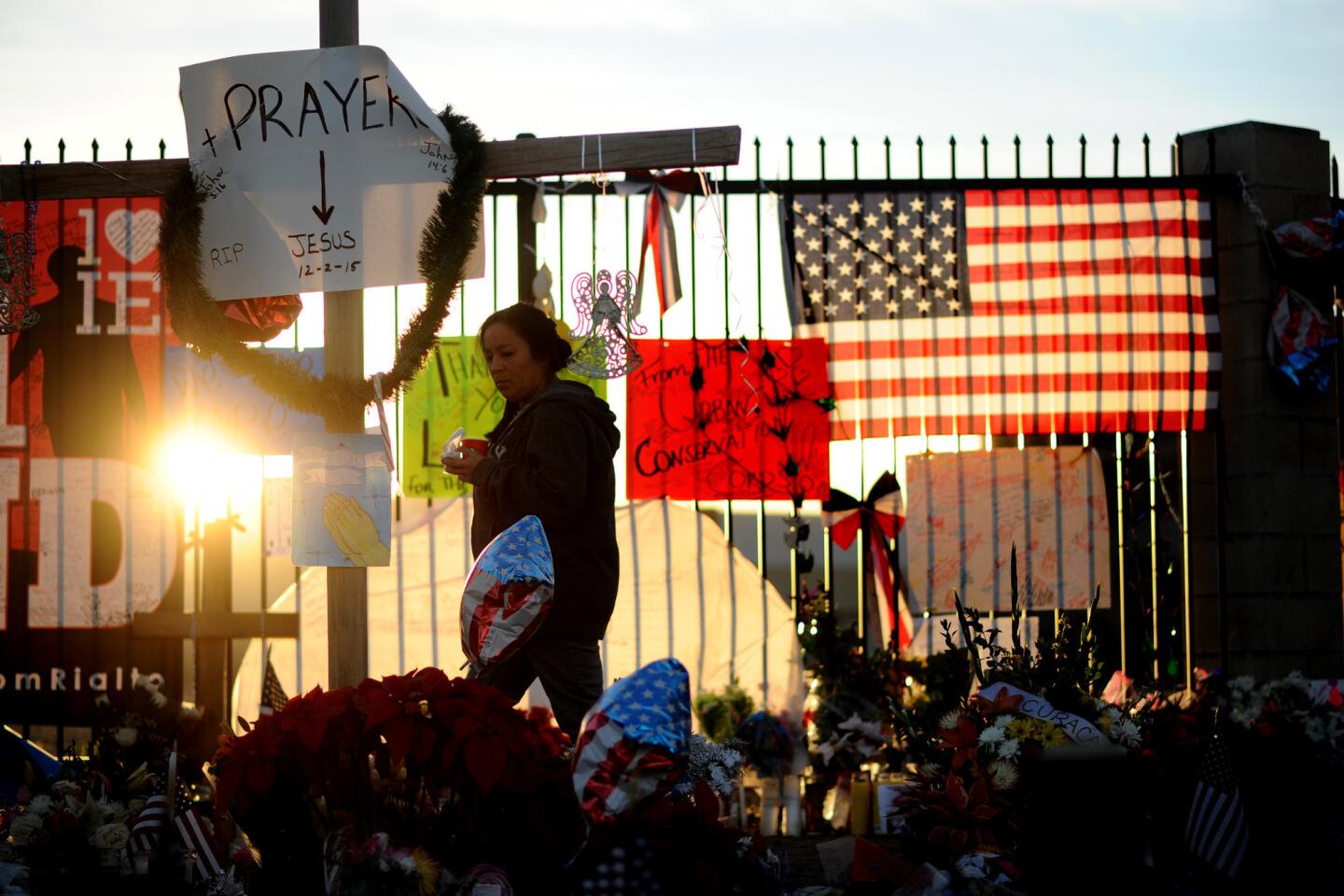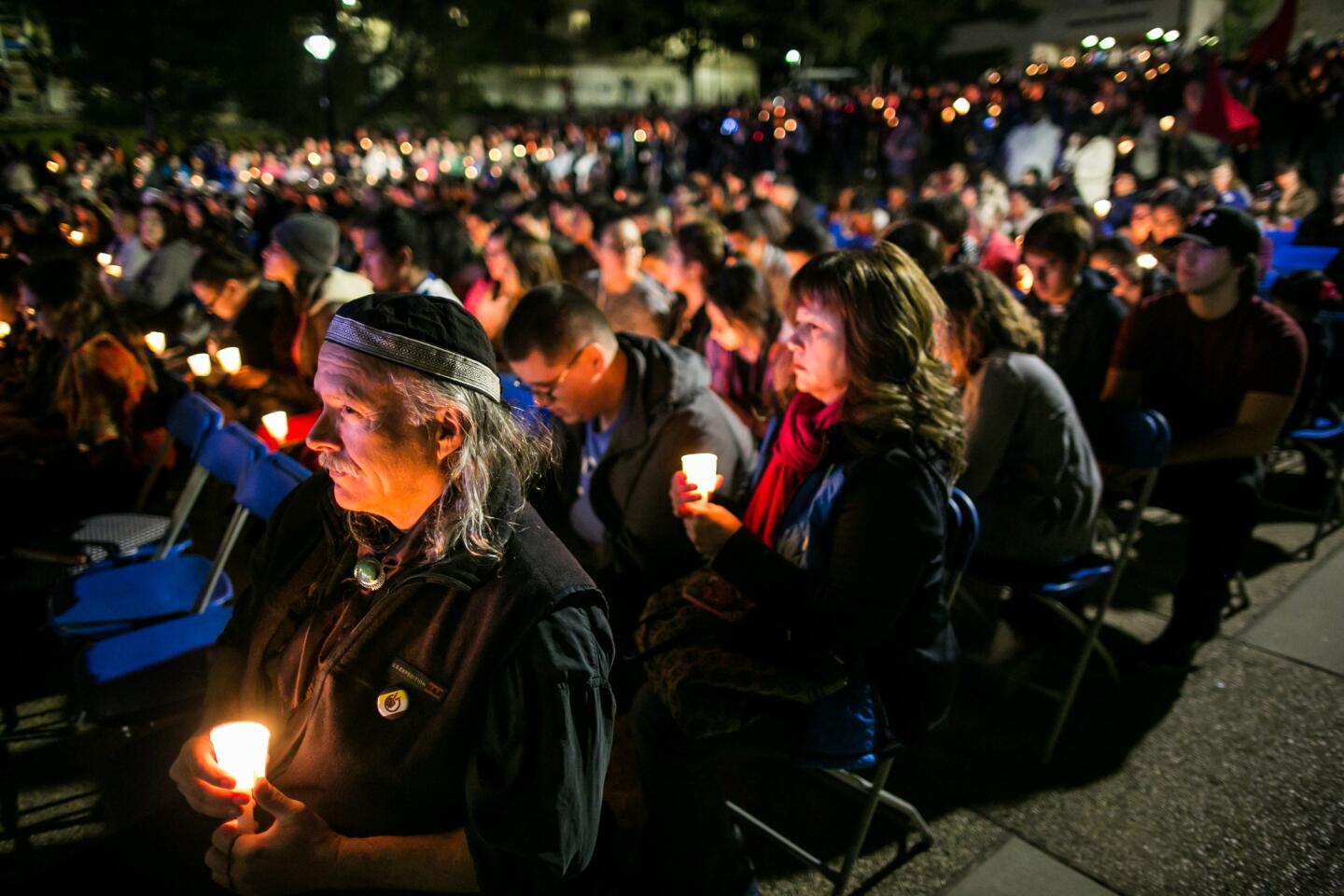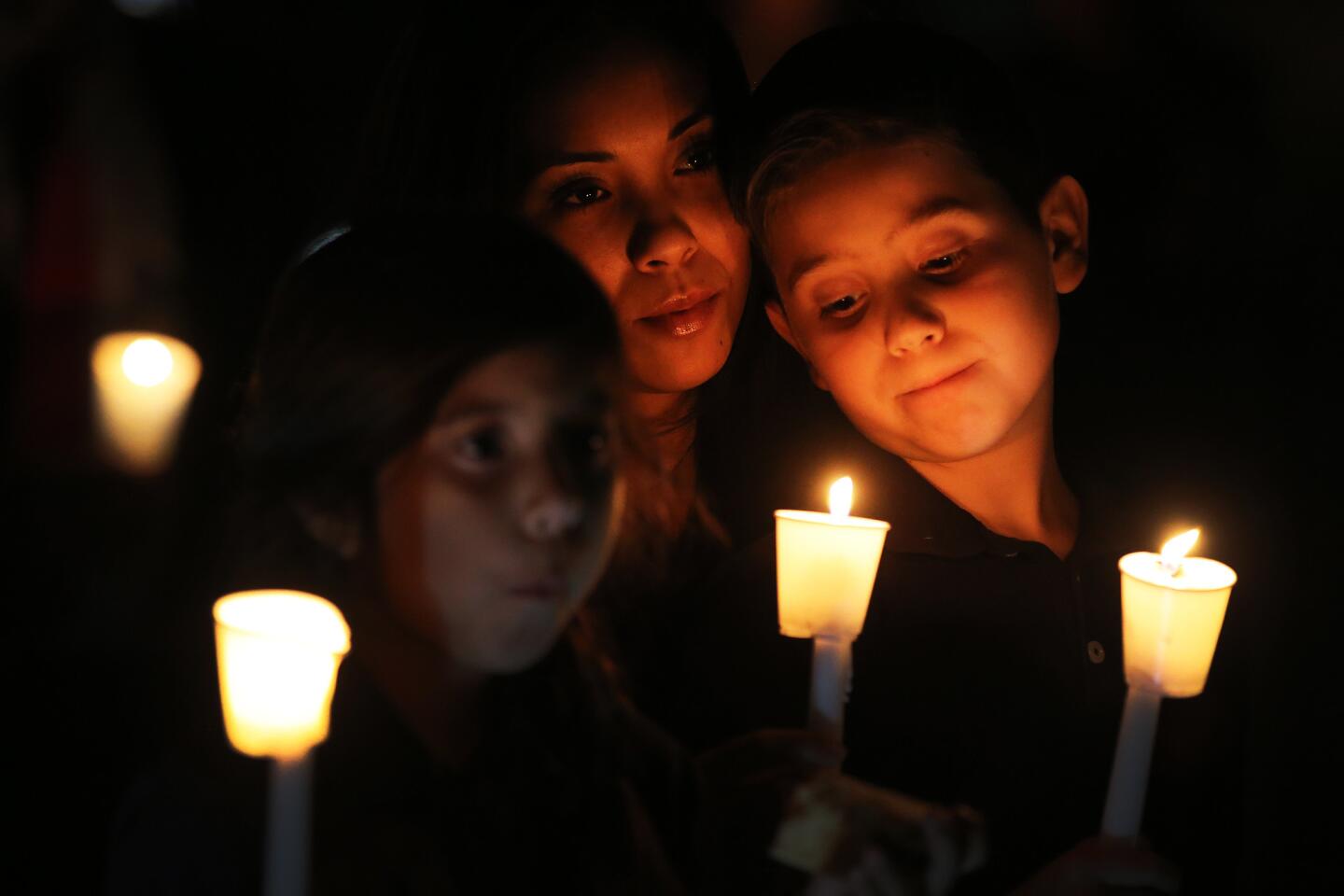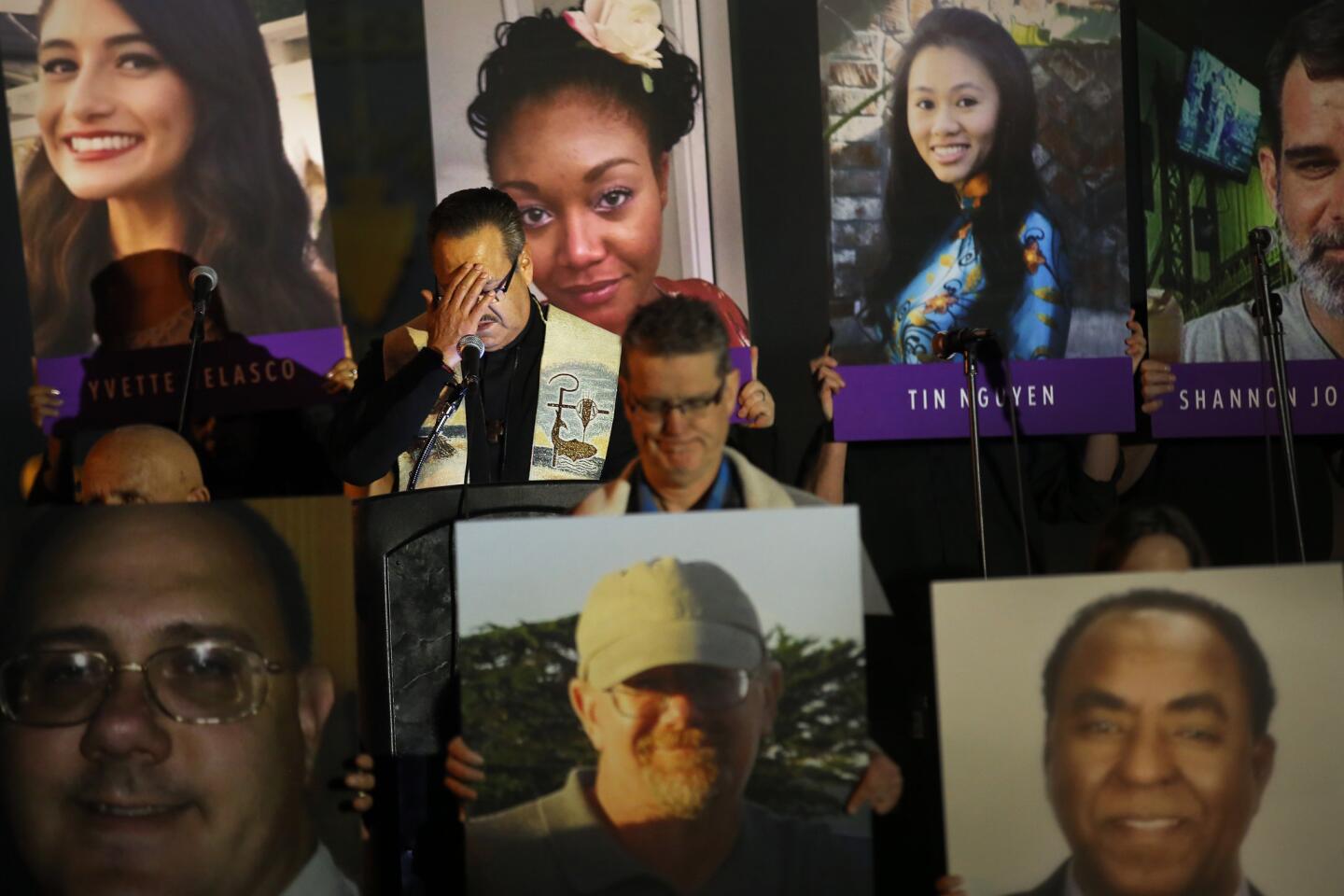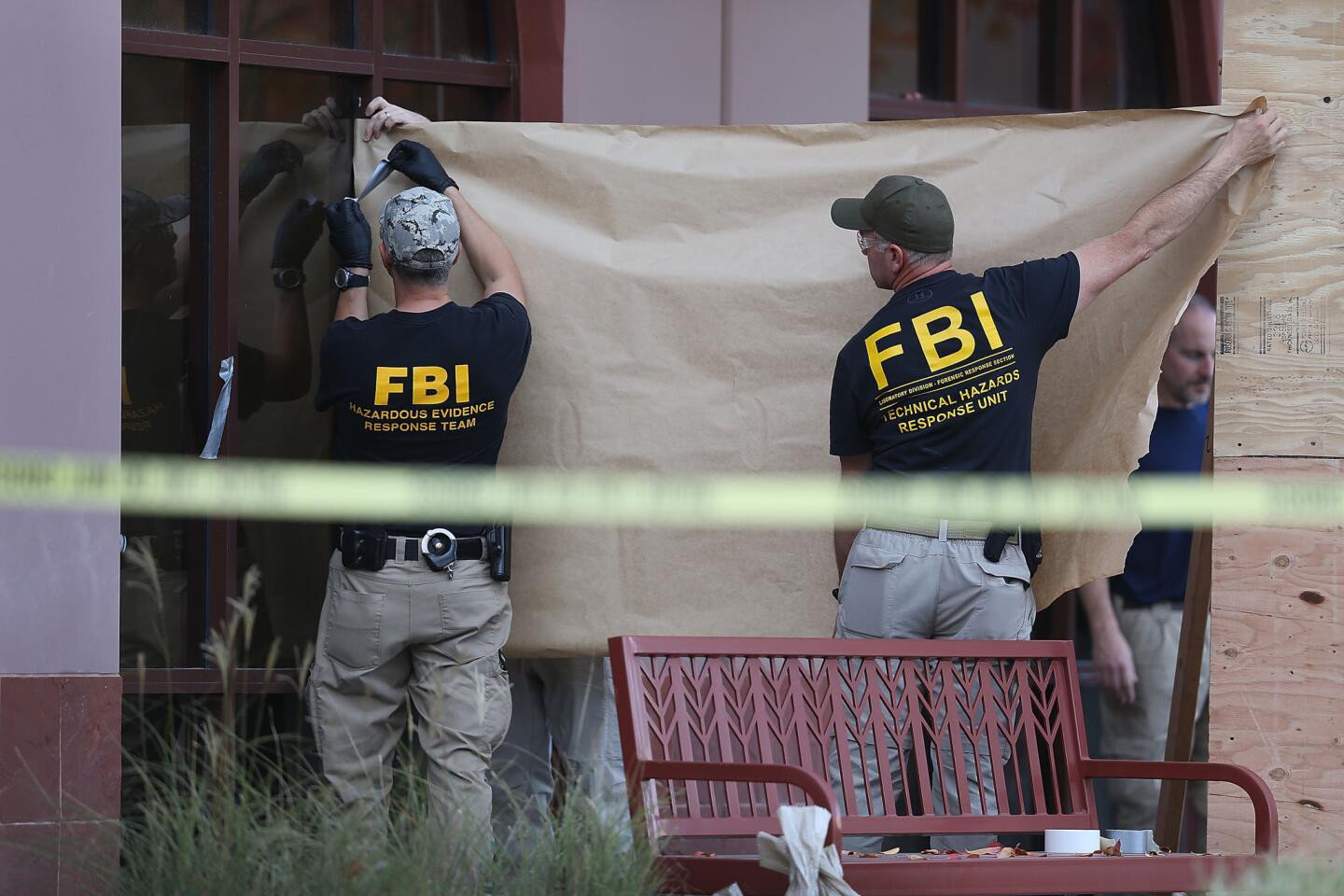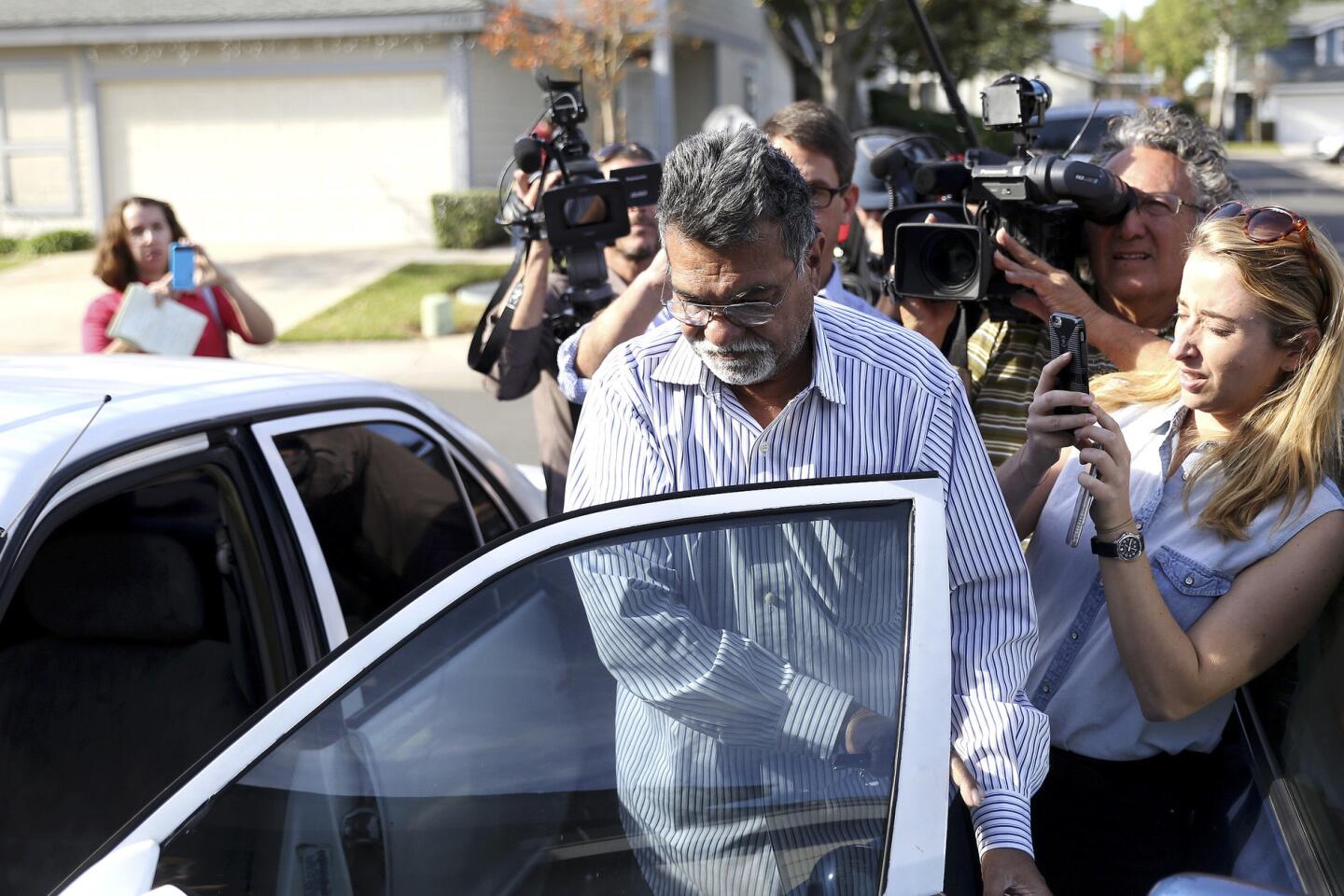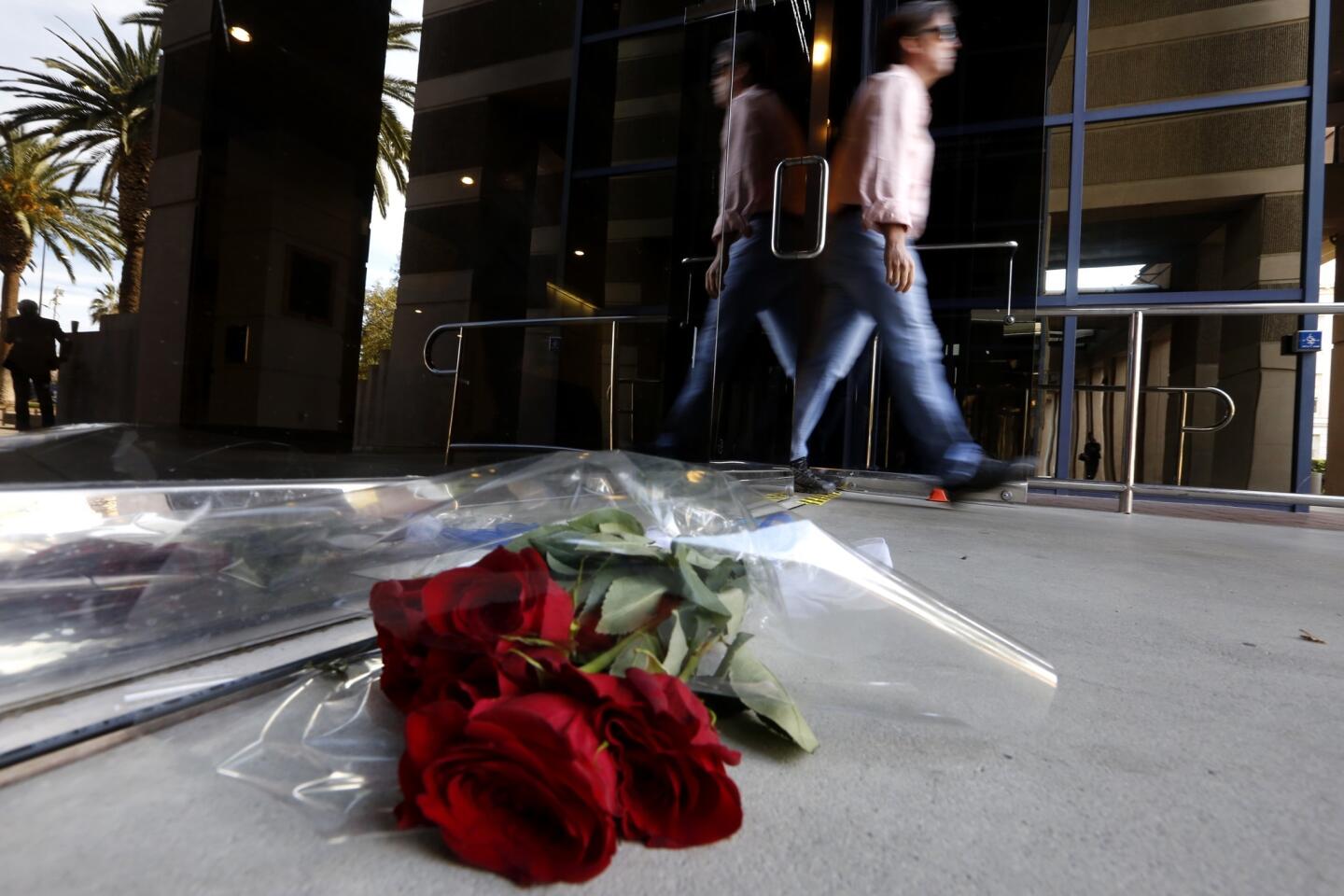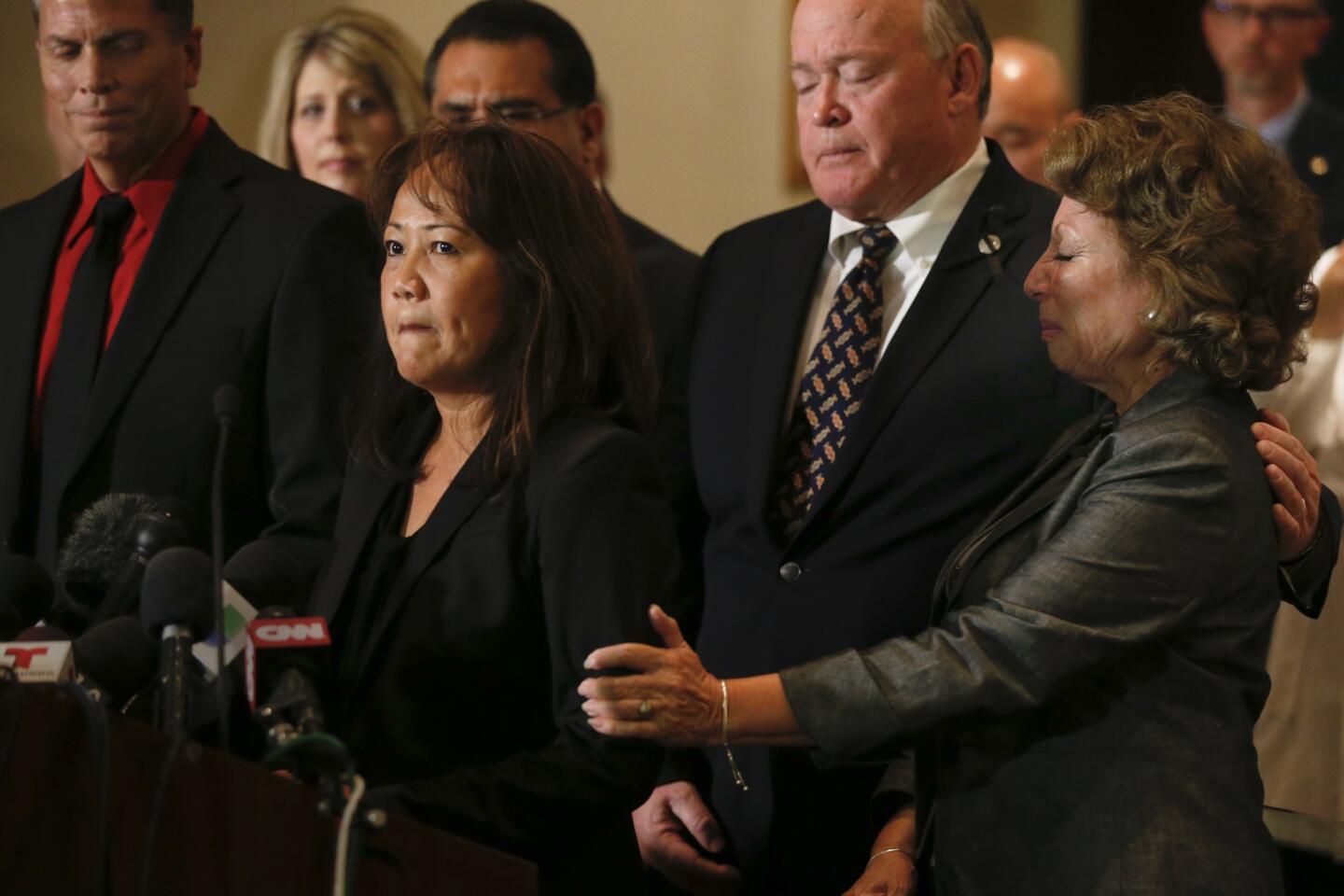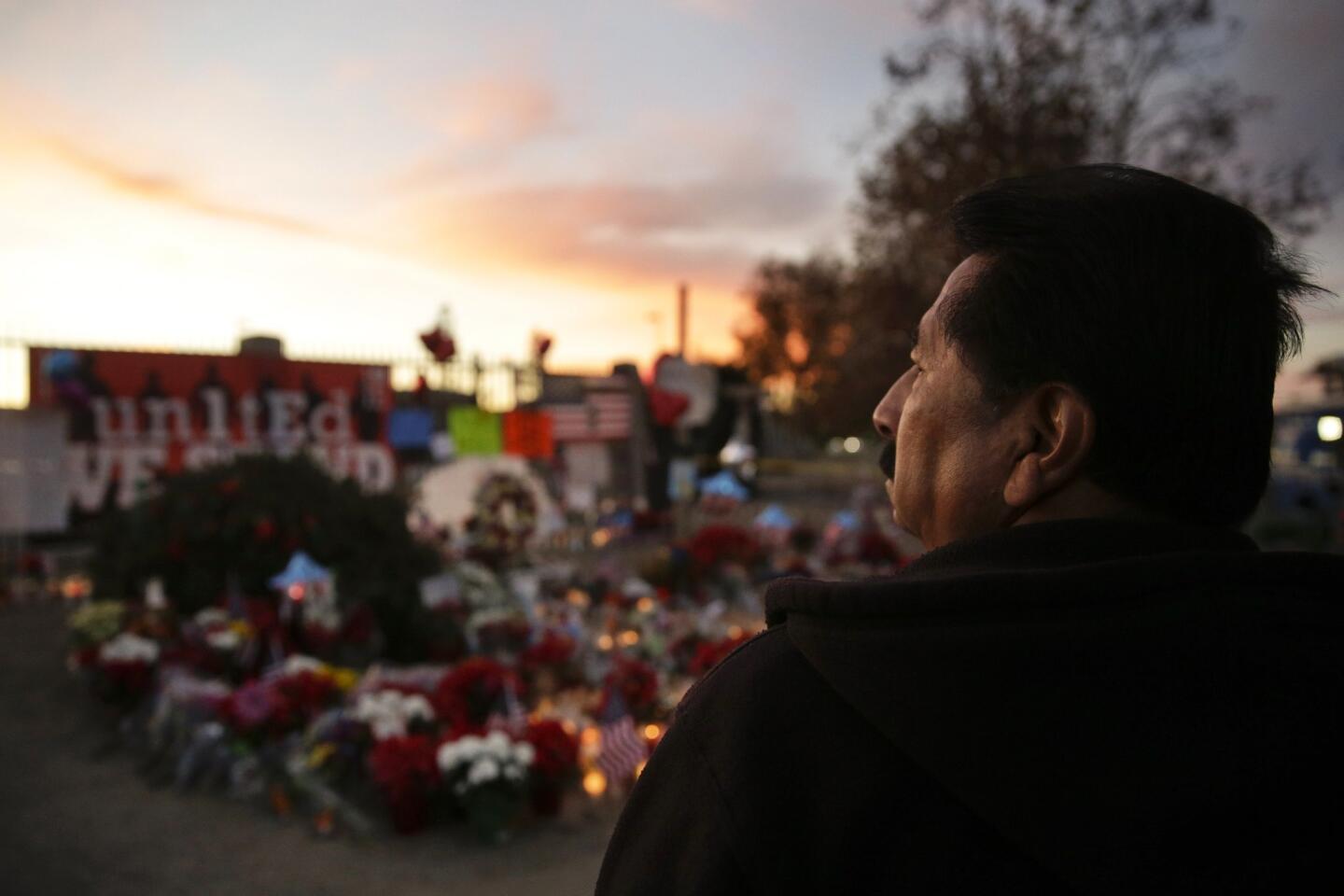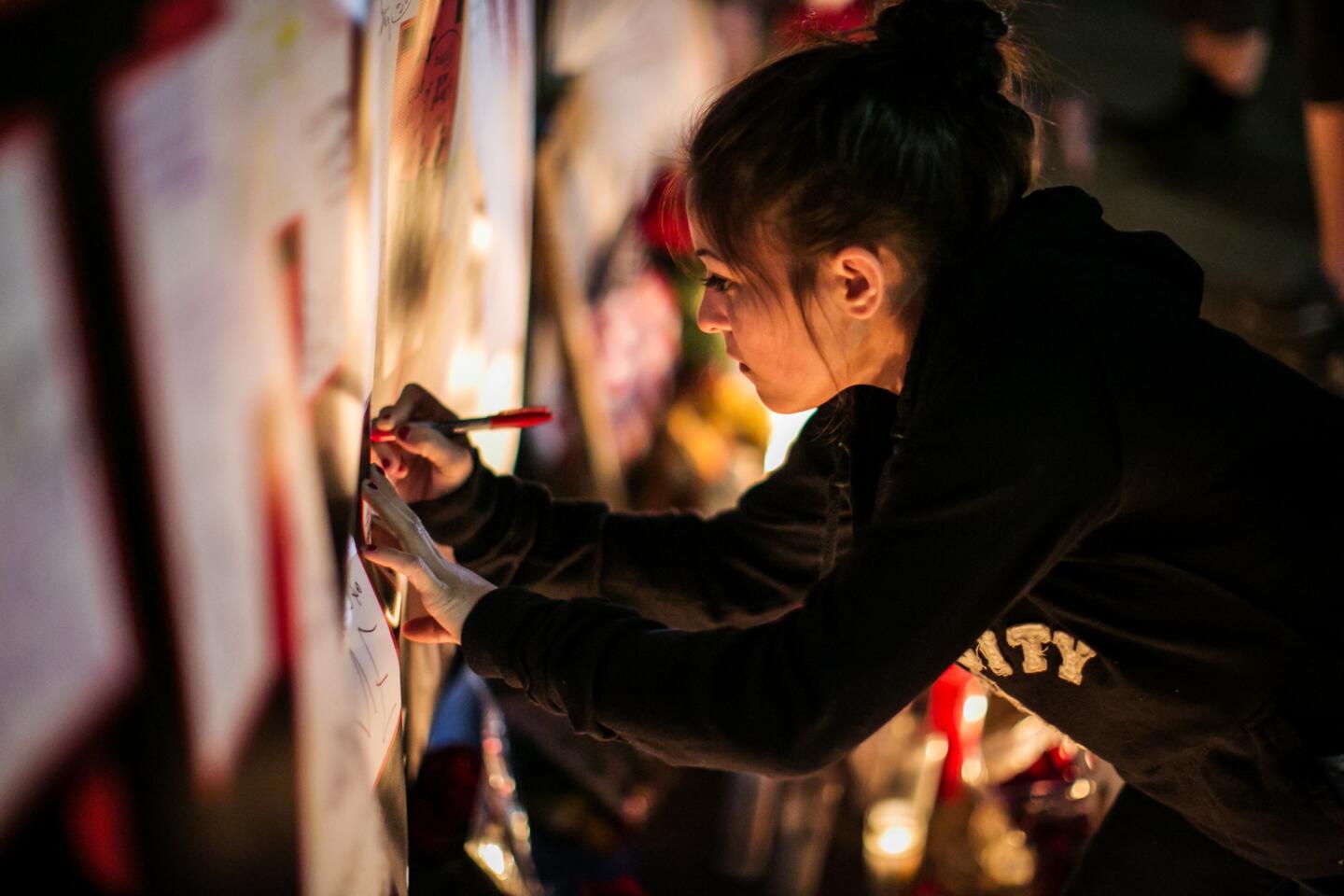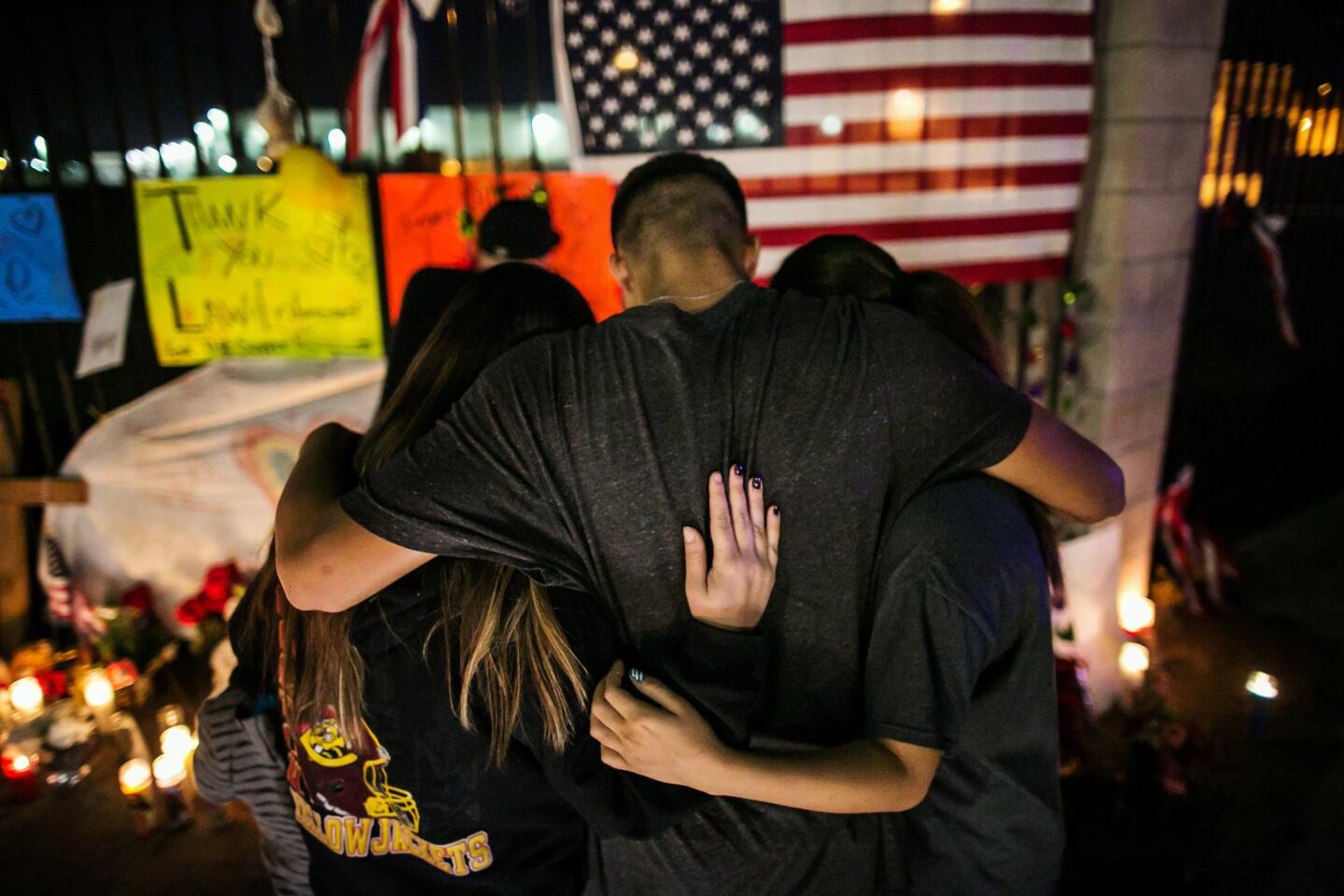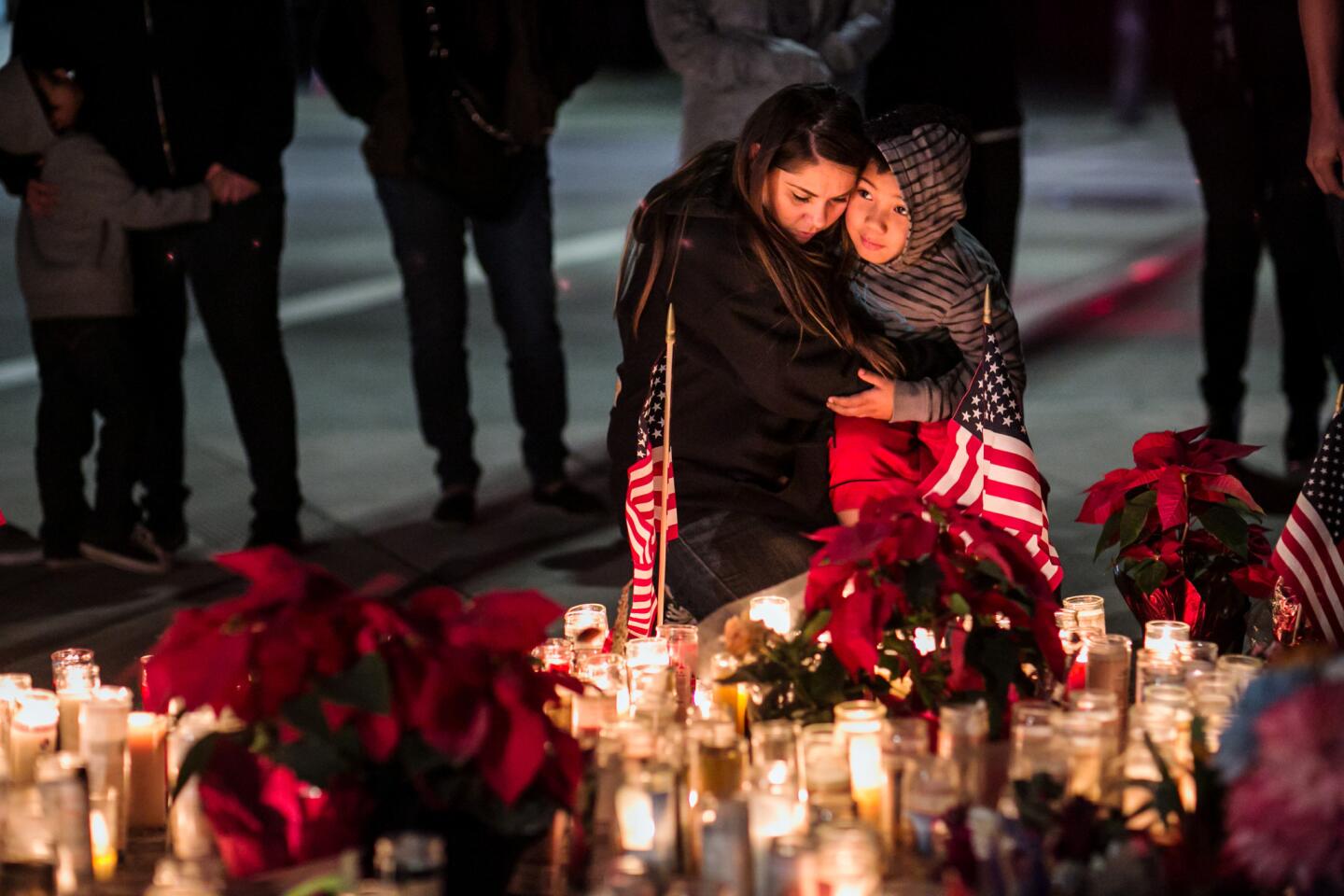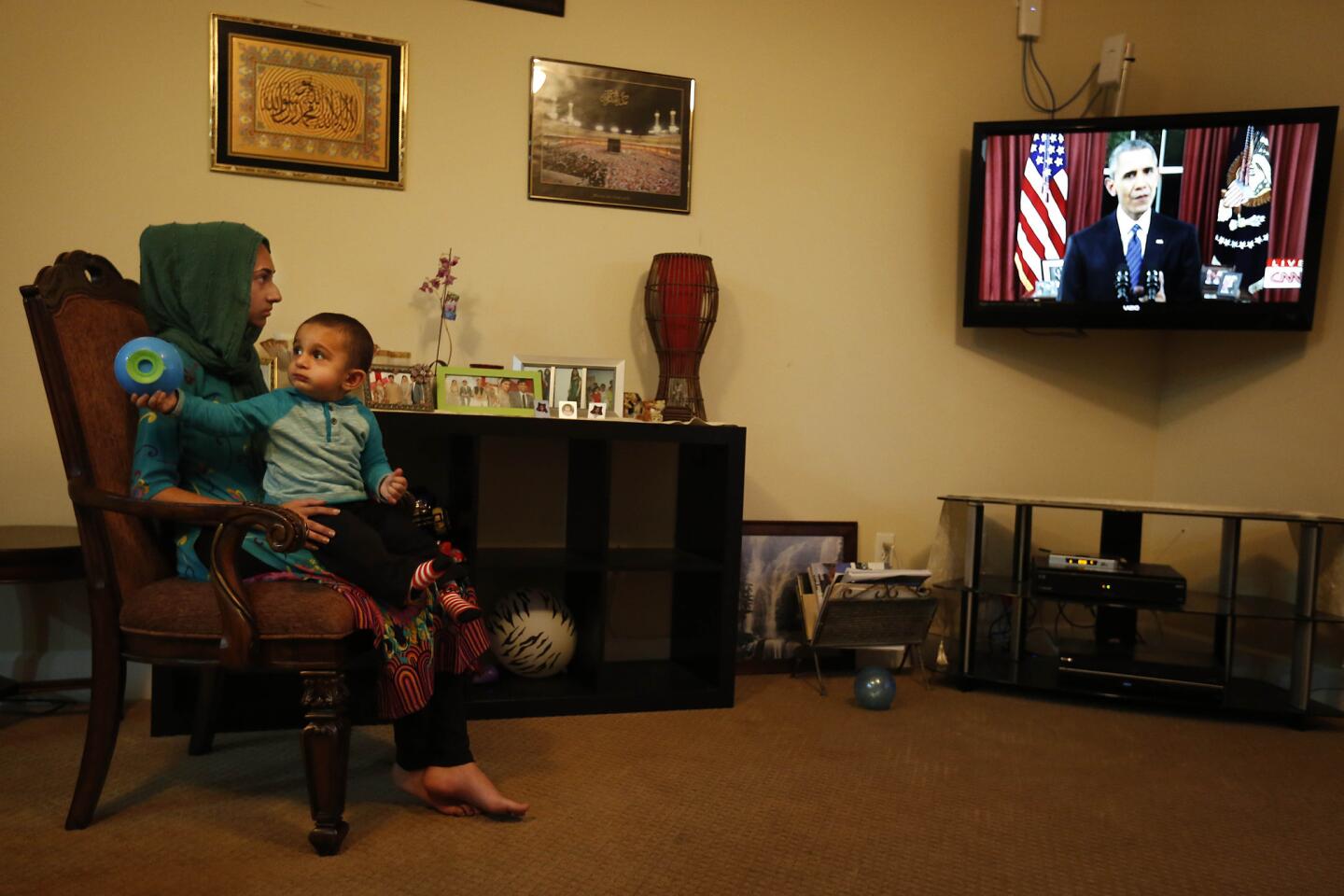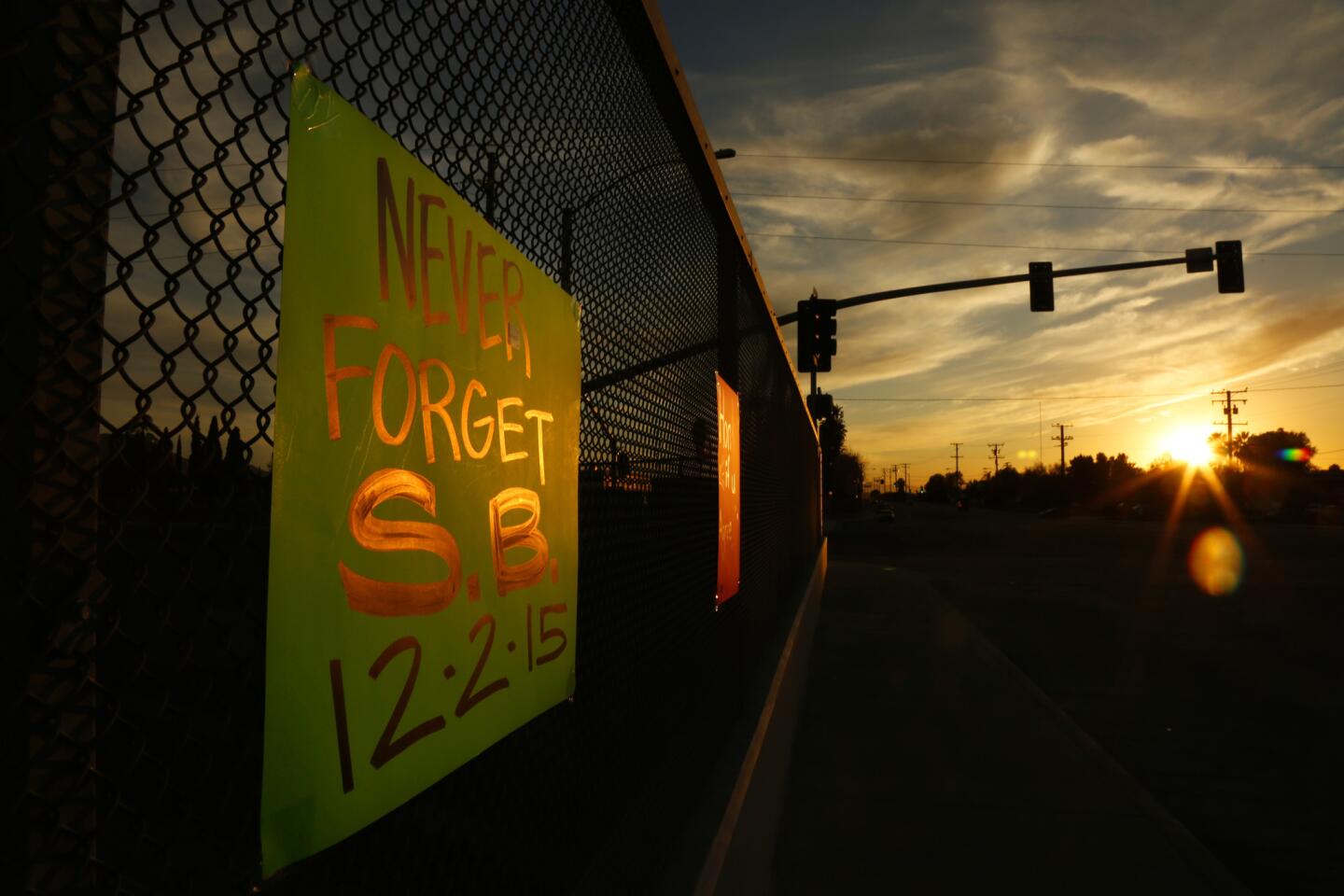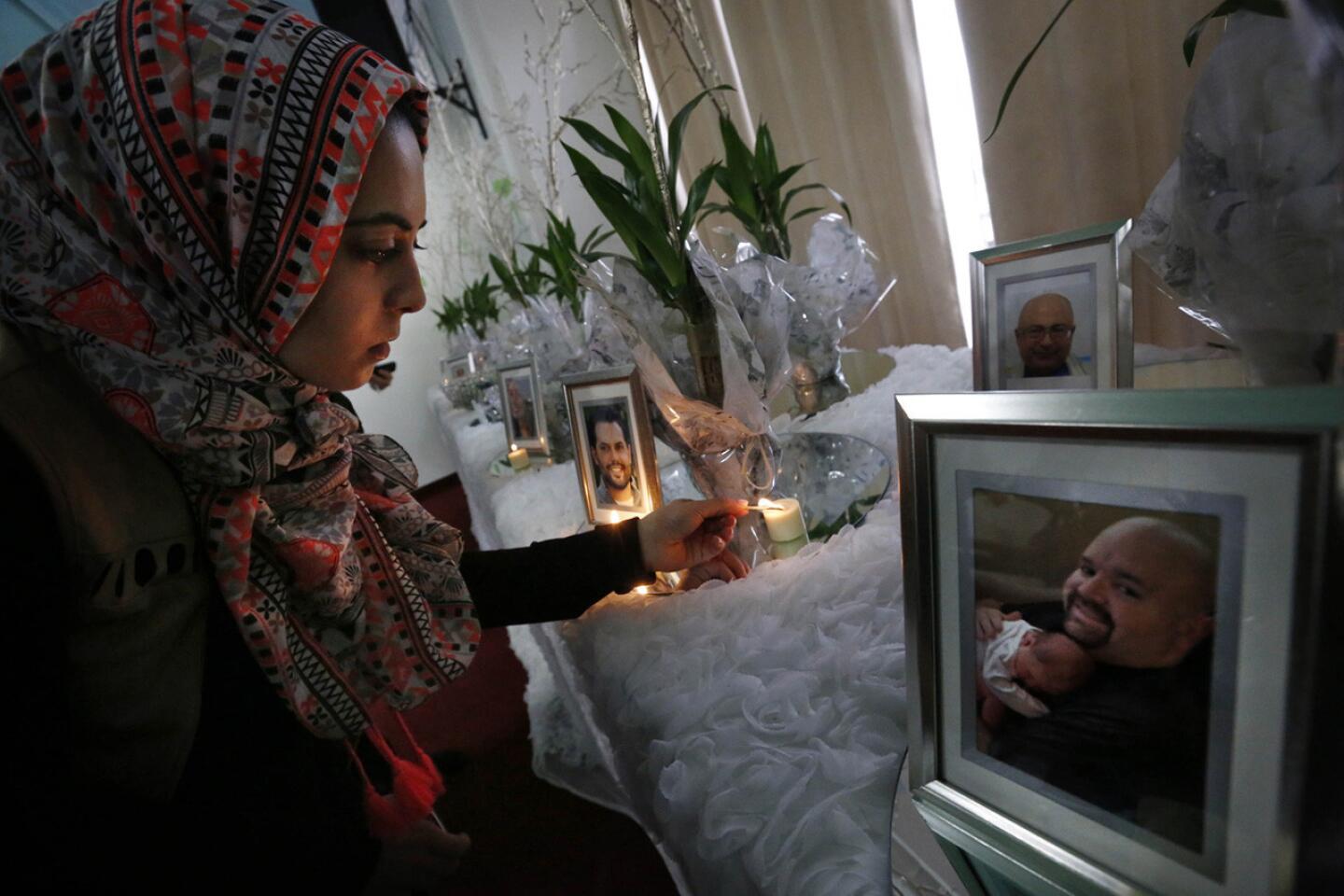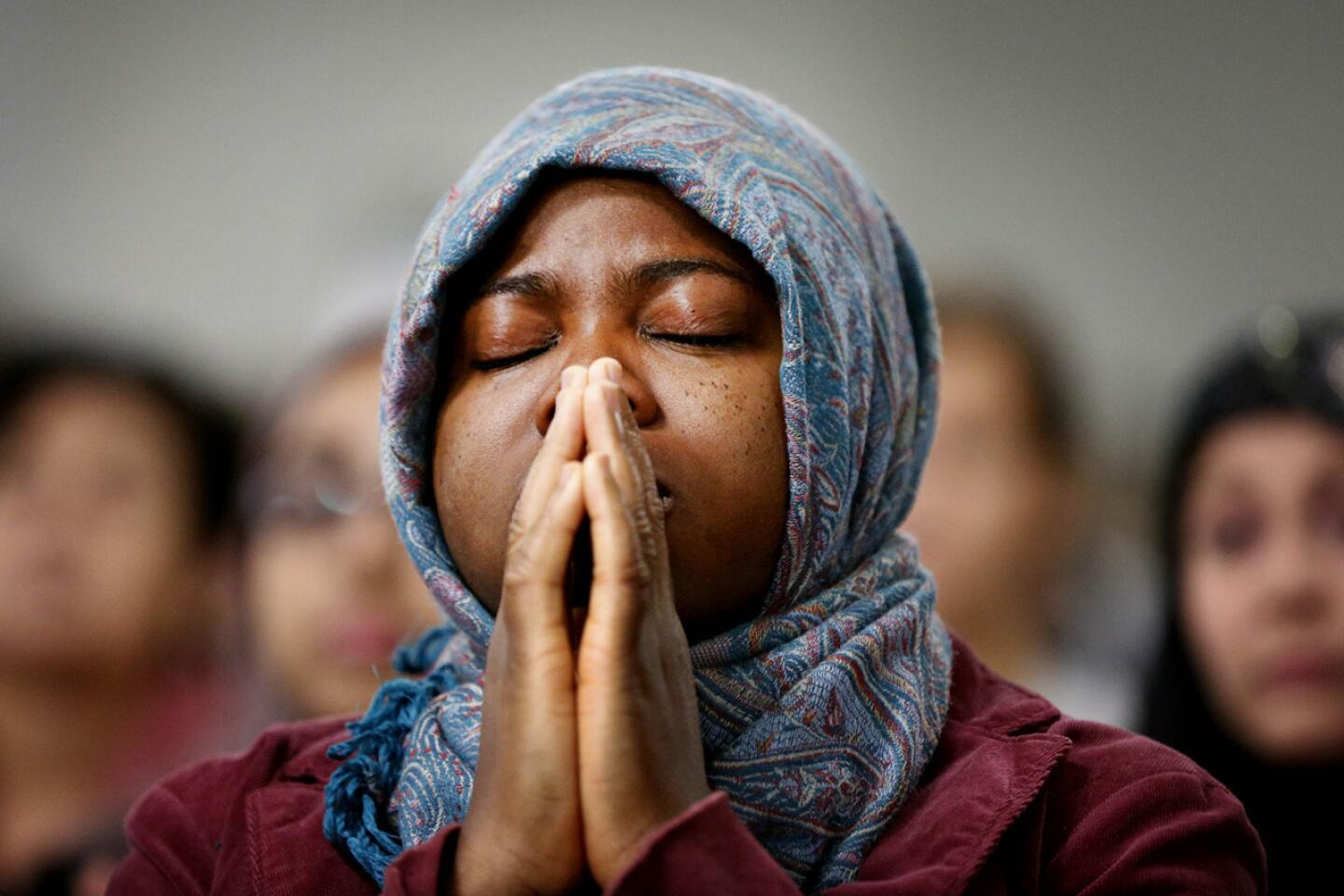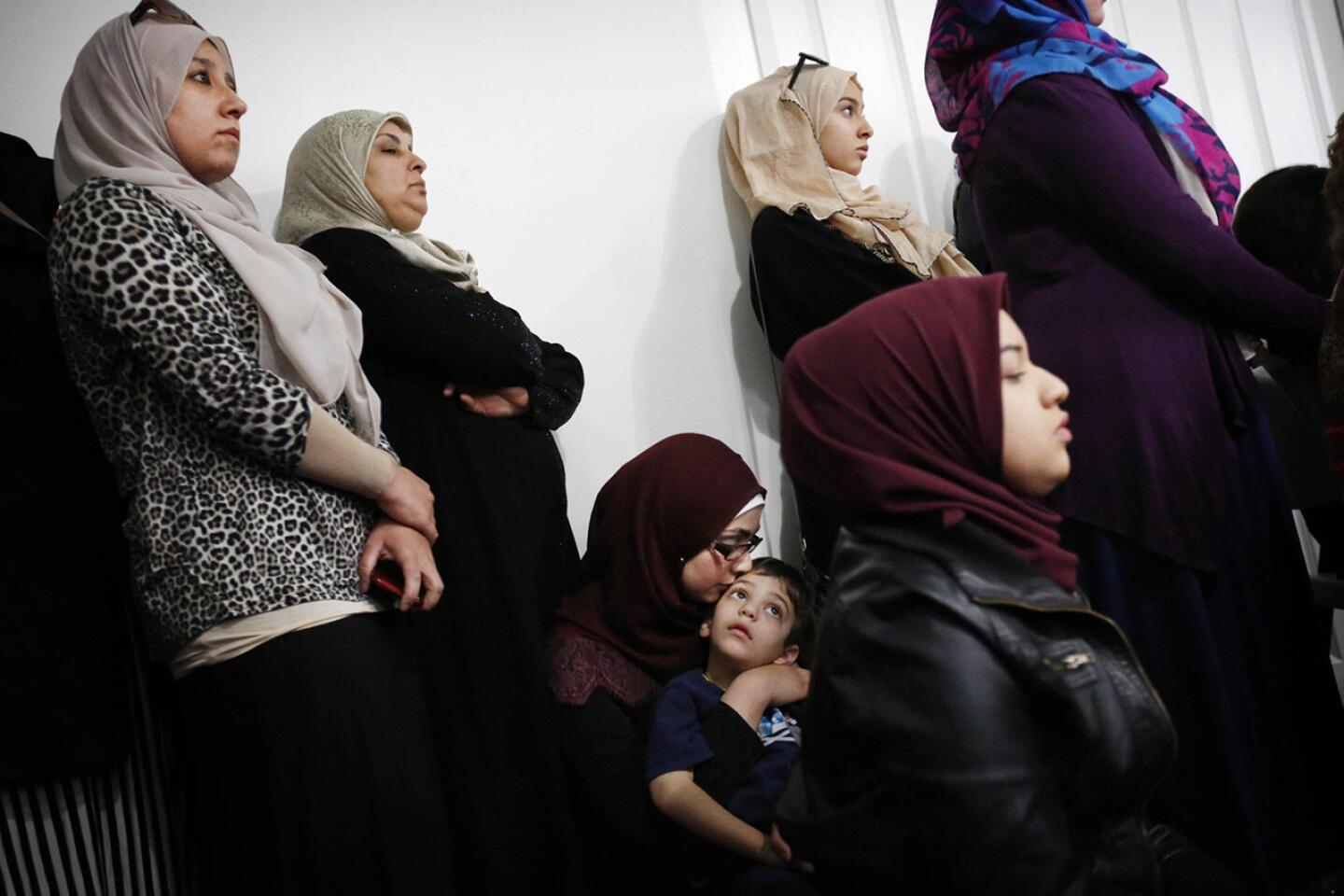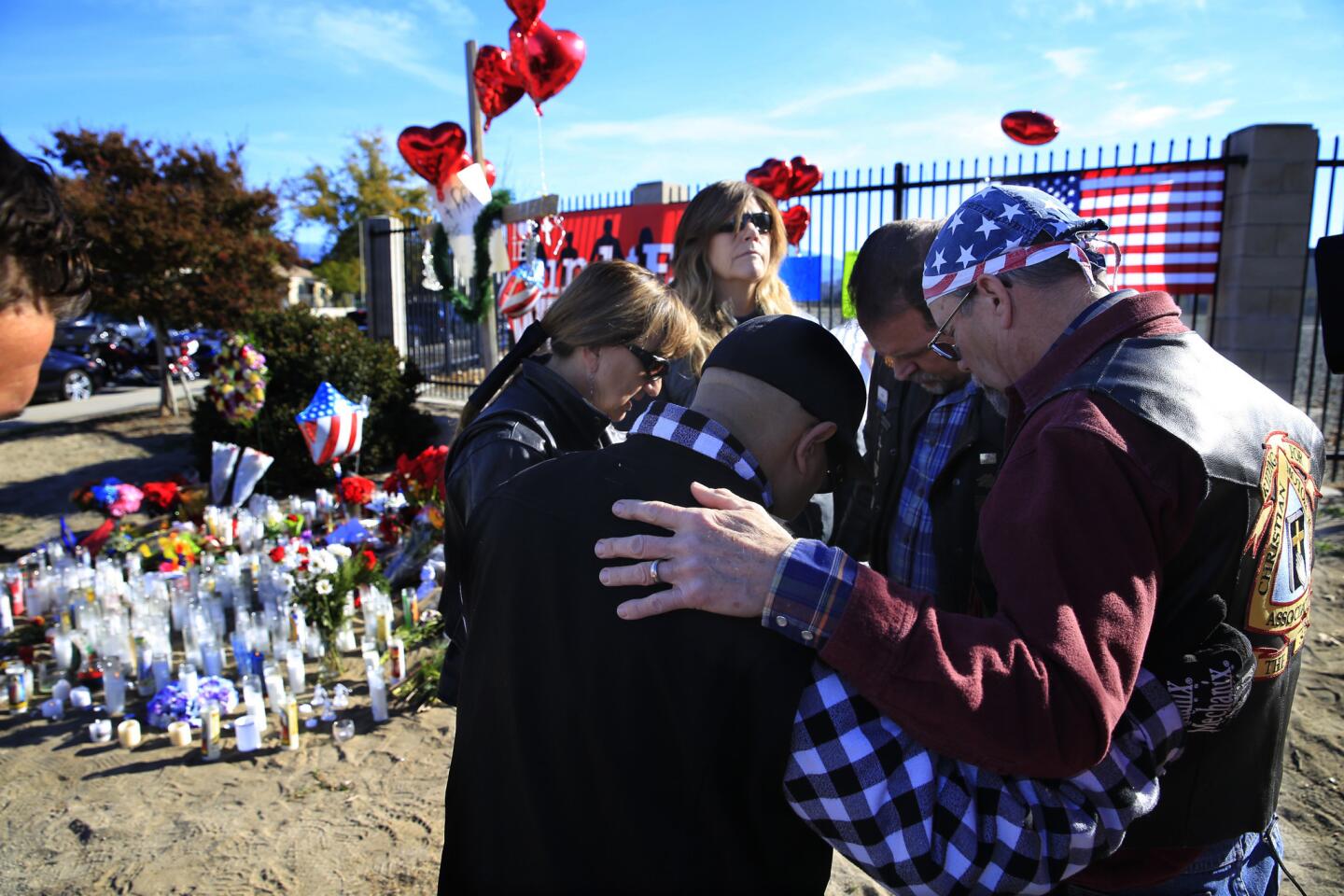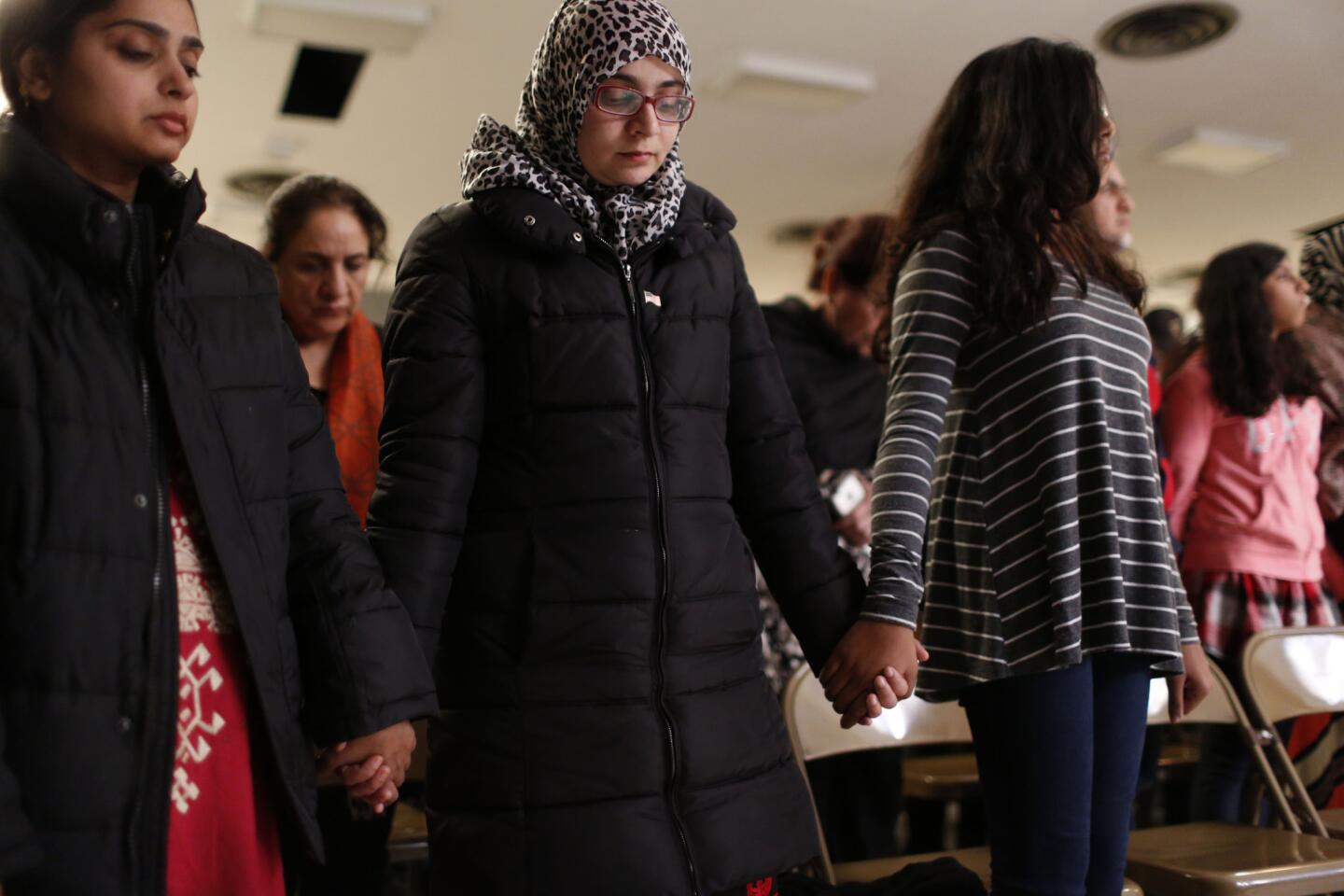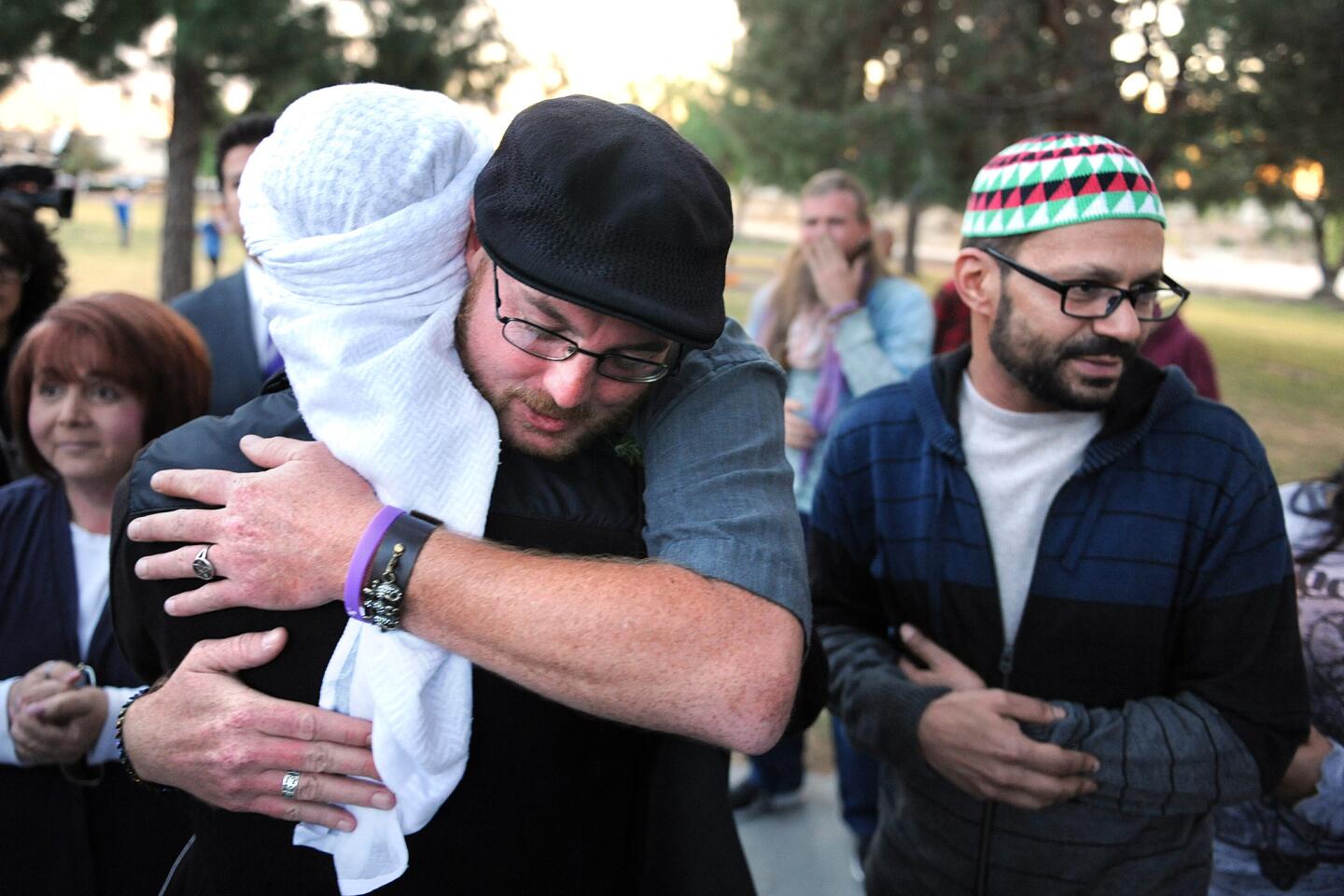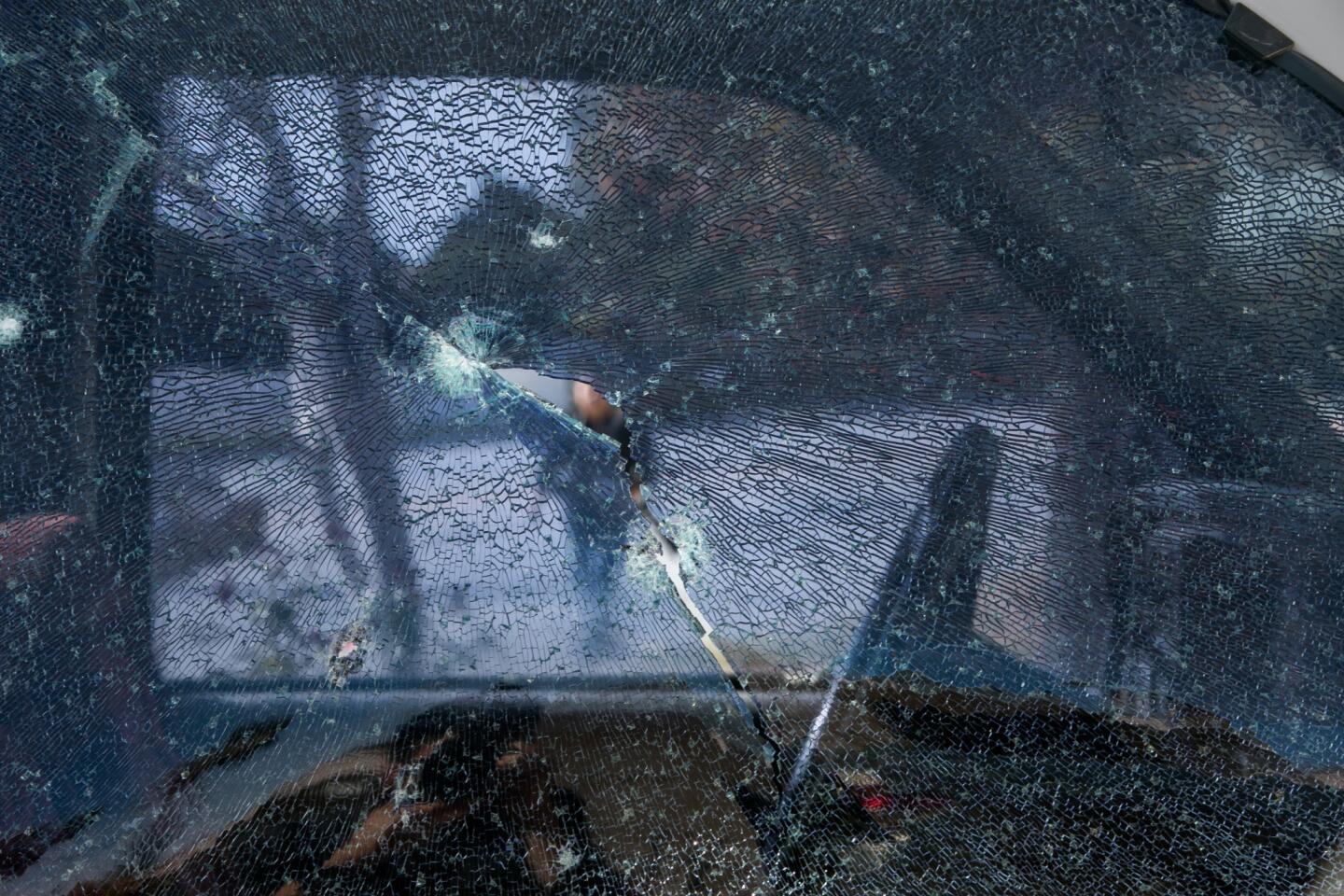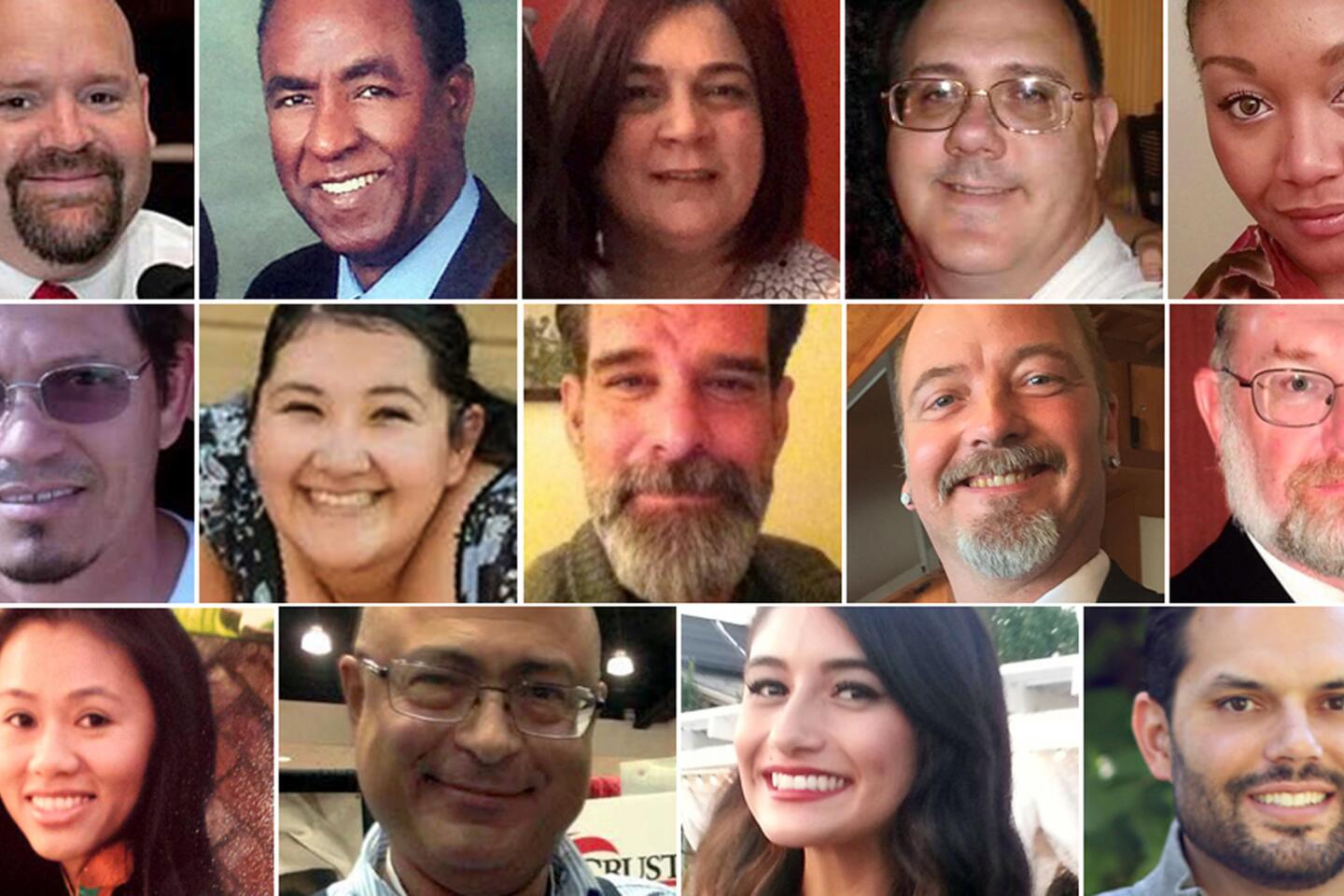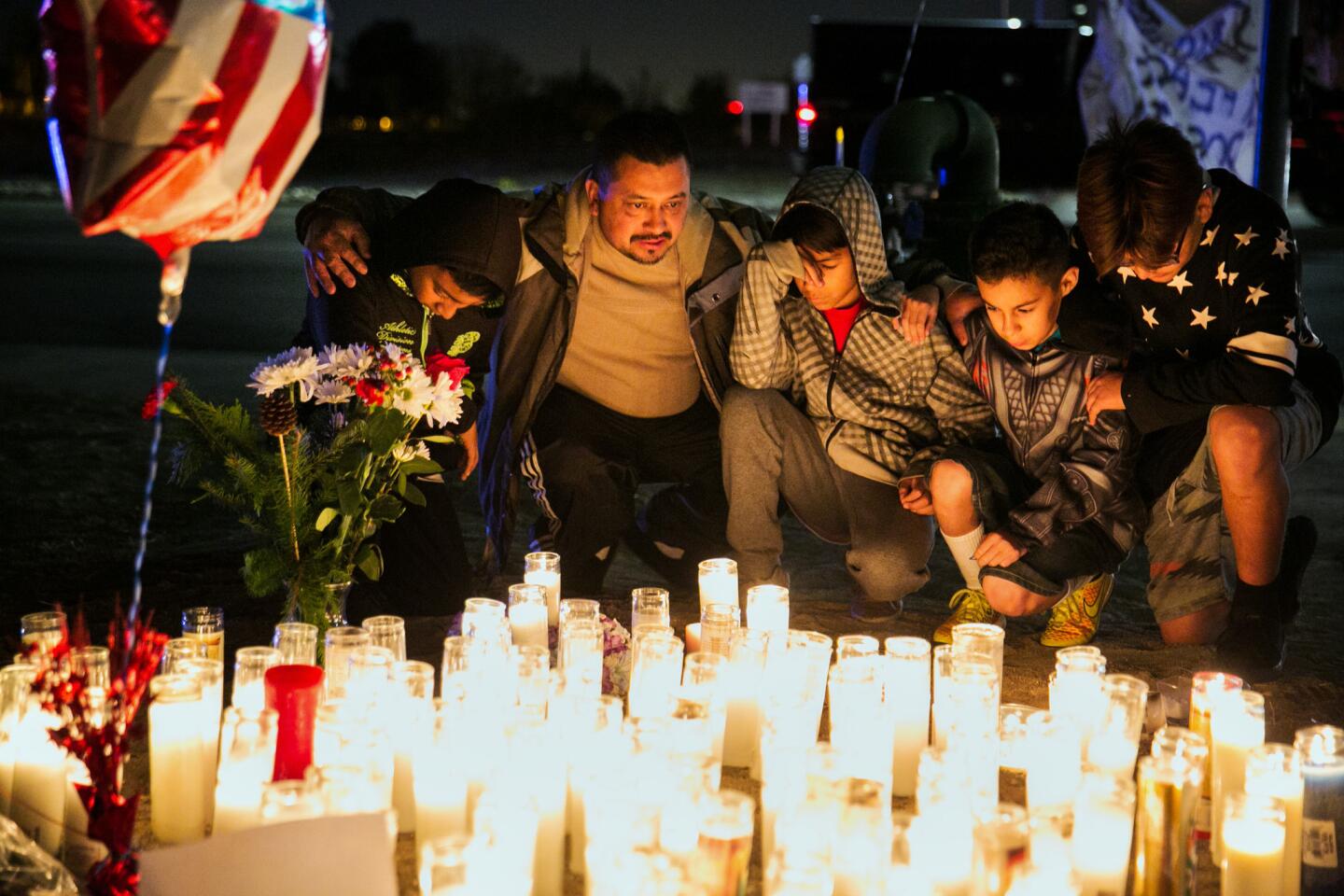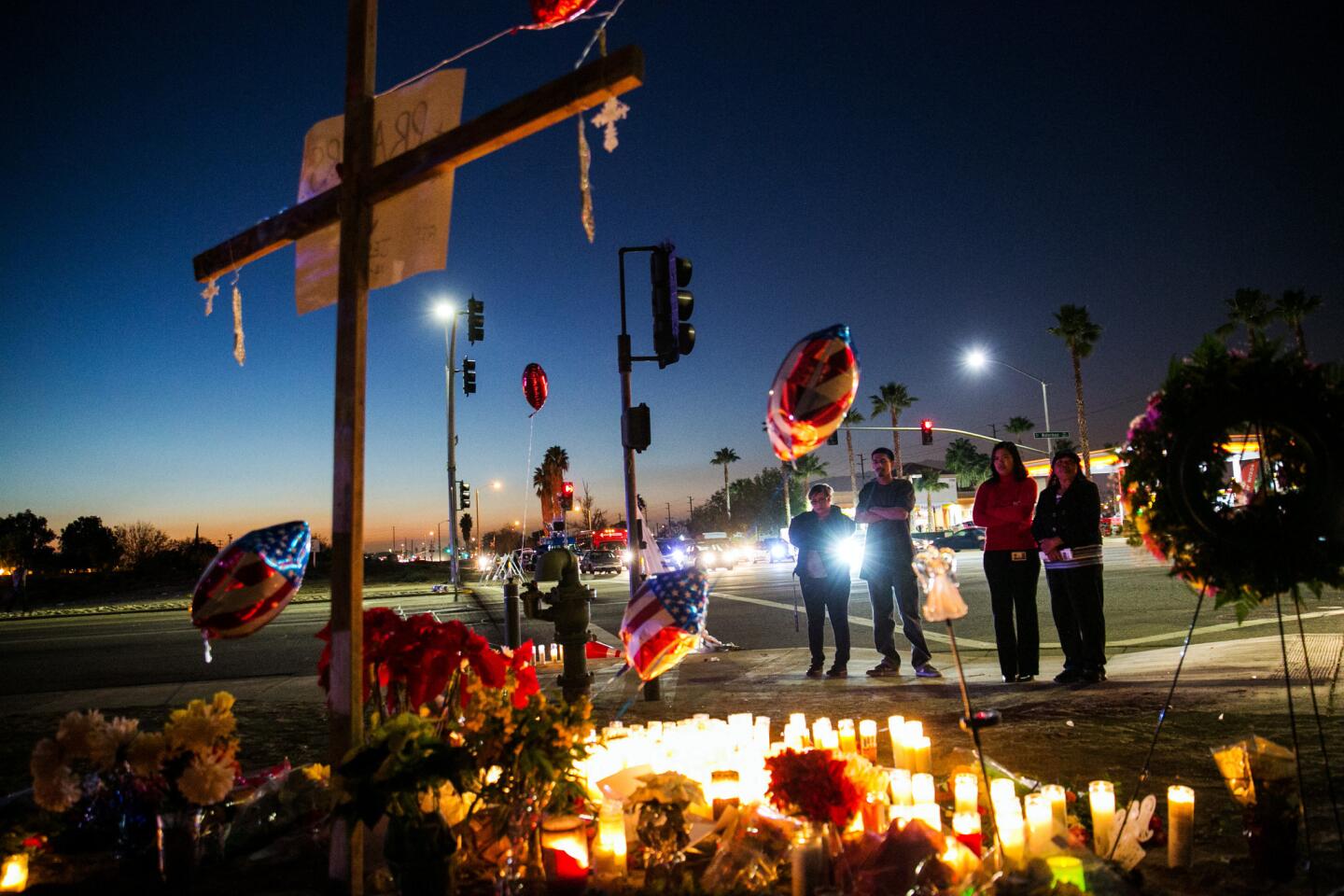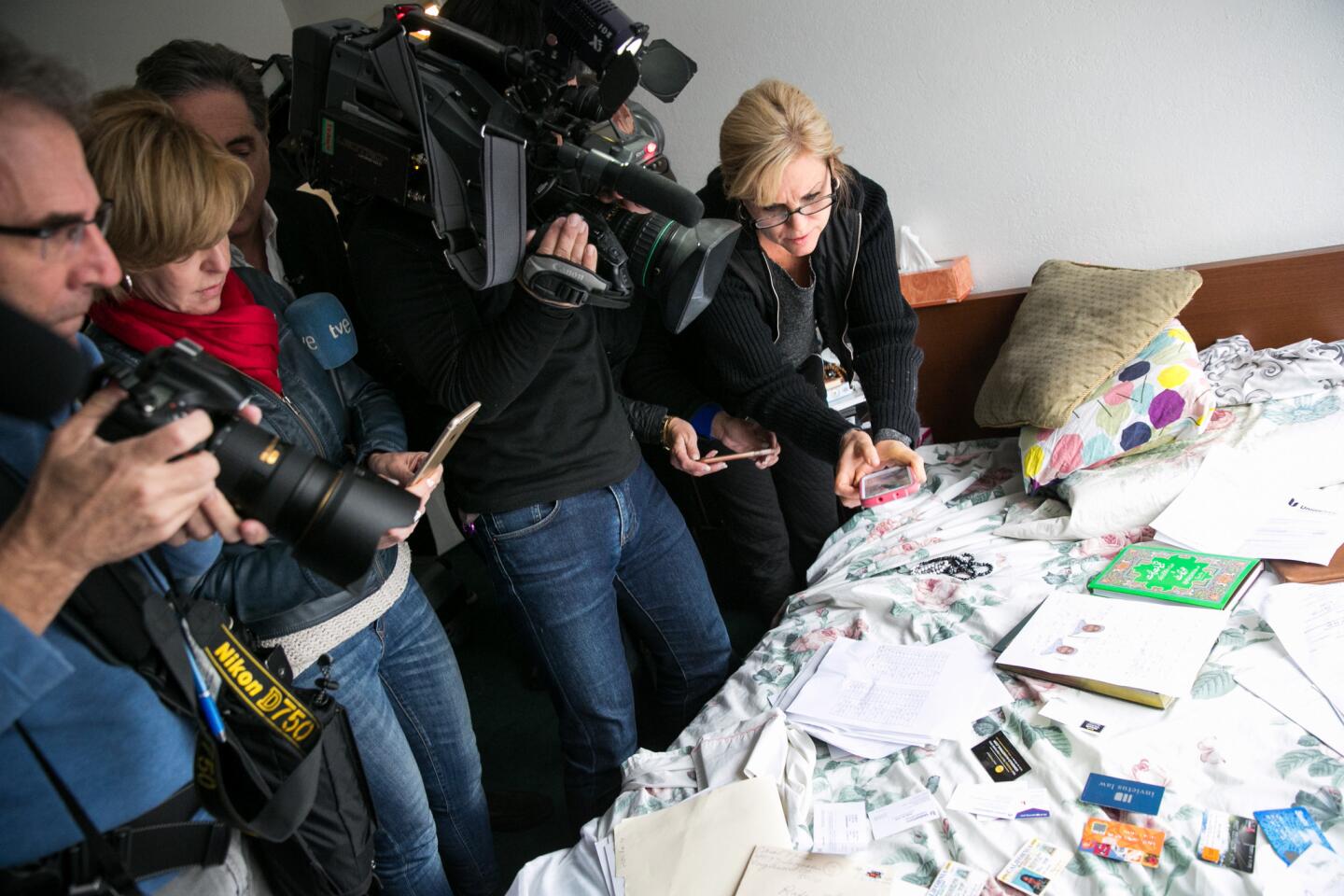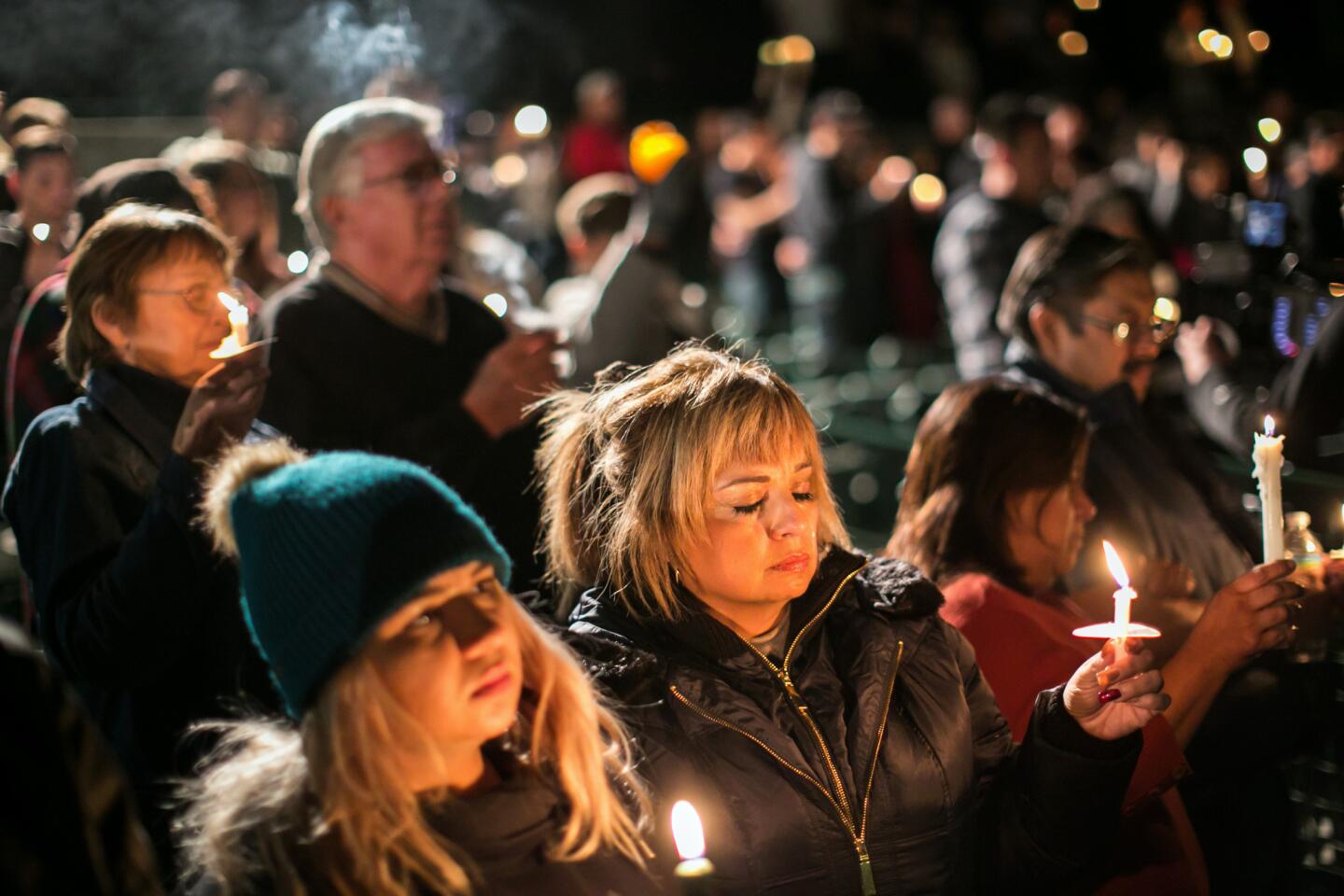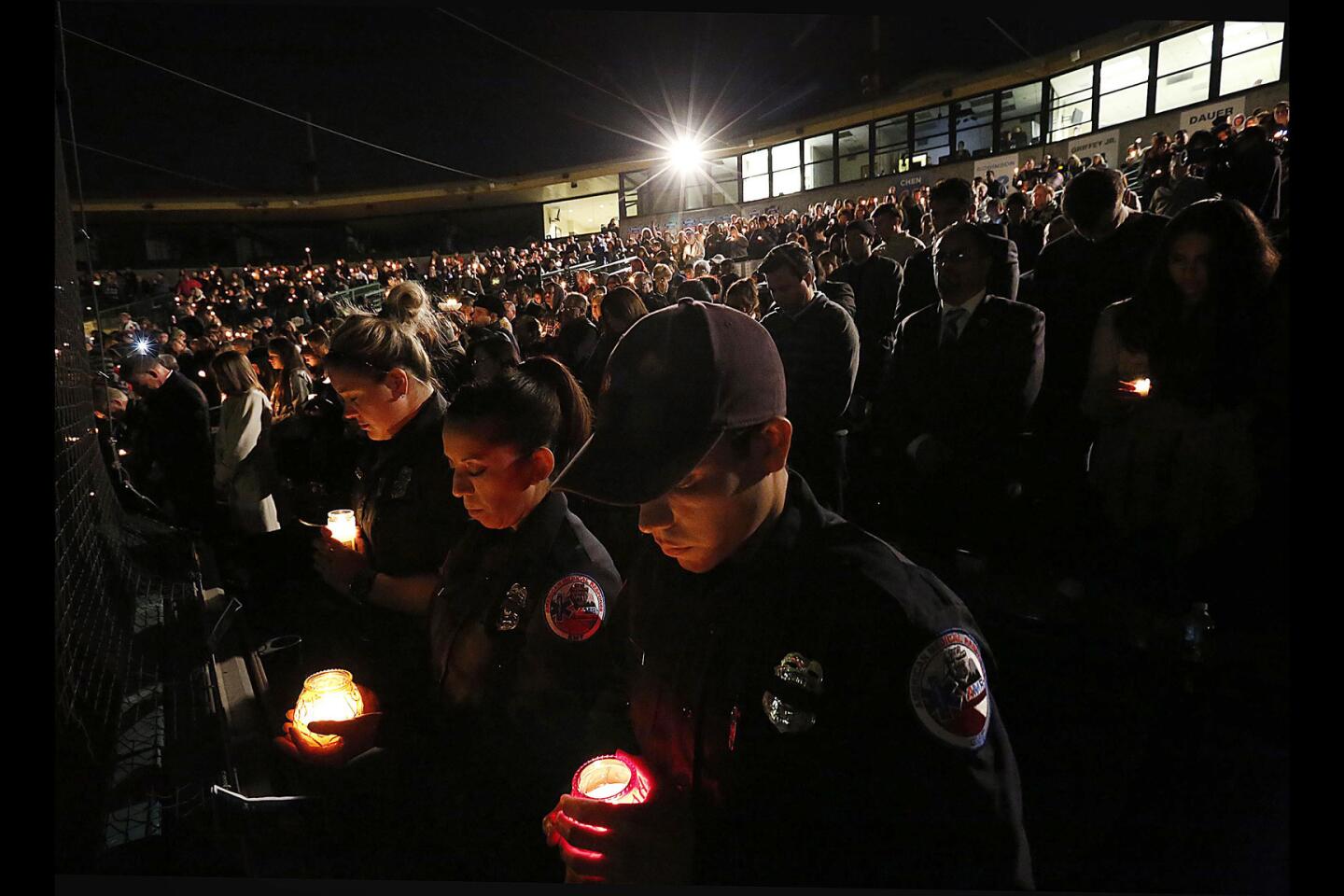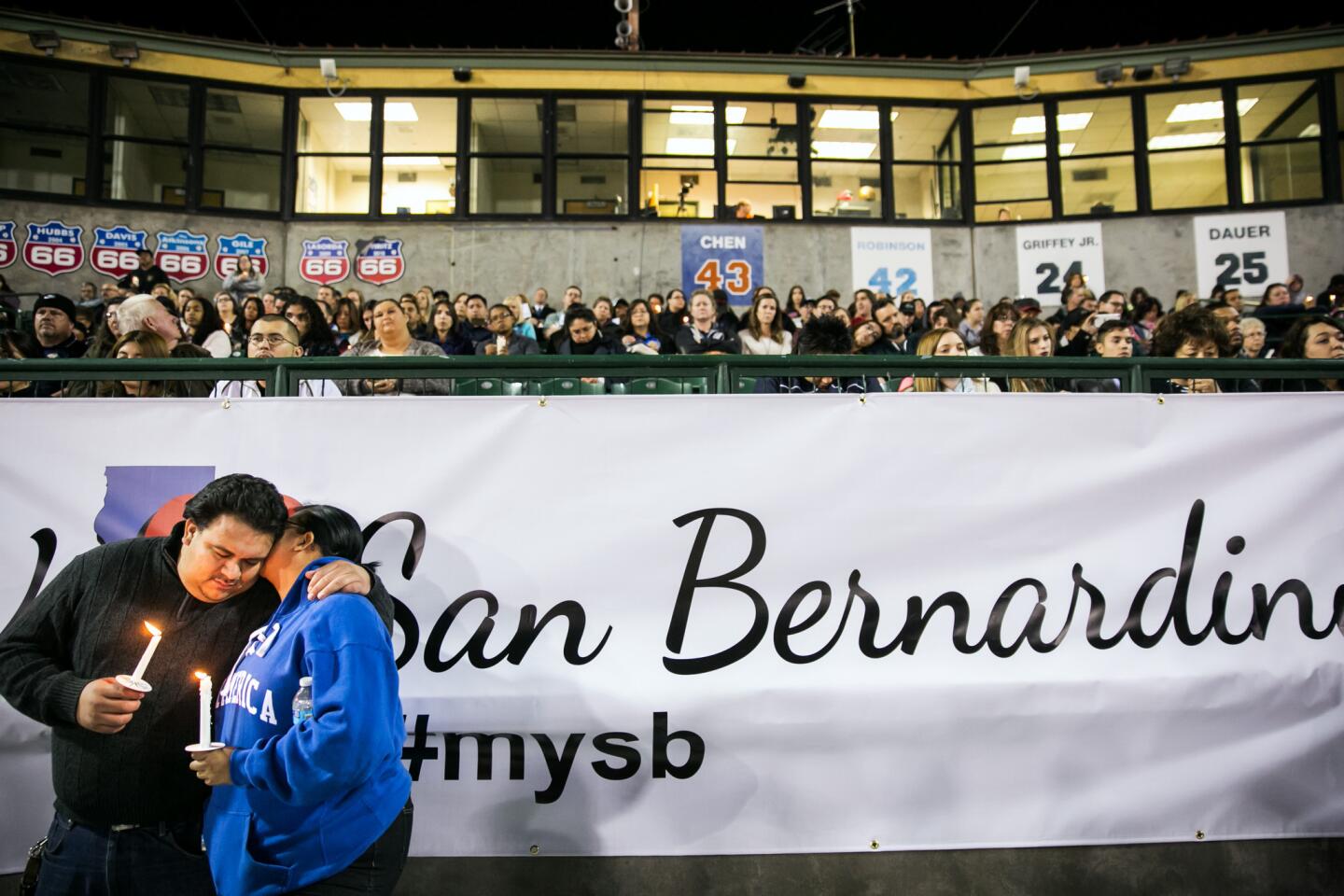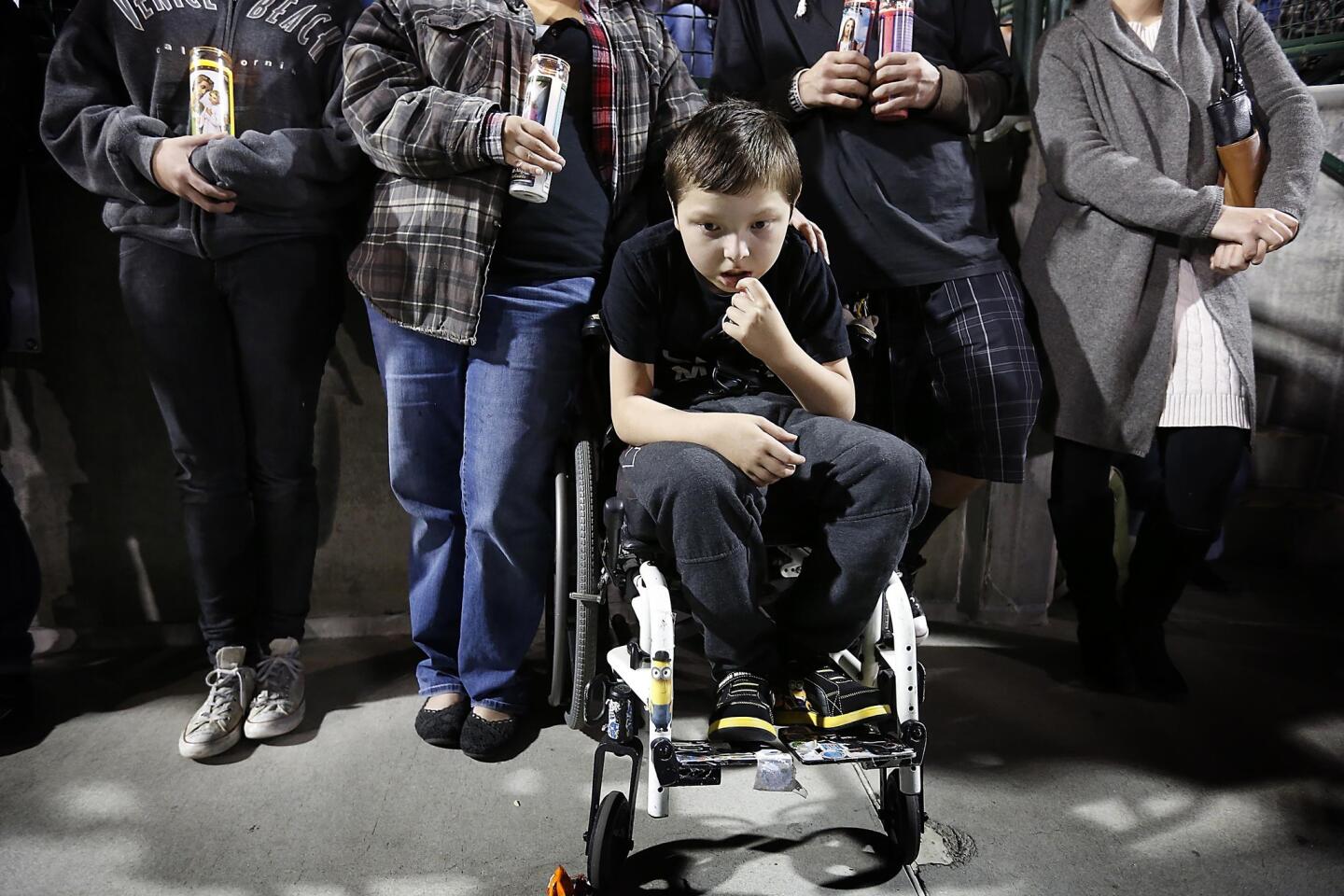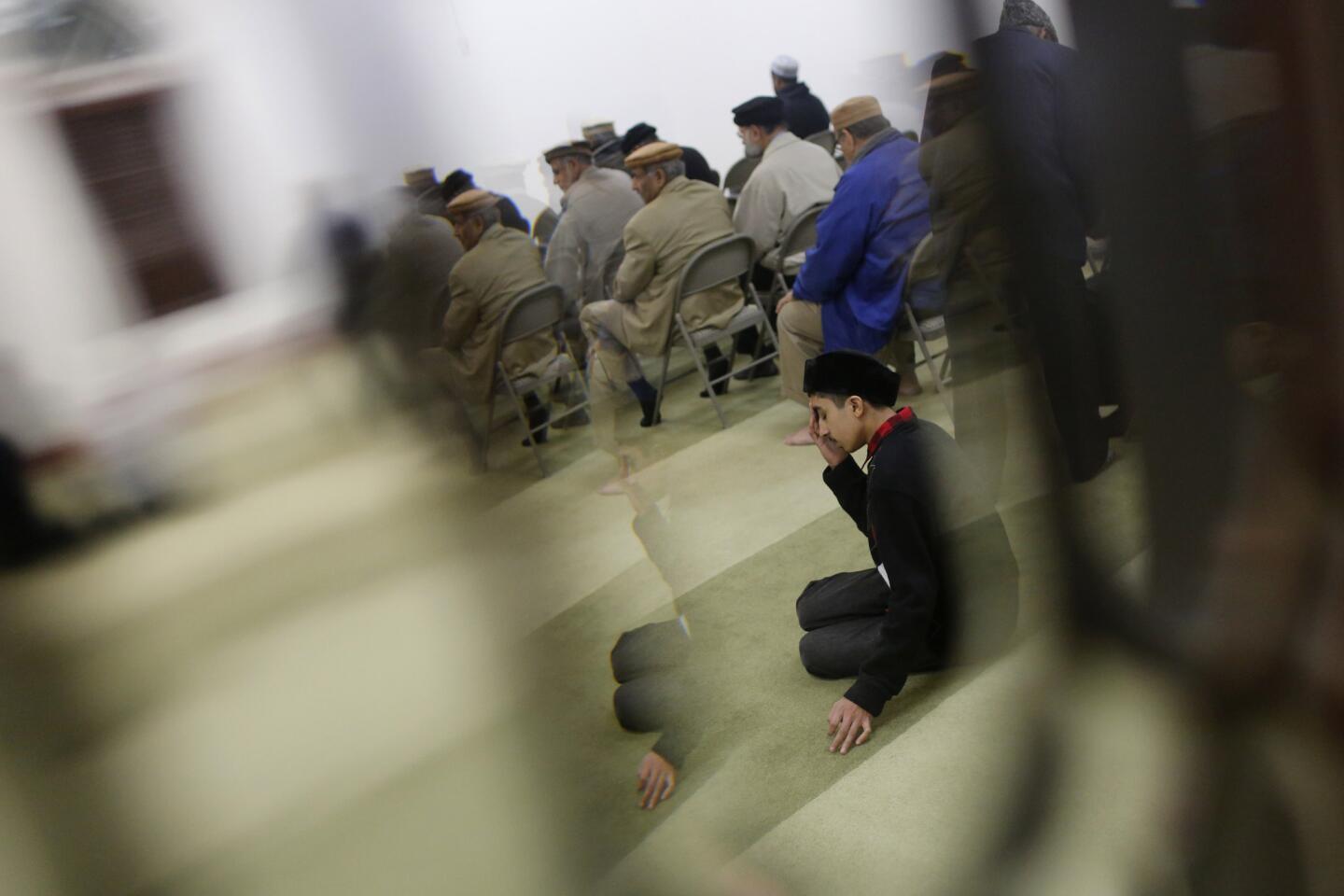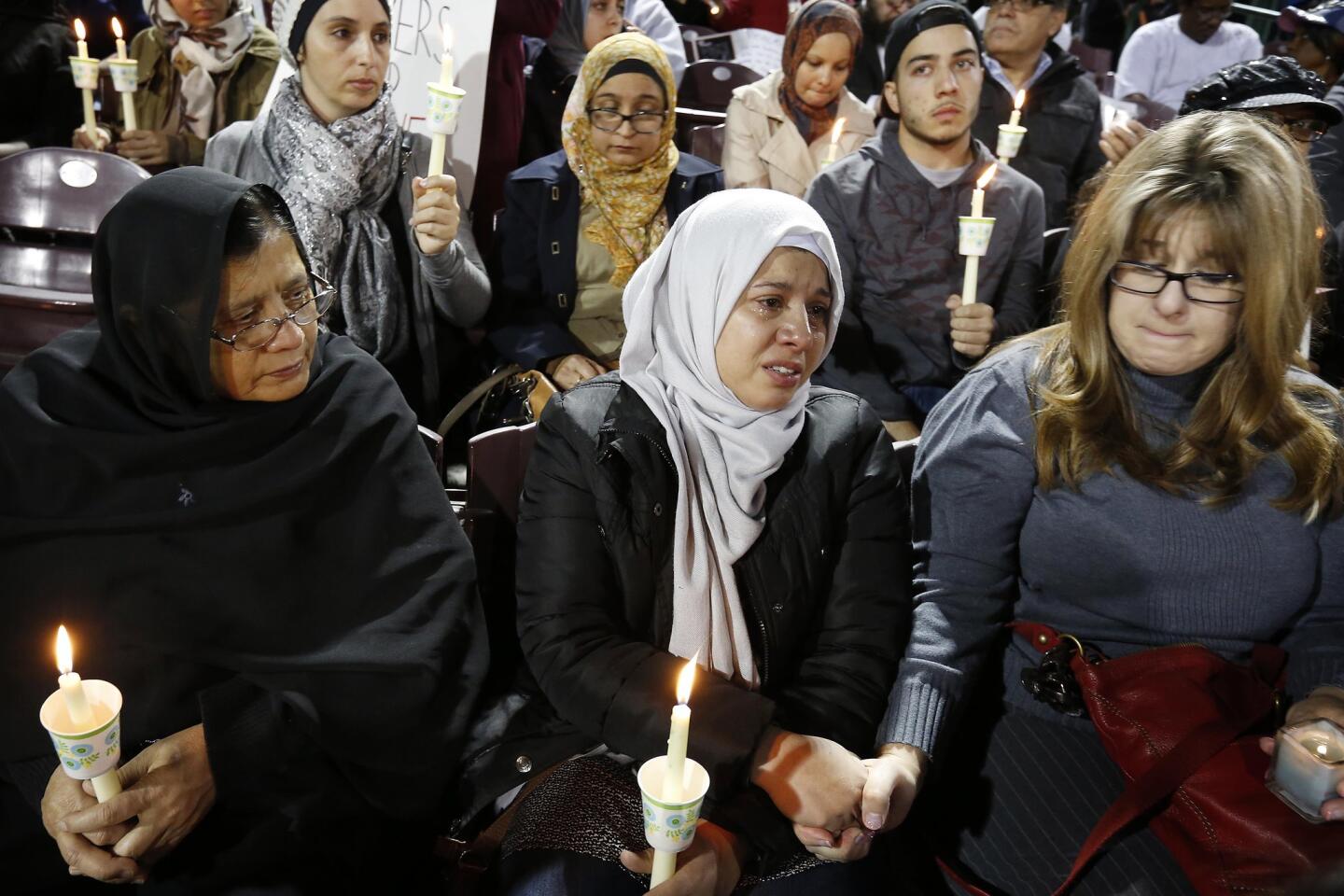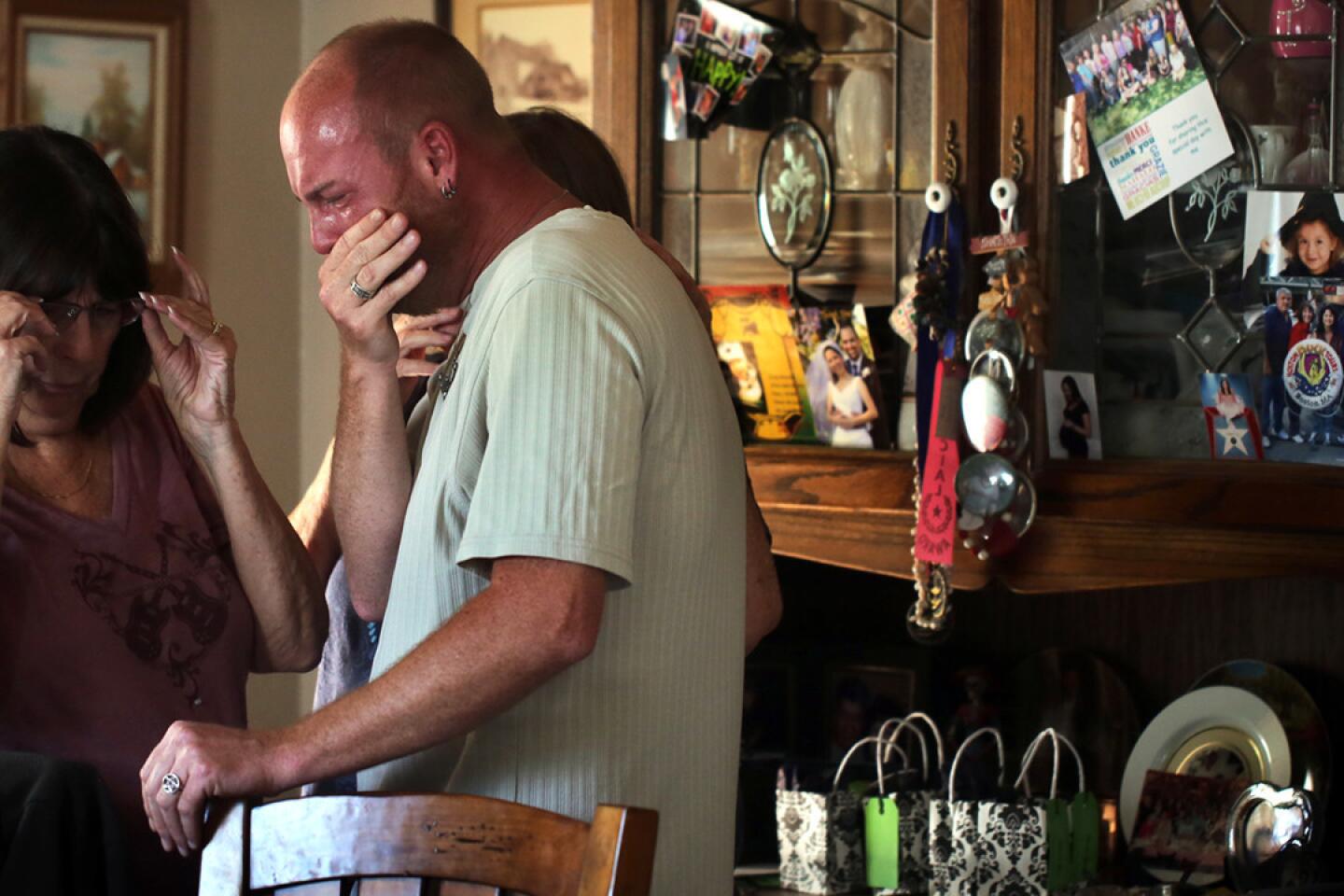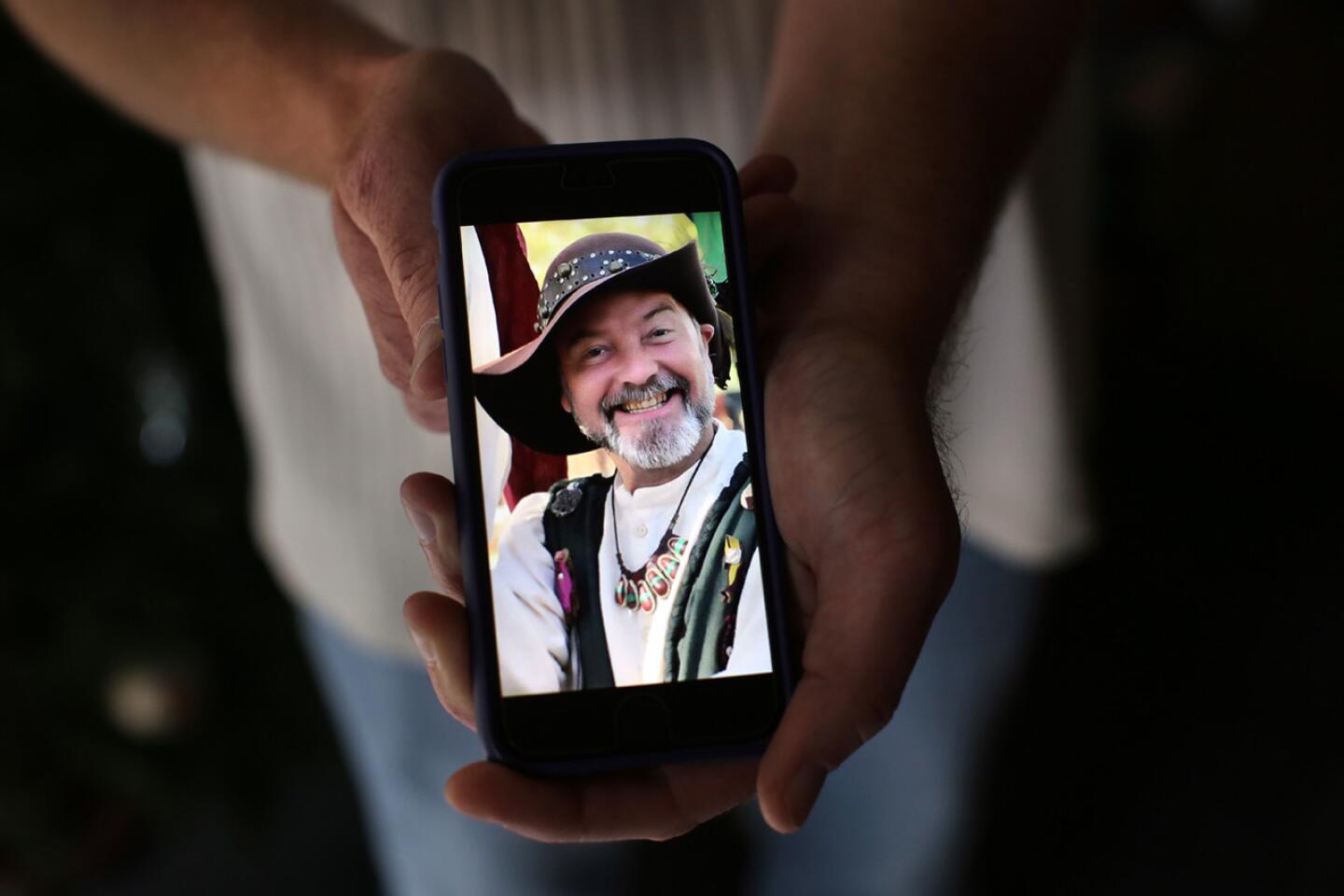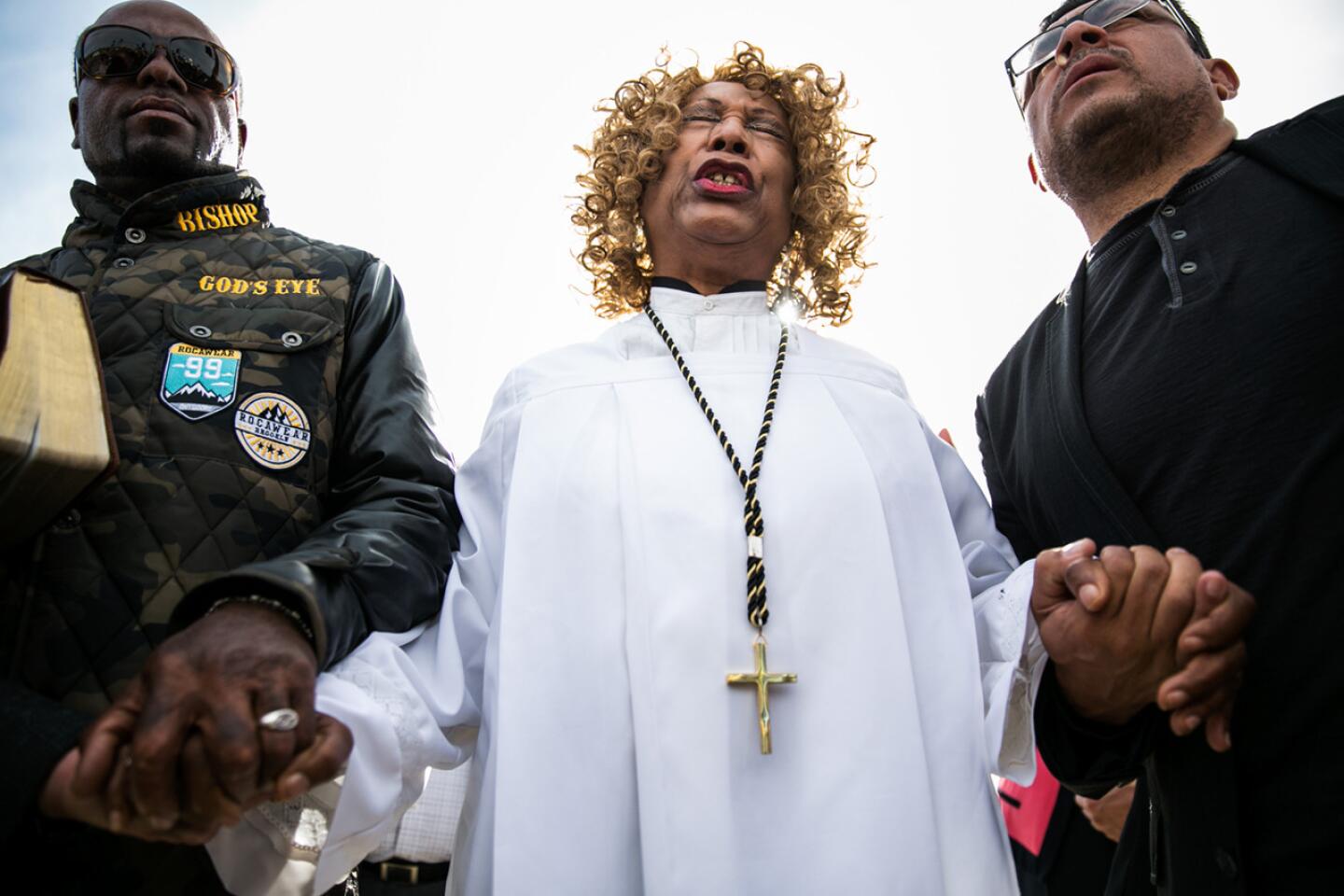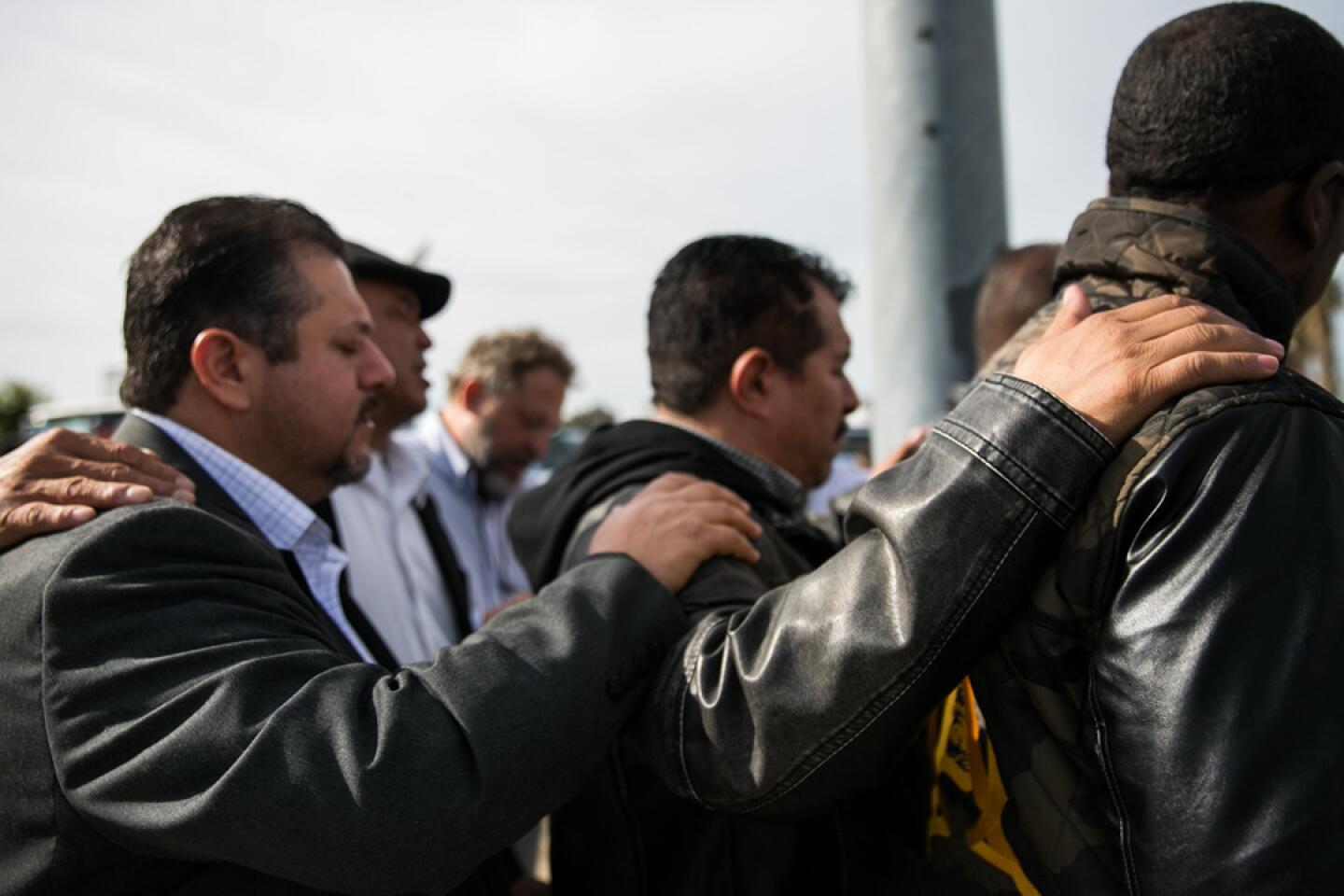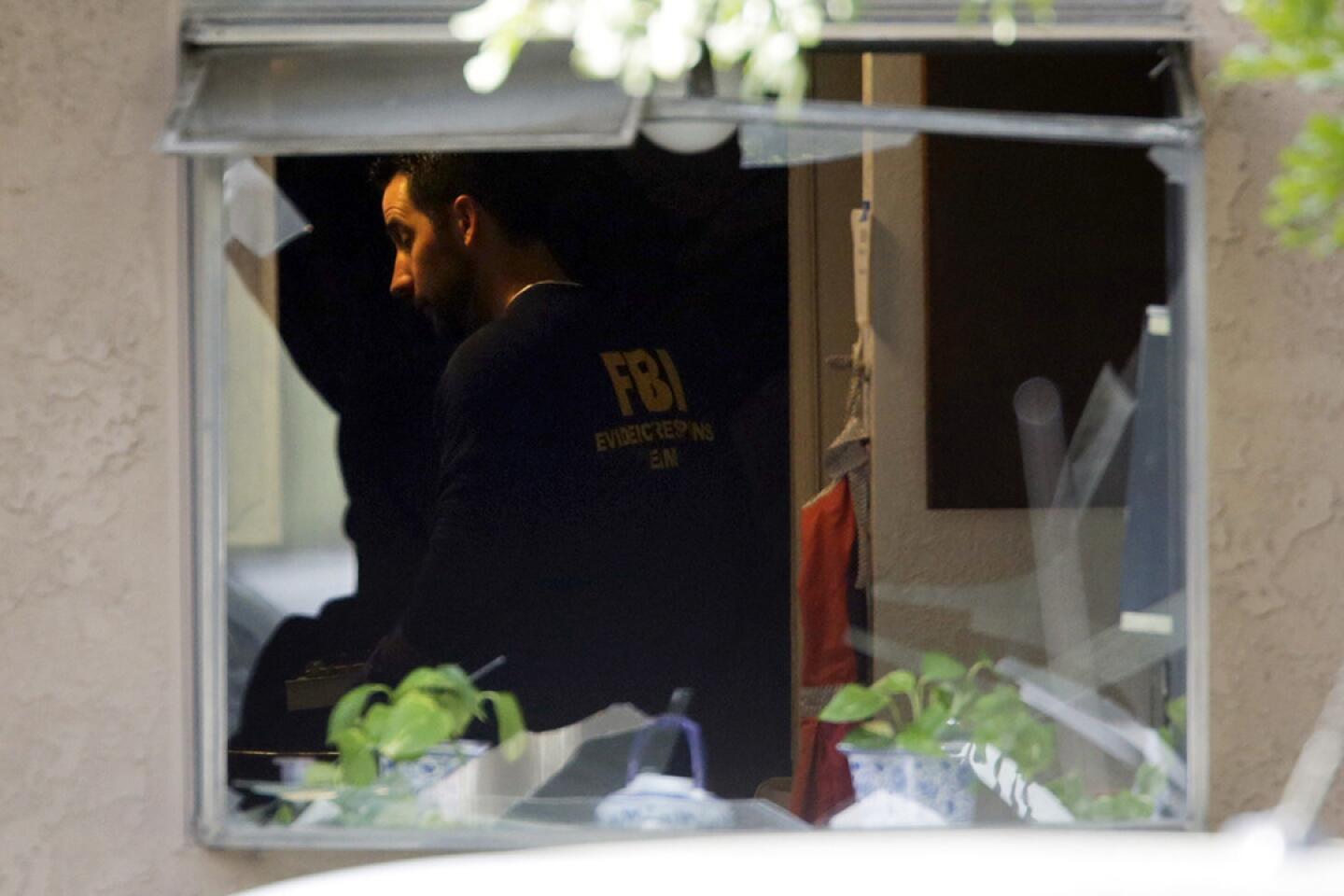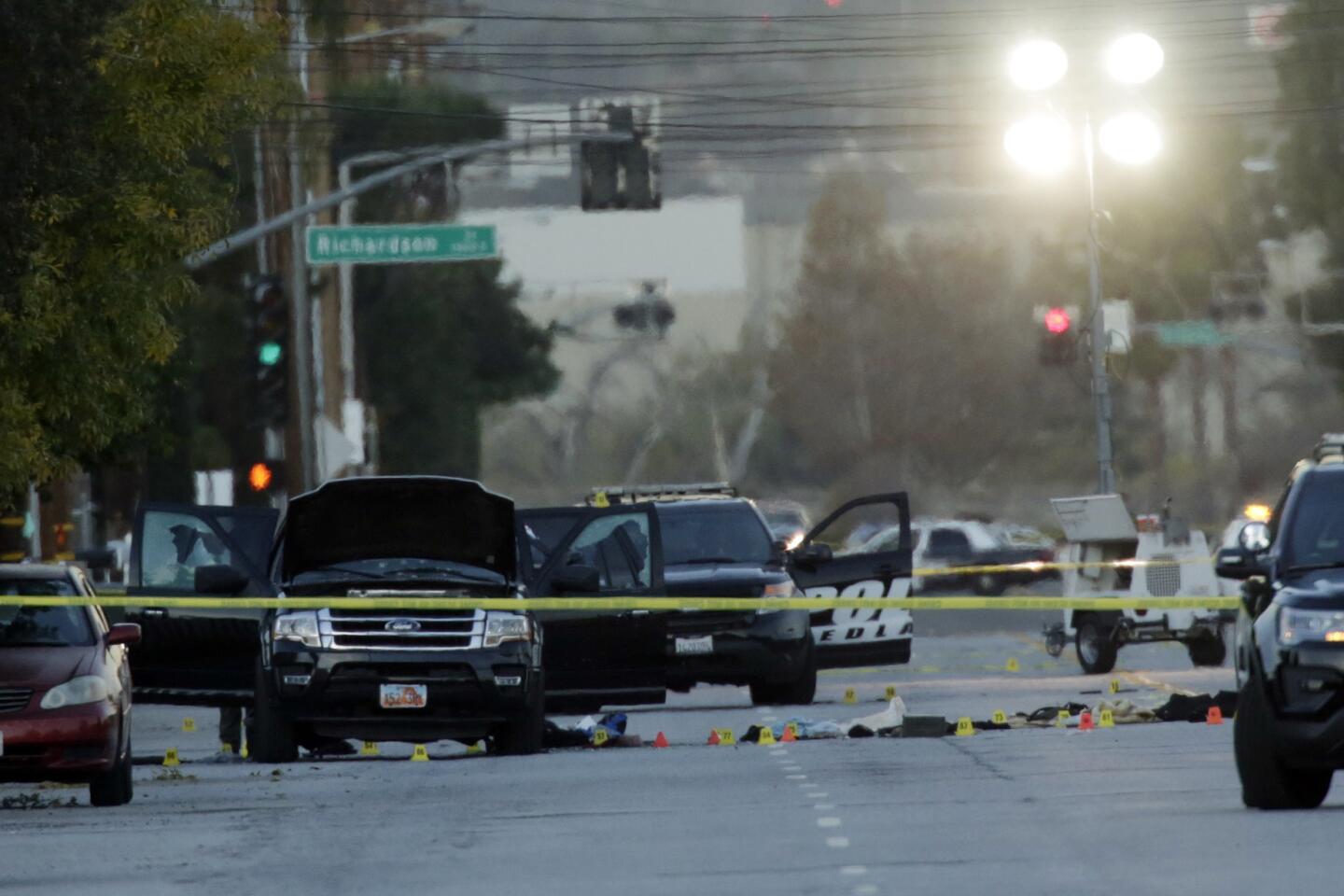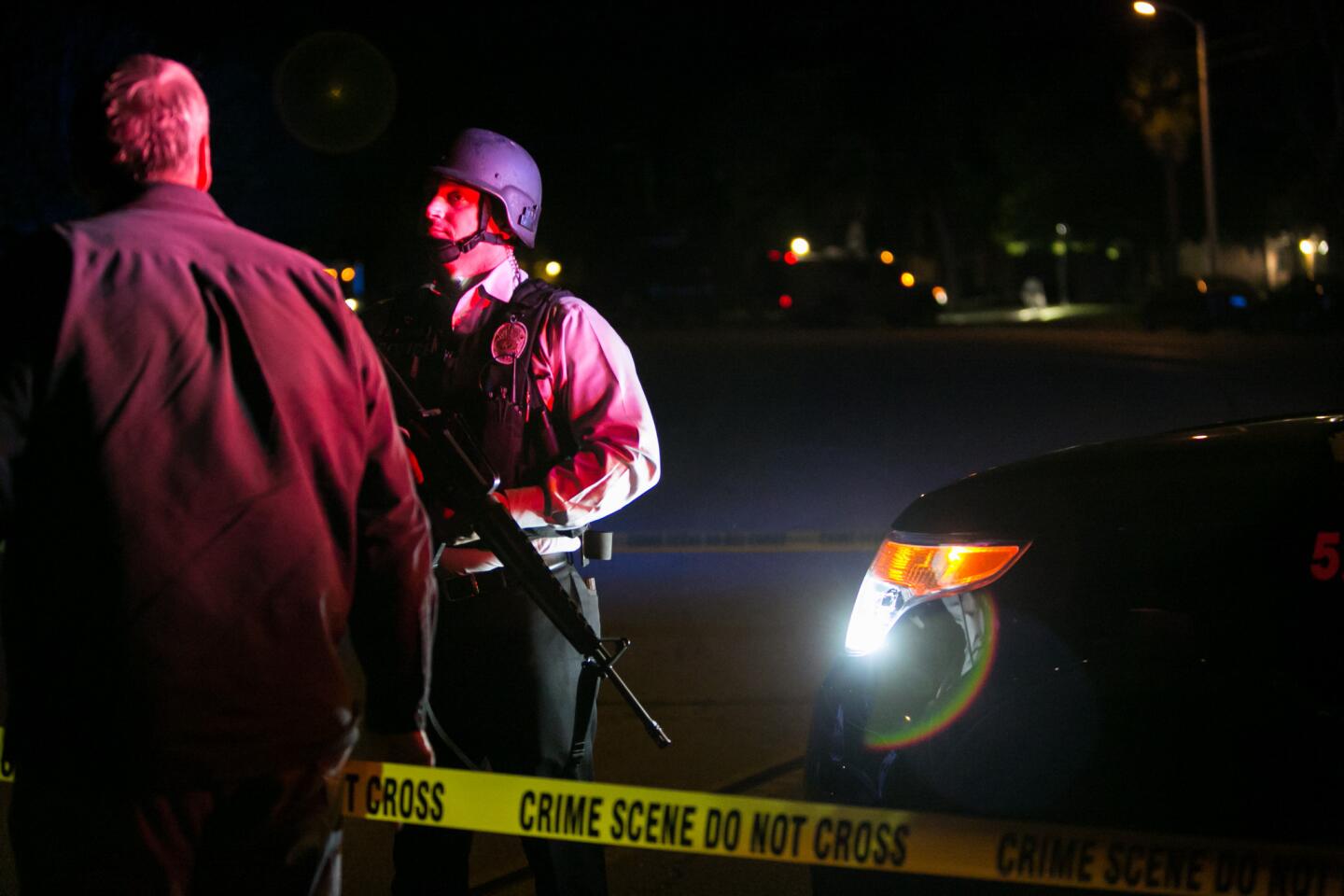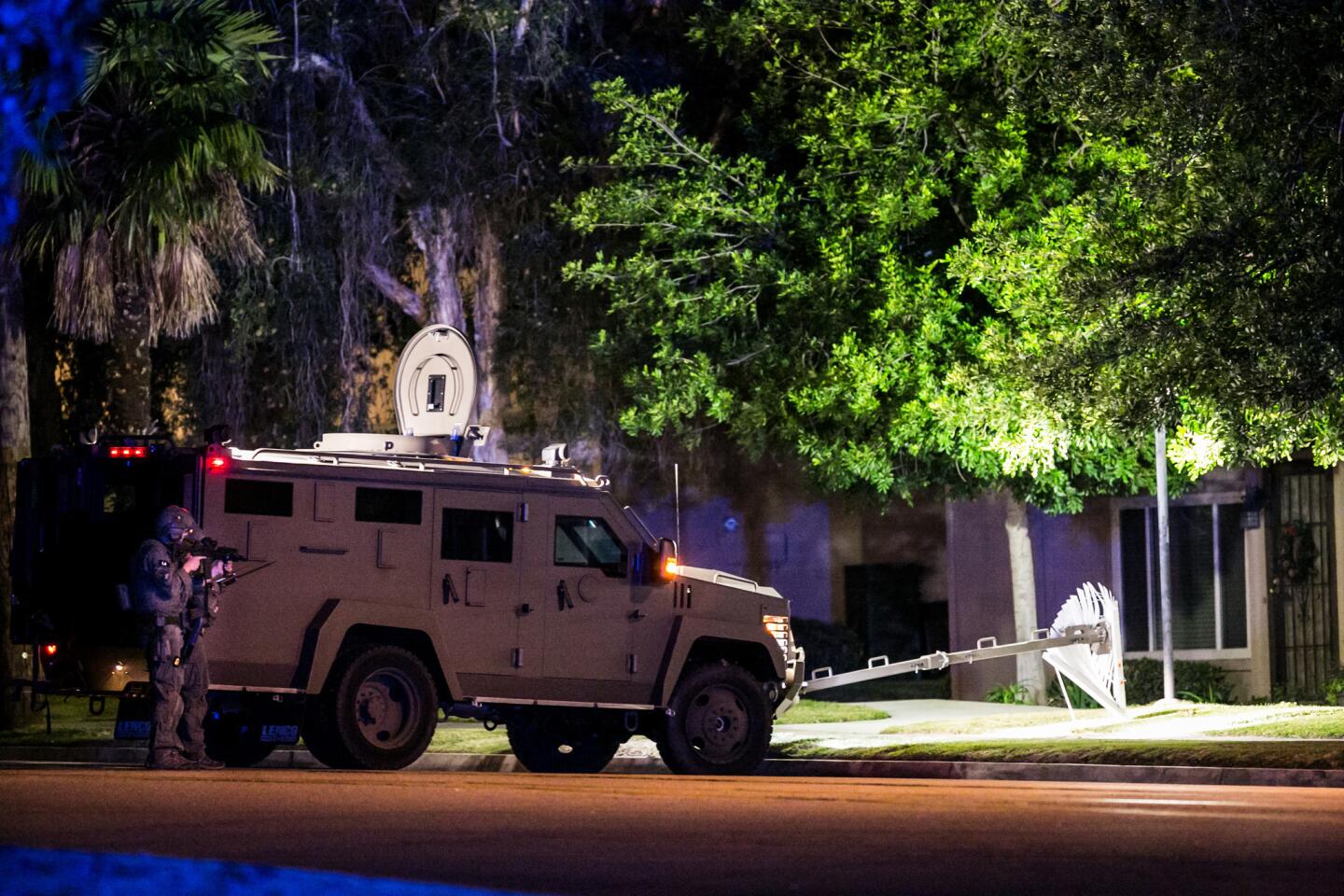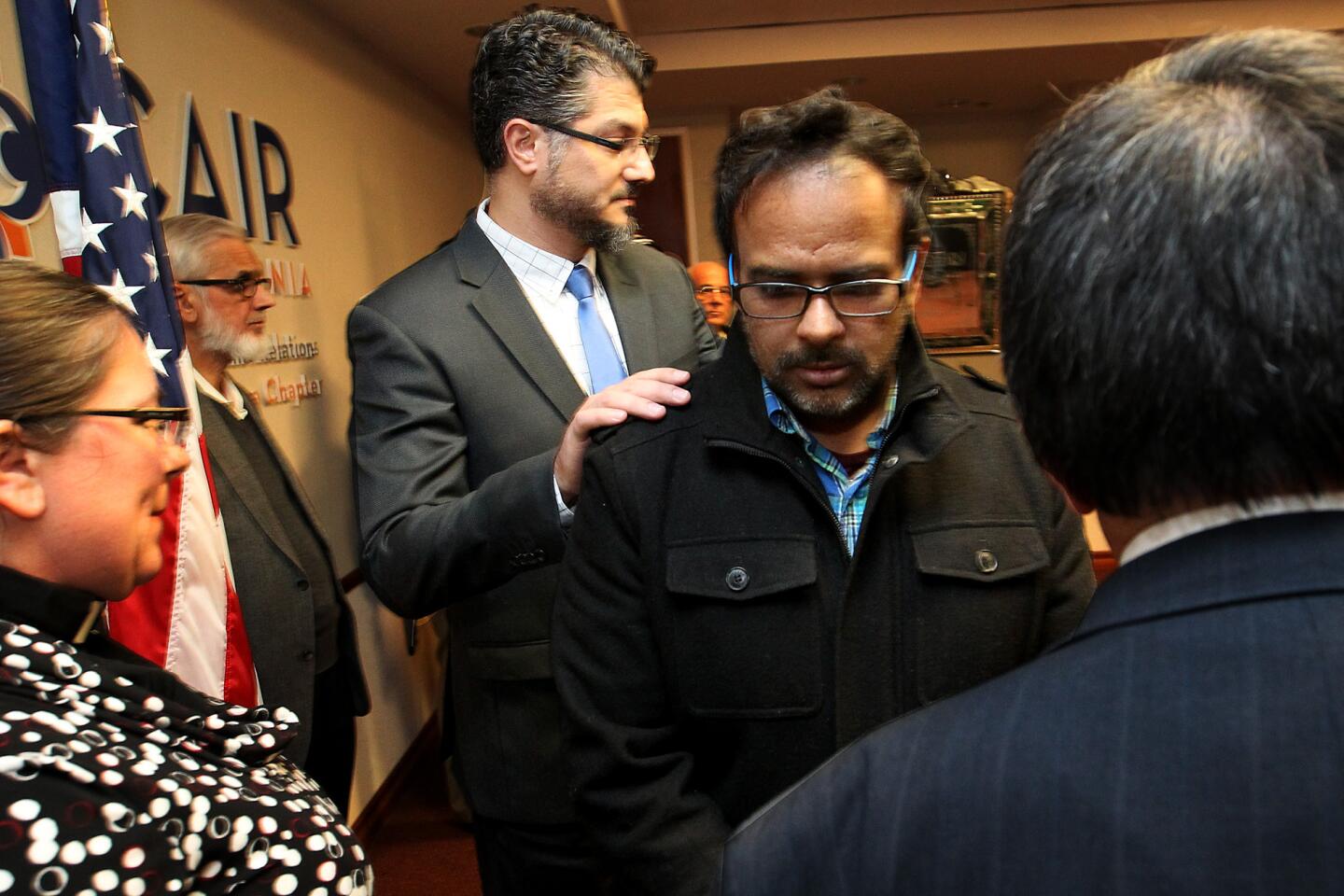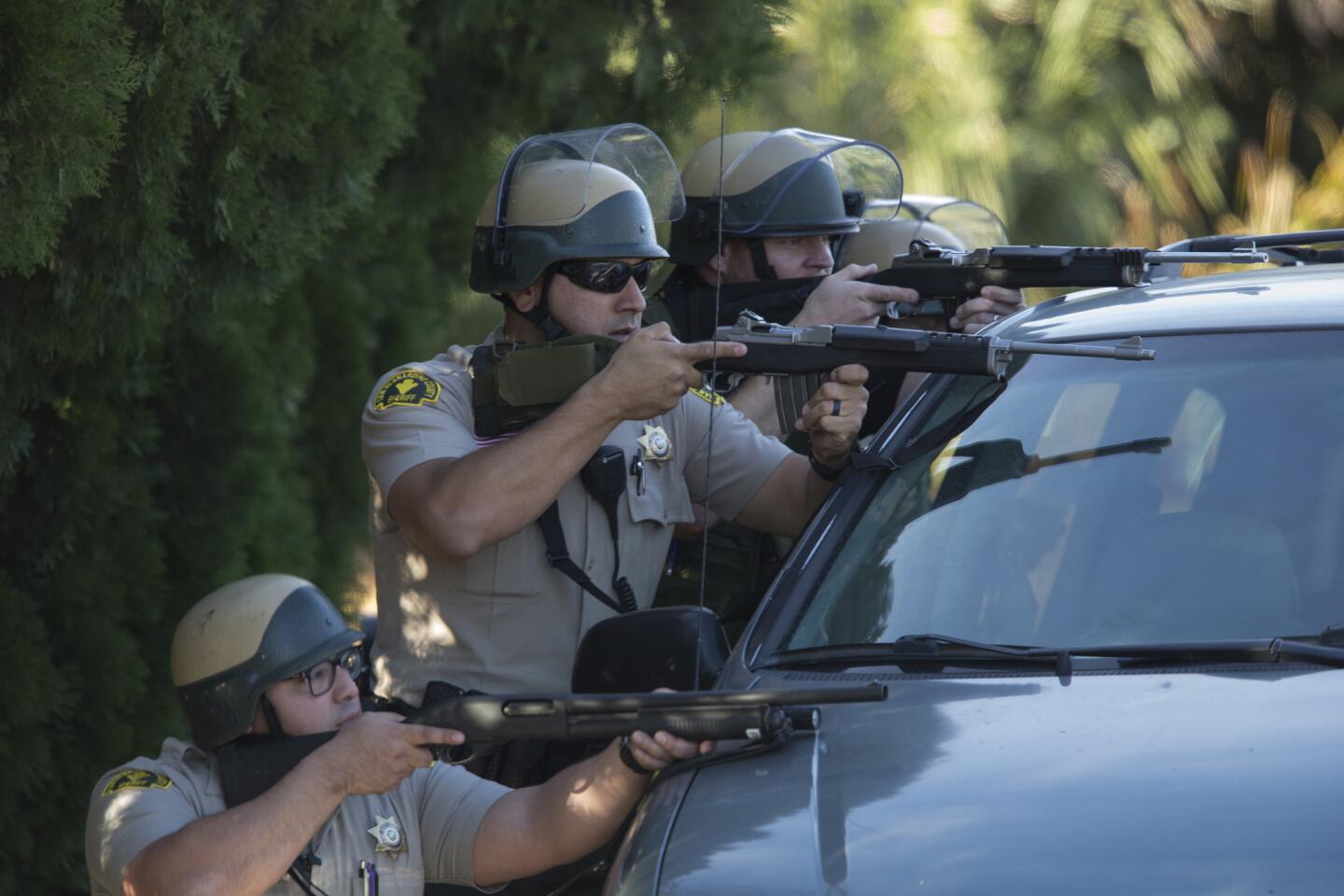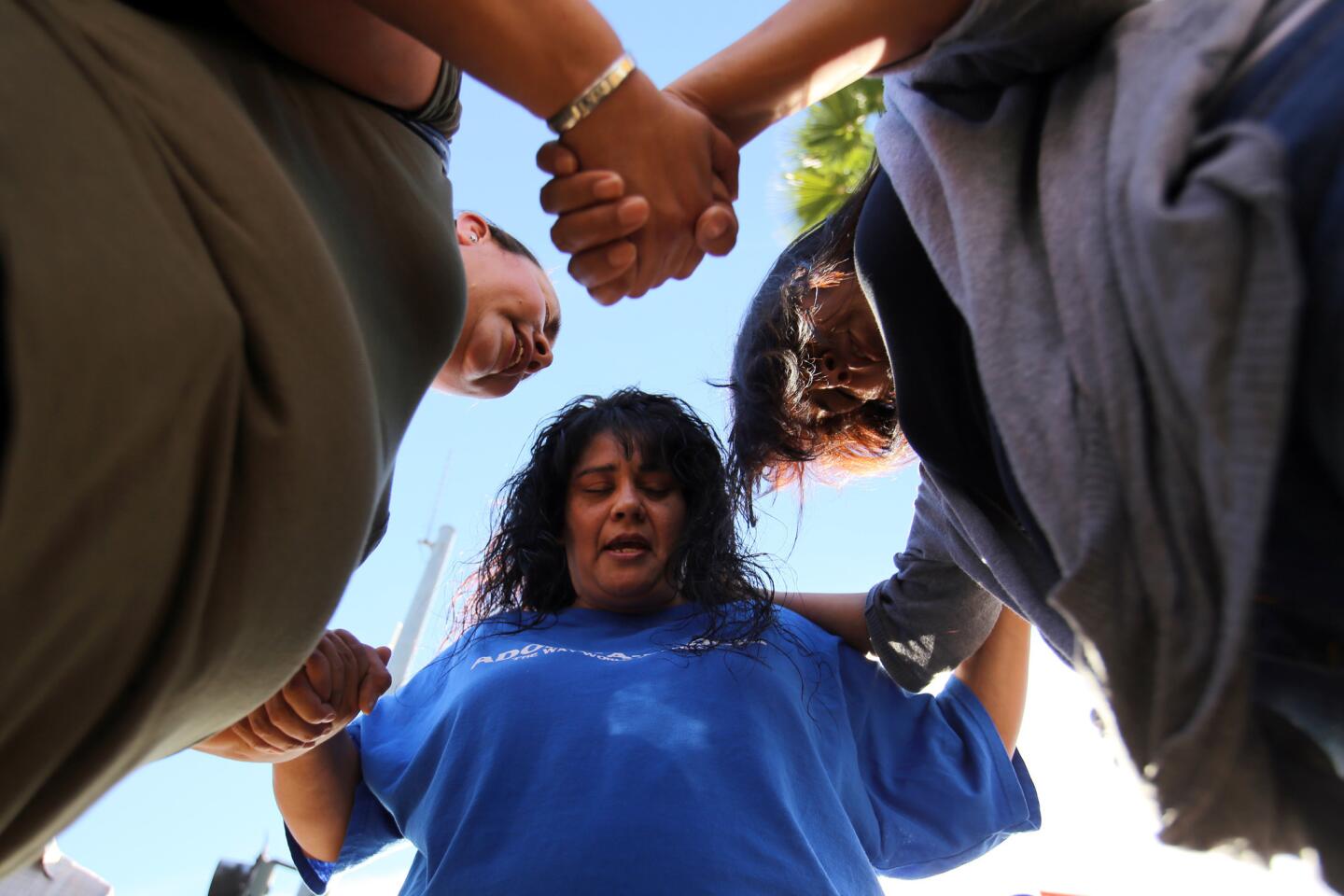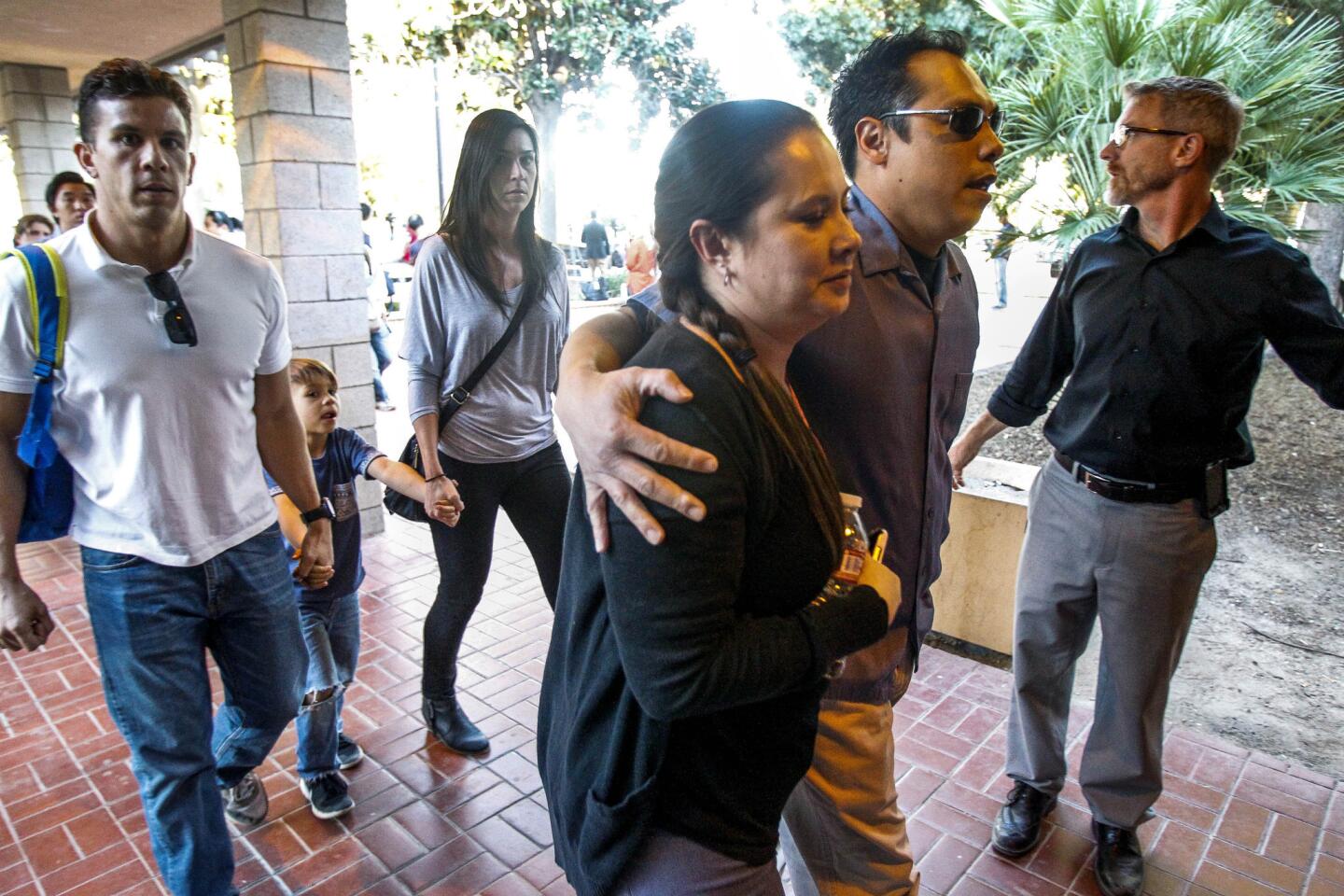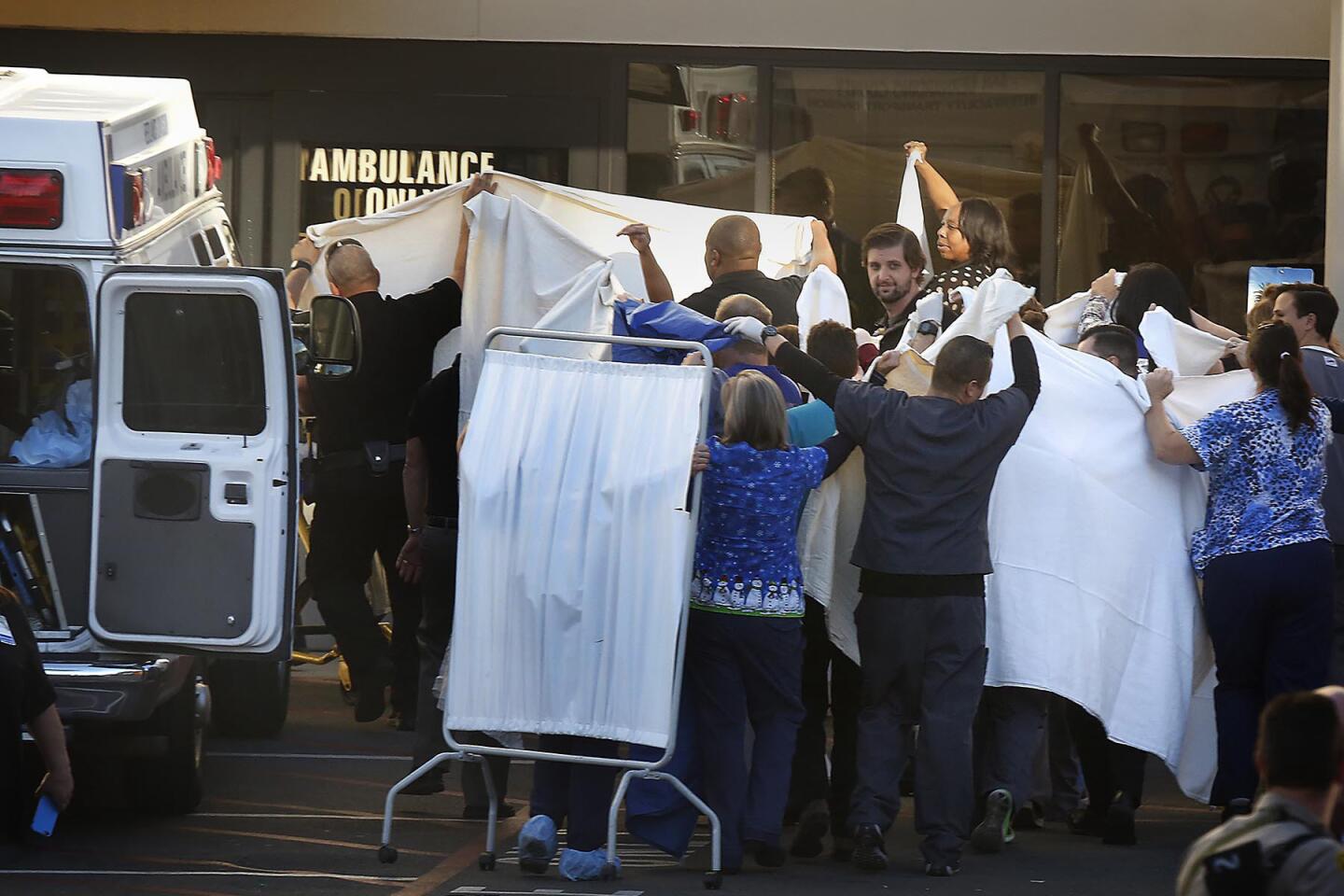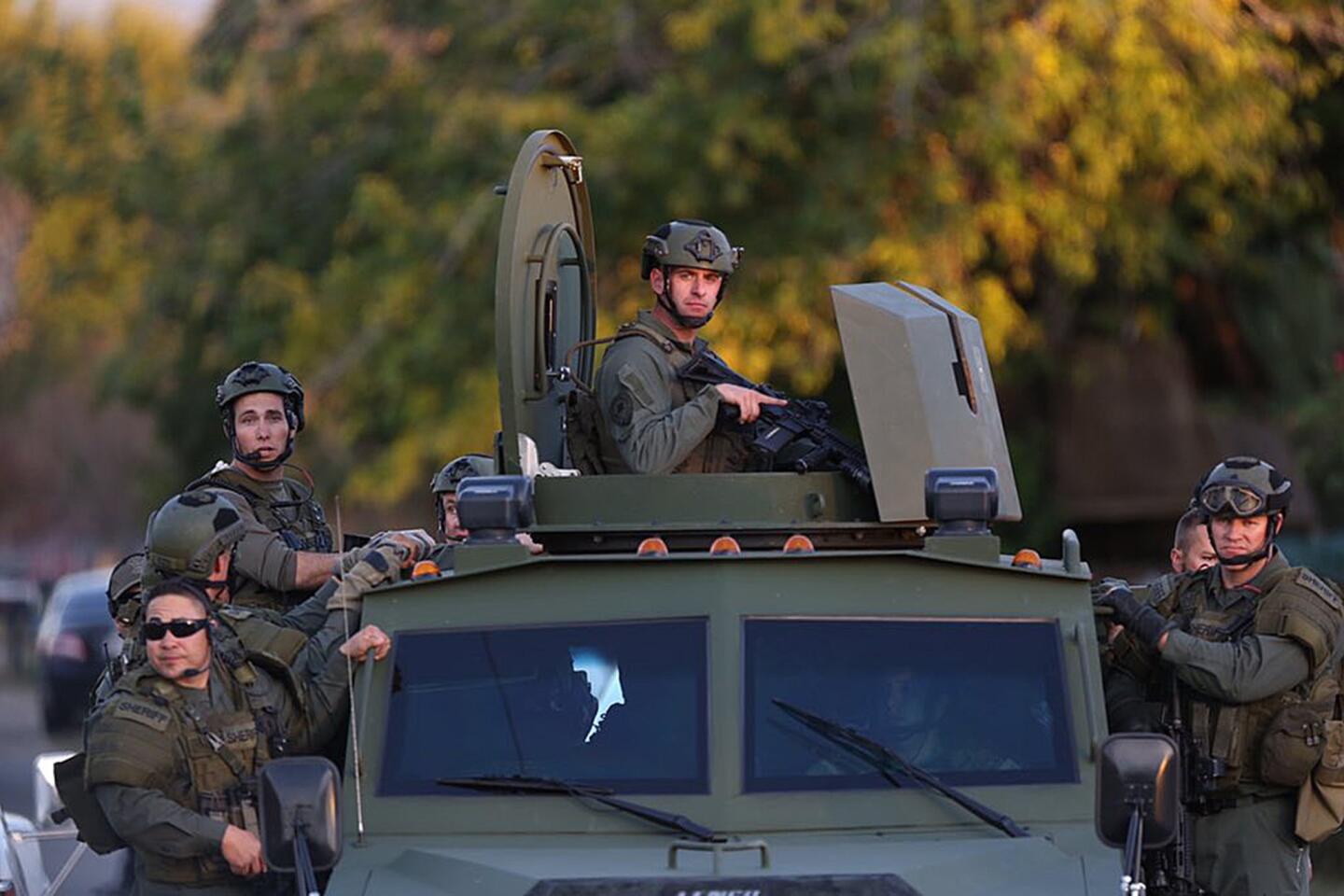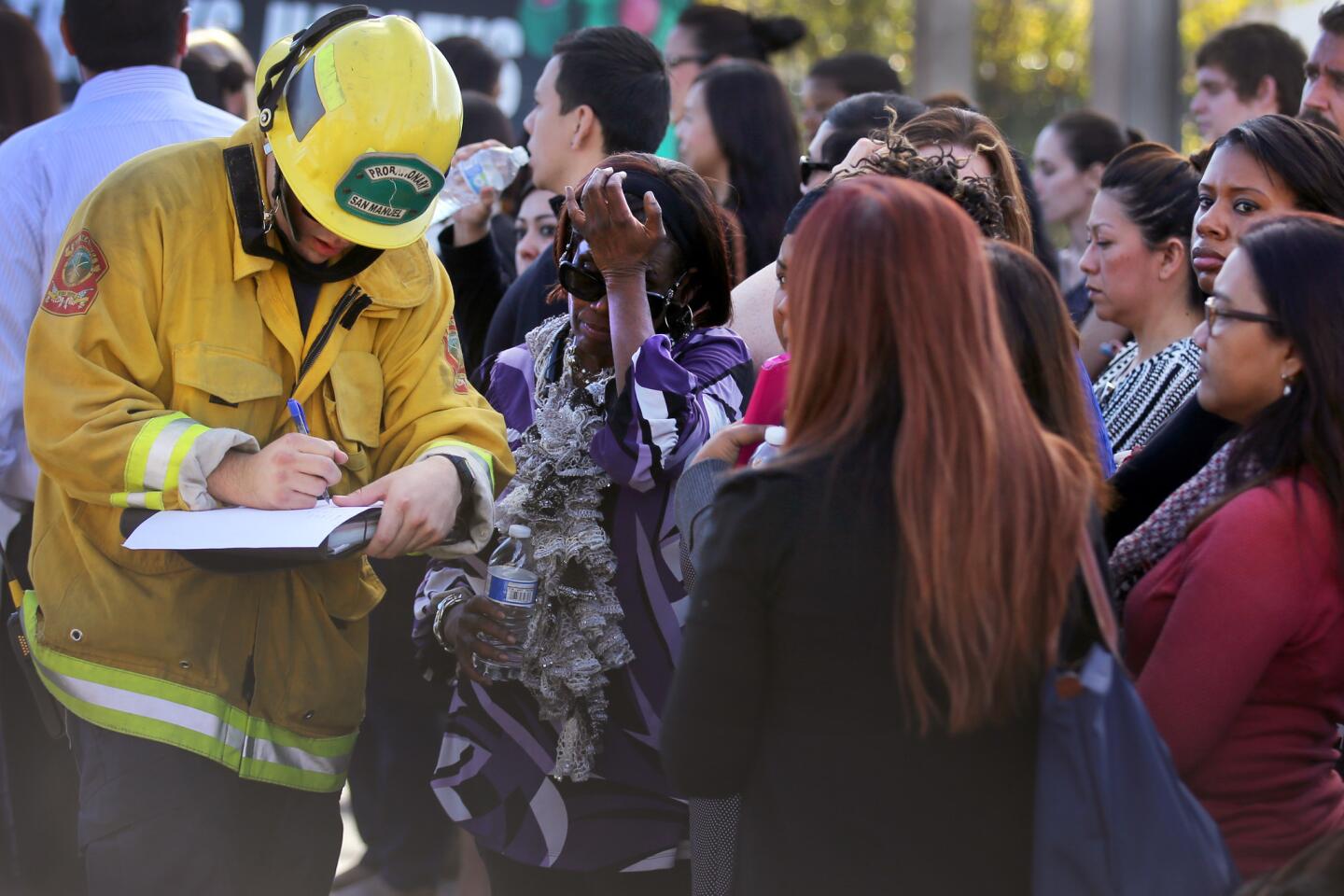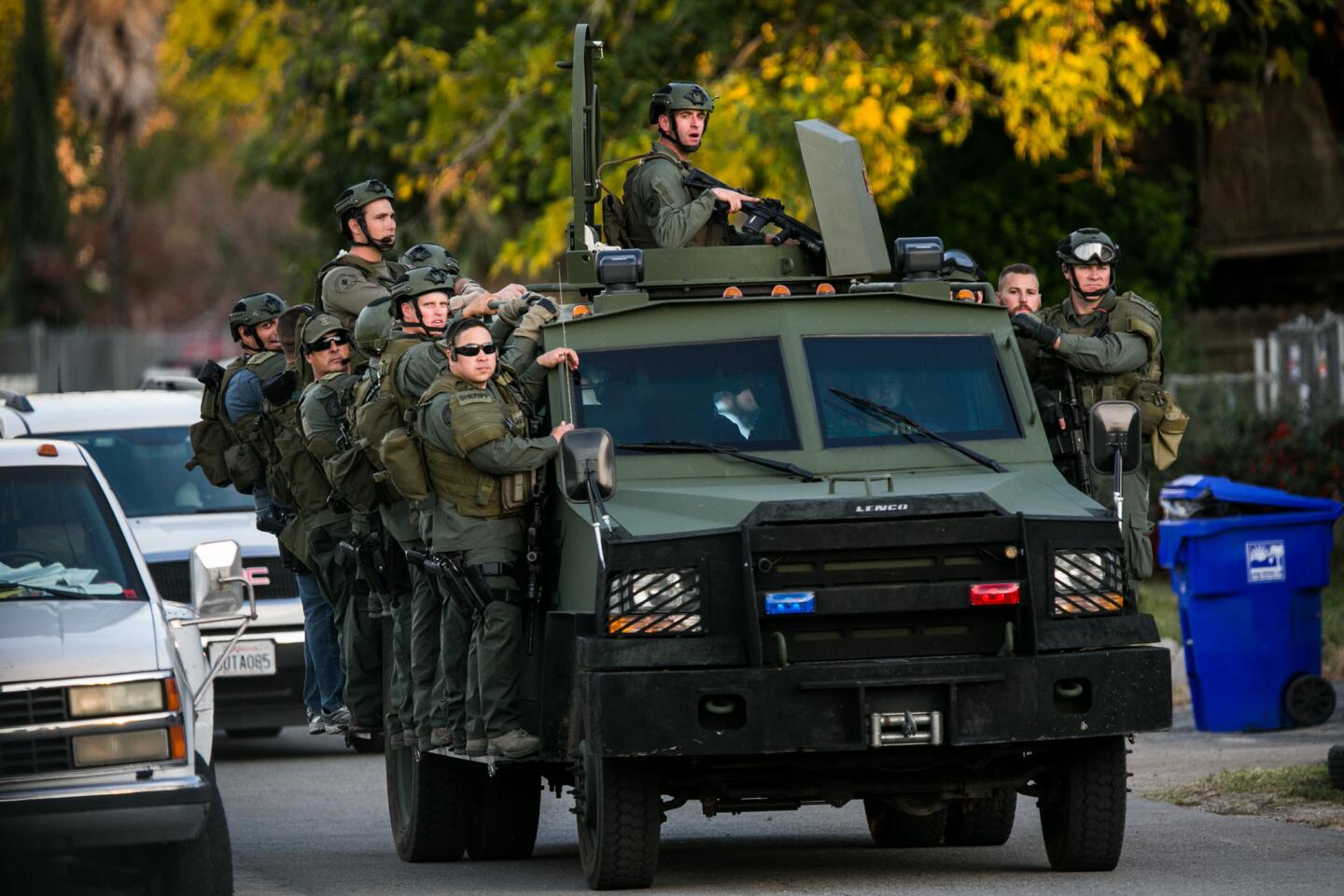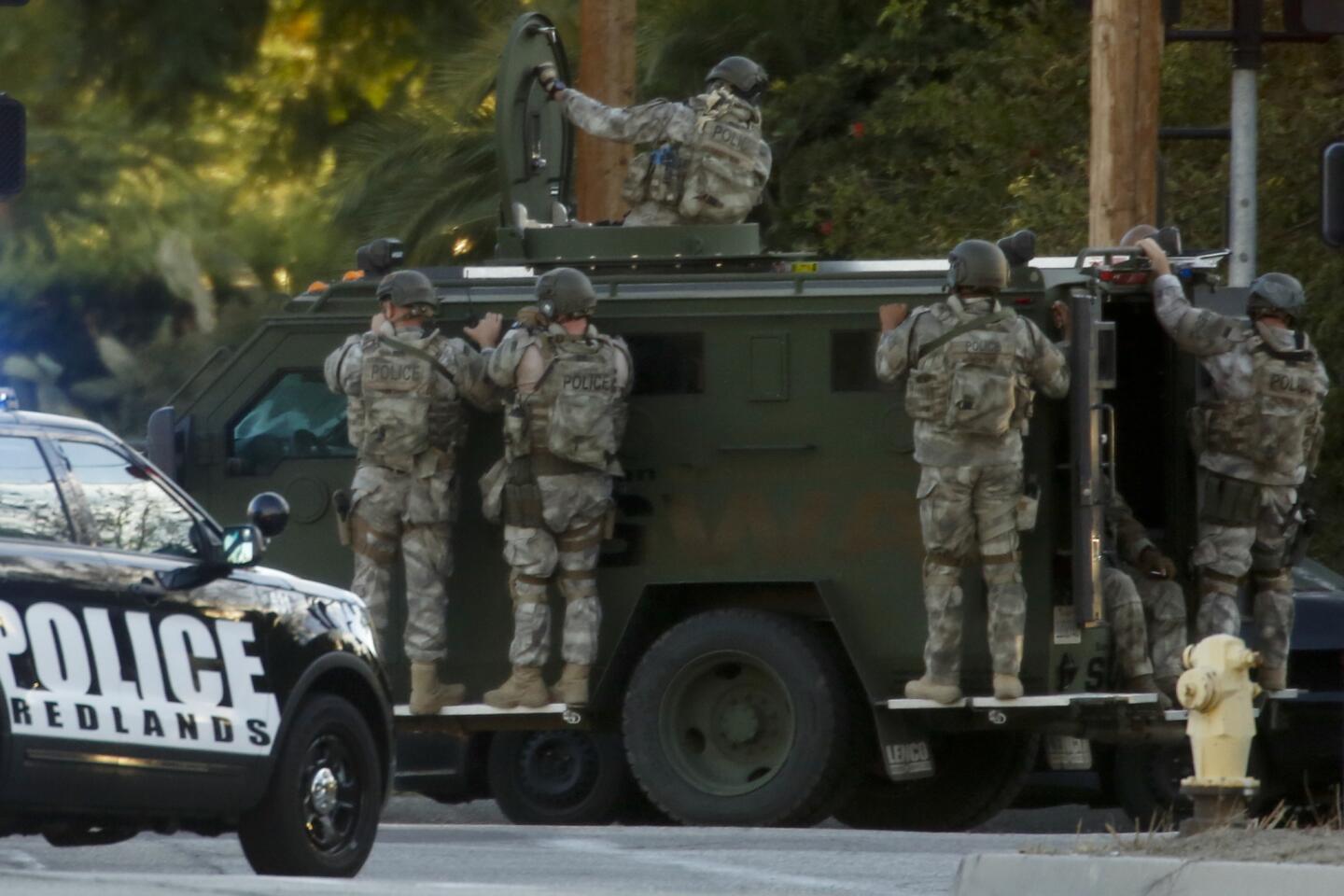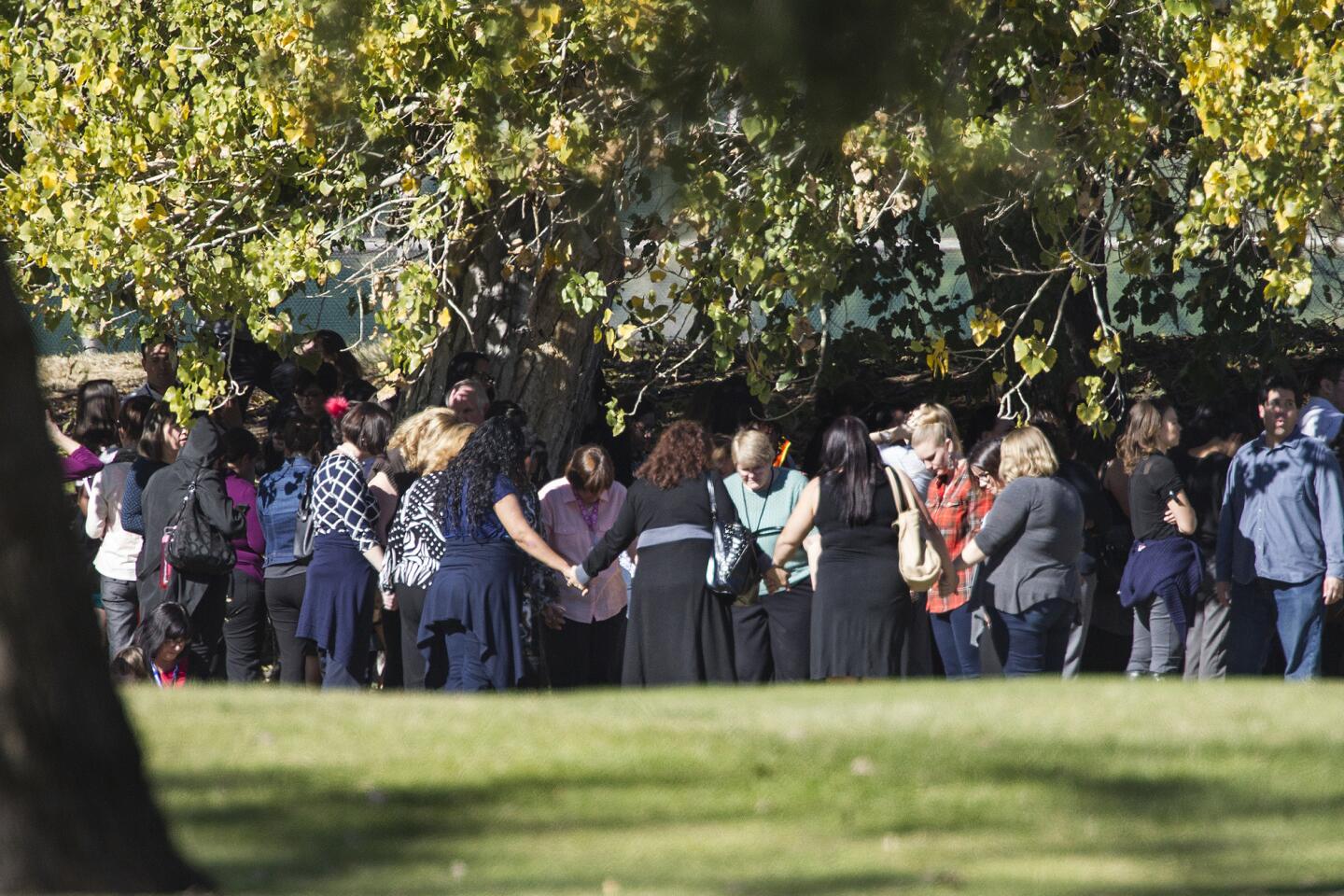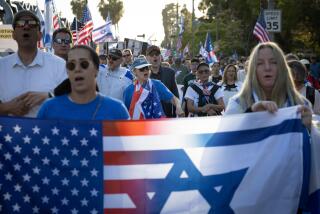Analysis: Why Muslims should not have to apologize for San Bernardino shooting
On Friday, in a mosque not far from the site of the mass shootings in San Bernardino, Hussam Ayloush, executive director of the Los Angeles chapter of the Council on American-Islamic Relations, spoke in sympathy for the victims of the violence.
But he said Muslims should not have to apologize for the shooting.
There is, Ayloush said, a “big difference between condemning and apologizing.”
FULL COVERAGE: San Bernardino terror attack | Live updates
After the attacks in Paris and San Bernardino, many Muslims say they have felt pressure to publicly denounce terrorism. But underlying that pressure is an expectation that they say “Sorry.”
“They’re not bigoted, they’re not racist,” Ayloush said of people who expect Muslims to apologize for terrorist acts. “They’re just misinformed. So we do make a point to tell people that this is not who we are…. We feel that we owe that to others, as fellow Americans, who share the same country.”
On Sunday, during his address from the Oval Office, President Obama said: “We cannot turn against one another by letting this fight be defined as a war between America and Islam.”
But even as he said that “Muslim Americans are our friends and our neighbors,” the president also stressed that Muslim leaders must “unequivocally reject the hateful ideology that groups like ISIL and Al Qaeda promote.”
Still, the responsibility of publicly rejecting the “hateful ideology” of violent extremists is laid not only on religious leaders, but on everyday Muslim men and women. “Some people already think we’re guilty,” Ayloush said.
On Monday, Donald Trump announced that he wants to ban all Muslims from entering the United States. A journalist at the Daily Beast suggested that Muslim communities need to prove to the rest of America that they are trying to “ferret out radicalism,” and said that Obama’s message “says to Muslim Americans that the rights you have as Americans have to be earned.”
If you are Muslim, or “look” Muslim, you are subject to a special kind of suspicion. After the 9/11 terrorist attacks there were reports of Sikhs being attacked – and even murdered – because they were mistaken for being Muslim.
In recent months, innocent Muslims, Hindus, Ethiopian Christians, Sikhs, and Latinos have all been victims of Islamophobic violence. For the safety of themselves and for other communities, Muslims are forced to constantly speak out against ideologies that frighten them, and that they find reprehensible. Countless Muslims – men, women and children – have fled countries, including Syria, to get away from violent radicals like those of Islamic State.
It is important to trace the origin of Syed Farook and his wife, Tashfeen Malik’s turn to a violent extremism that resulted in the deaths of 14 people and the wounding of 21 others. And to try to prevent such a tragedy from being repeated.
But in the years since the Sept. 11, 2001. terrorist attacks, according to a study by New America, more people have been killed in attacks by white supremacists or antigovernment groups than in “jihadist” attacks in the U.S. In a survey of hundreds of police and sheriff’s departments nationwide, 74% listed “antigovernment violence” as one of the biggest threats of violent extremism in their jurisdiction. Only 39% listed “Al Qaeda-inspired” attacks.
And while Obama mentioned the danger of the terrorists using the Internet to “poison the minds” of terrorists, a report by the Southern Poverty Law Center linked the hate crime murders of nearly 100 people over 5 years to a single website: Stormfront.org, a web forum that proclaims itself as “the voice of the new, embattled white minority.”
But there is no broad expectation if you’re white or Christian to say sorry for the terrible acts of a few who happen to share your race, ethnicity or faith.
Perhaps in an effort to point out what many perceive to be a double standard, some have deliberately referred to the suspect in the Colorado Springs Planned Parenthood shooting as a “Christian terrorist.”
But Ayloush says he does not like this kind of language.
“He was driven by … his twisted understanding of Christianity,” Ayloush said in his speech at the mosque. “Was he called a Christian terrorist? No. Should he be called a Christian terrorist? Absolutely not. Because we should never link a religion and its teachings with such a criminal act.”
Americans should condemn all acts of violence, he said, but no American should have to apologize for their faith.
“I’m afraid to let my little sister go to school by herself,” said Dalia Kuko, who is active at a nearby mosque. One young man said his parents had begged him to shave off his beard in order to downplay the fact that he was Muslim.
That shouldn’t be, Ayloush said.
“This is not the time to become cowardly, to the point that we take off the hijab,” he said, referring to the head coverings that some Muslim women wear. “Or, to shave your beards, or to stop coming [to prayer].”
Be brave, Ayloush urged fellow Muslims.
“We will not allow for murderers and terrorists on one hand,” he said, “or bigoted people on the other hand, to change the way of our life.”
Follow me @dexdigi for more on the intersection of culture and the Internet
ALSO
Trump’s latest howler on Muslims isn’t funny; it’s poisonous
Muslims’ anger about Trump’s proposal is tinged with fear
Though shootings raise fears of backlash, Lebanese Muslims feel at home in Bell
More to Read
Sign up for Essential California
The most important California stories and recommendations in your inbox every morning.
You may occasionally receive promotional content from the Los Angeles Times.
